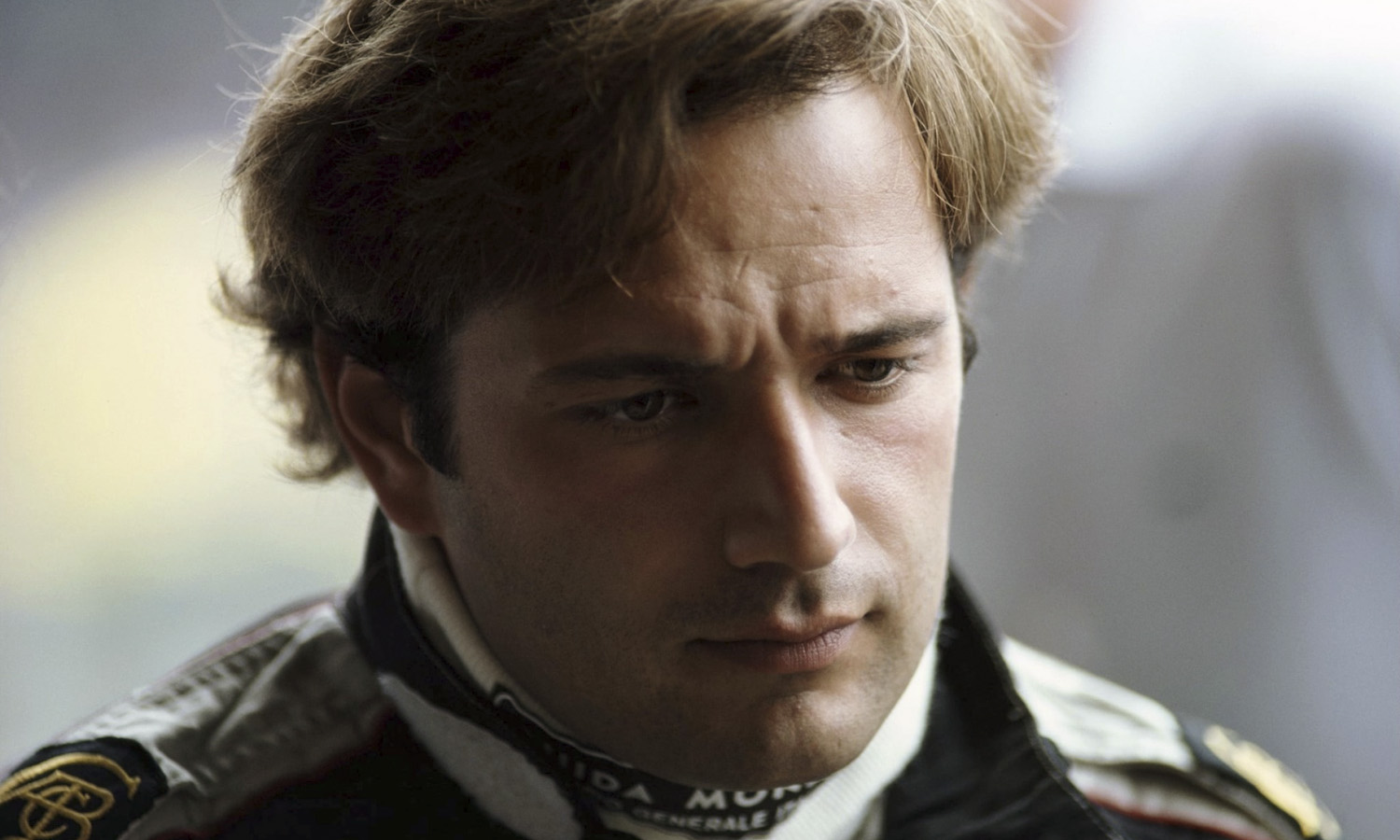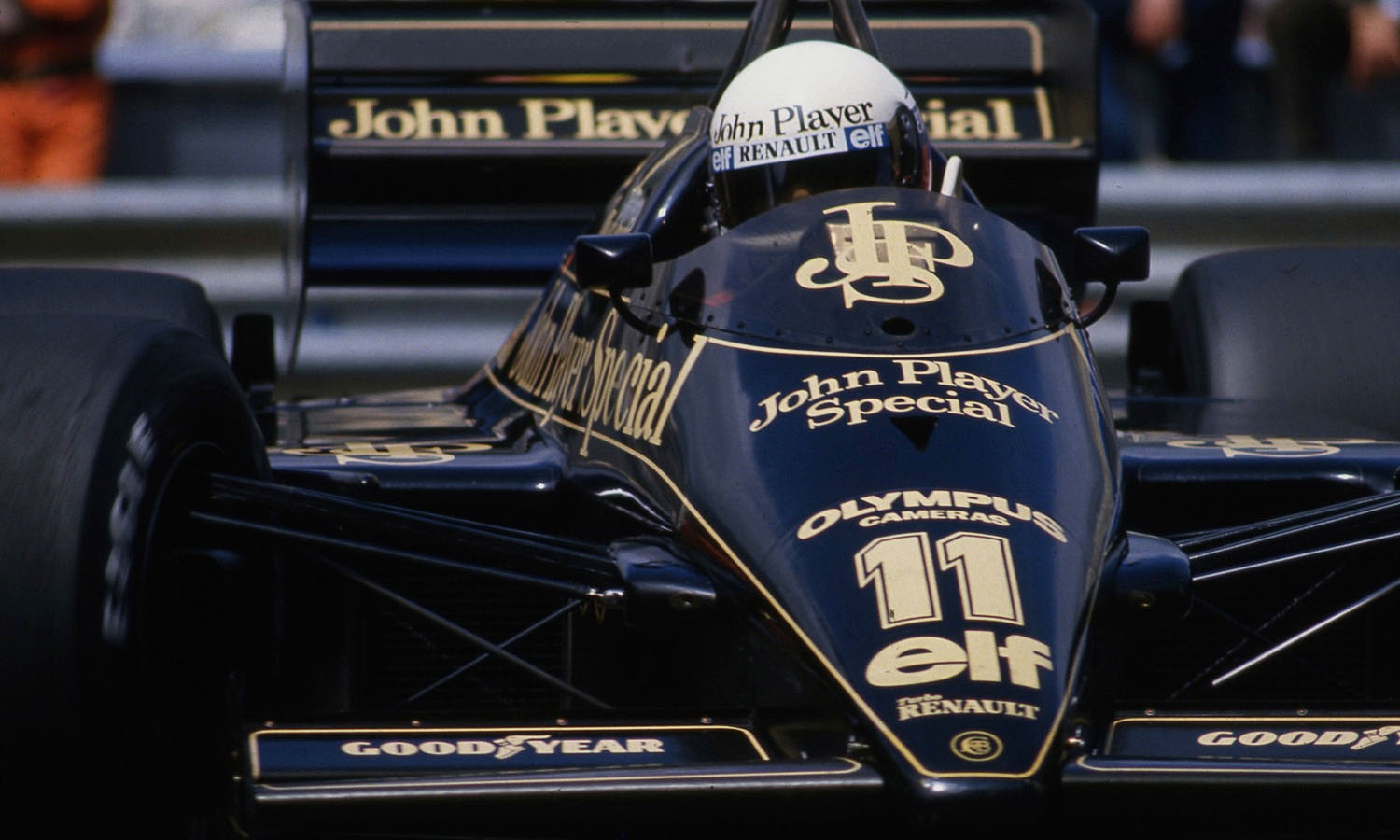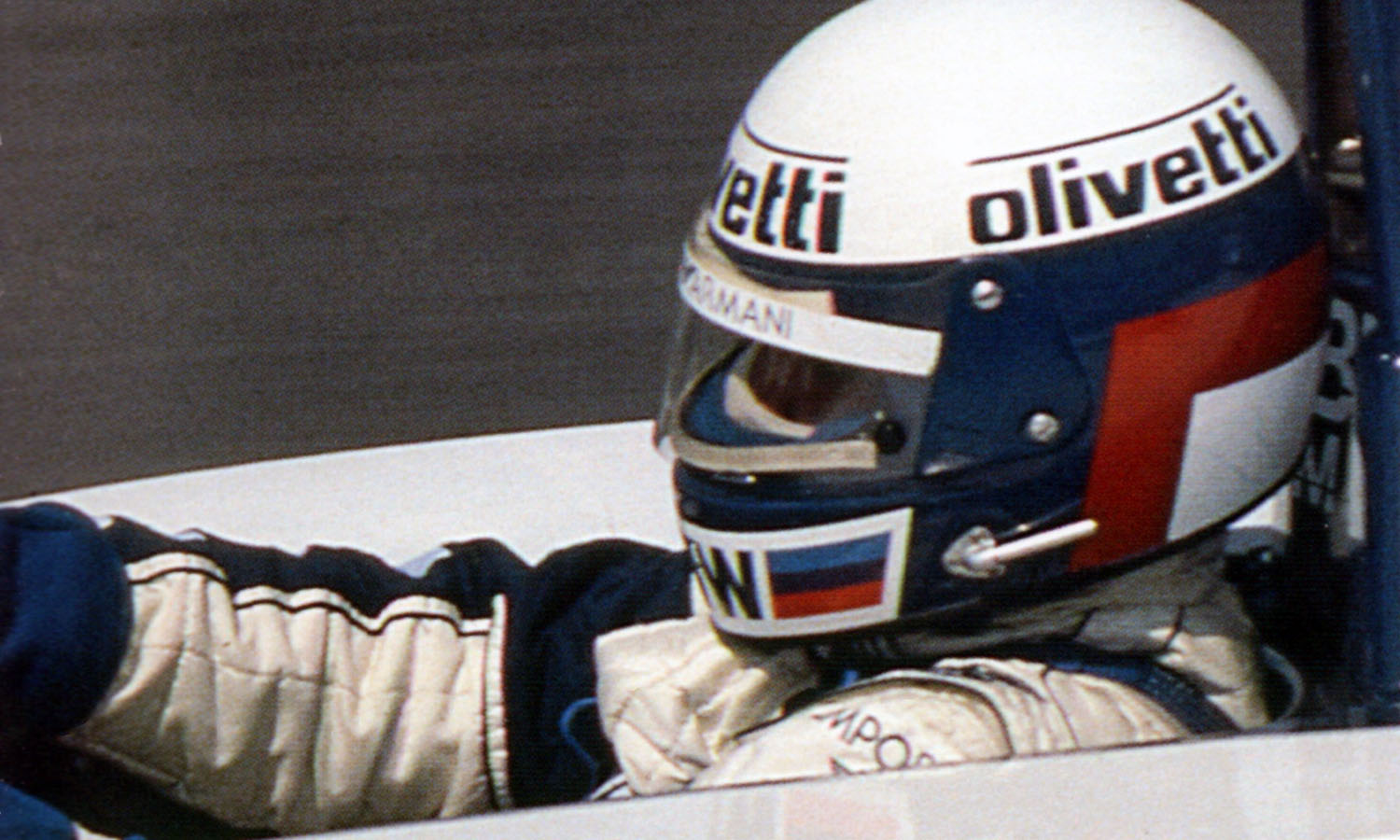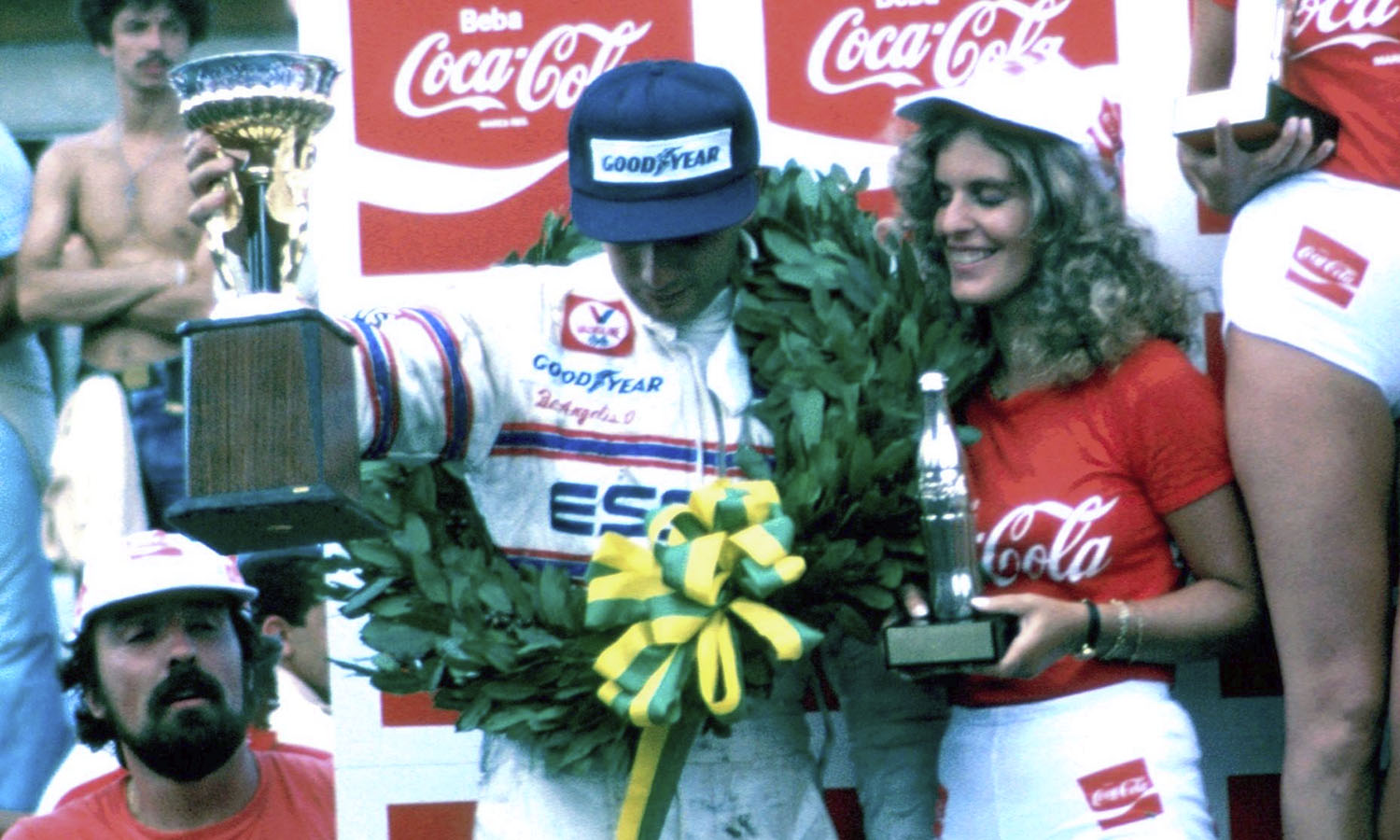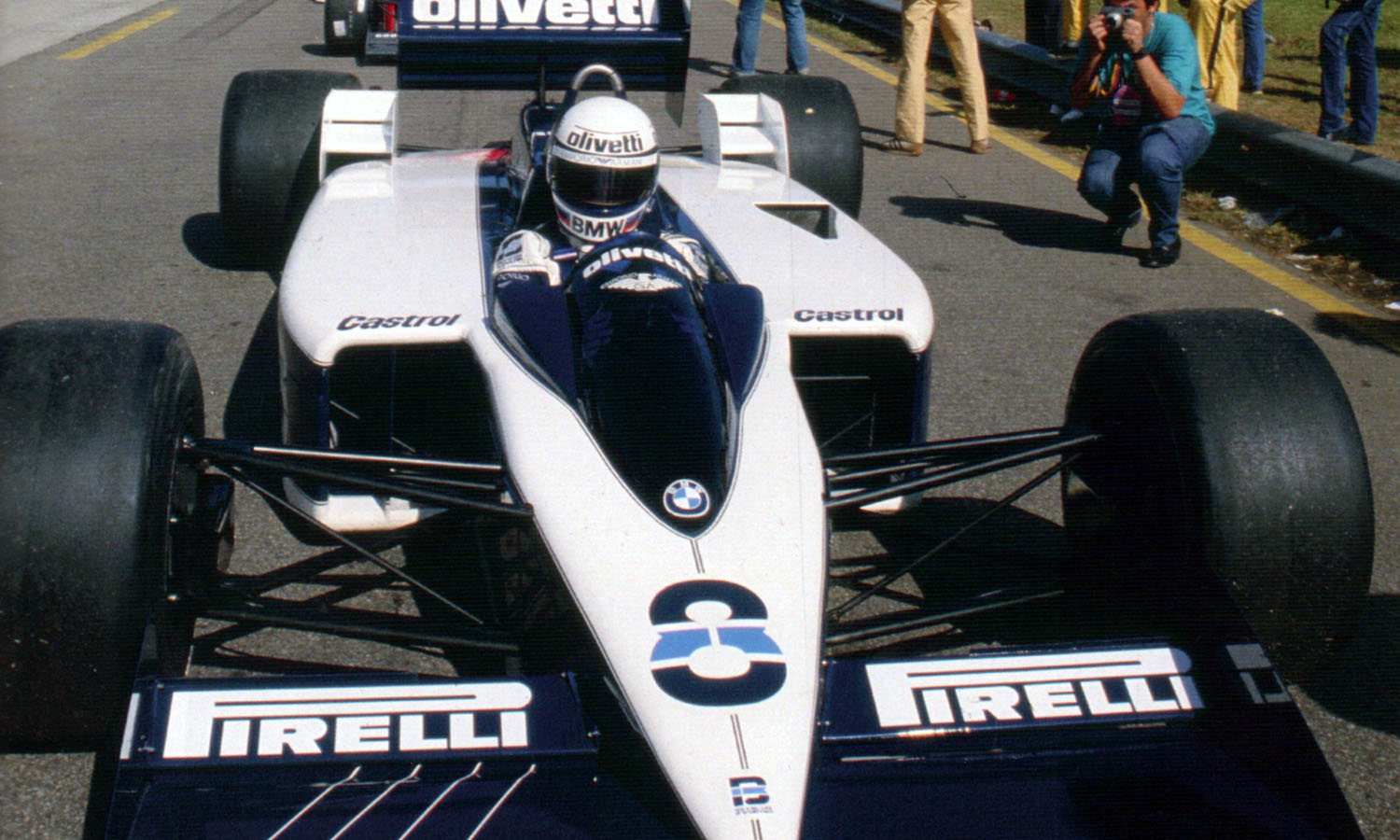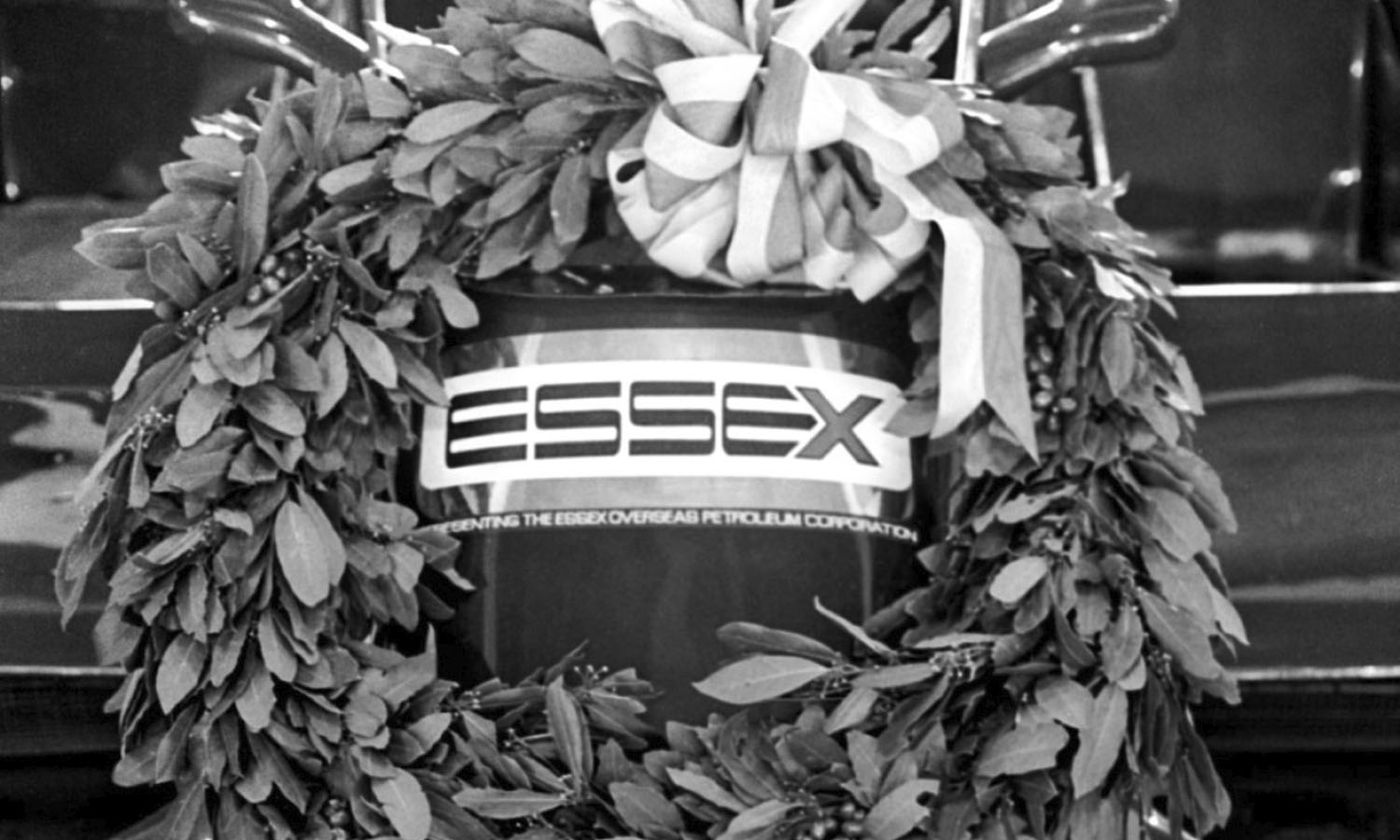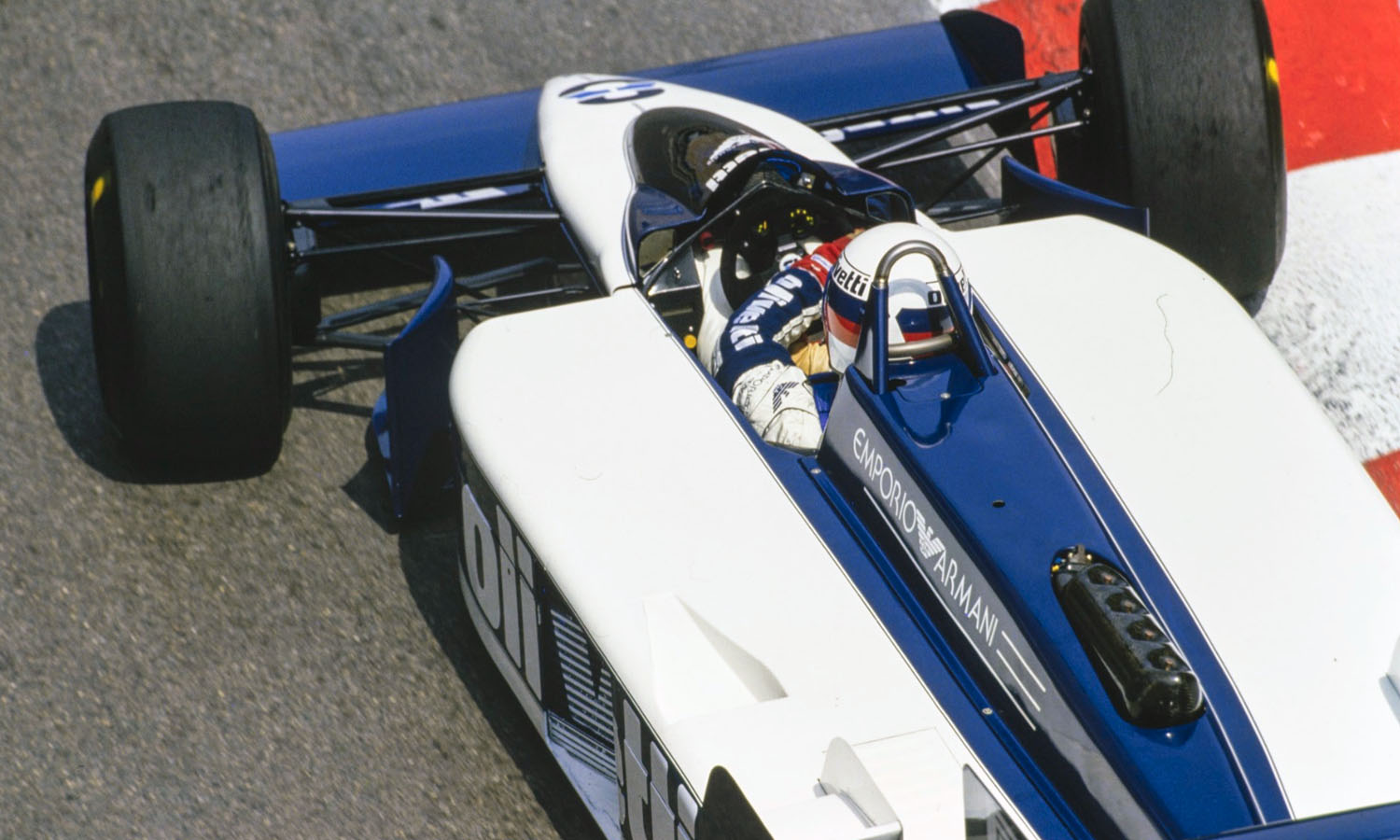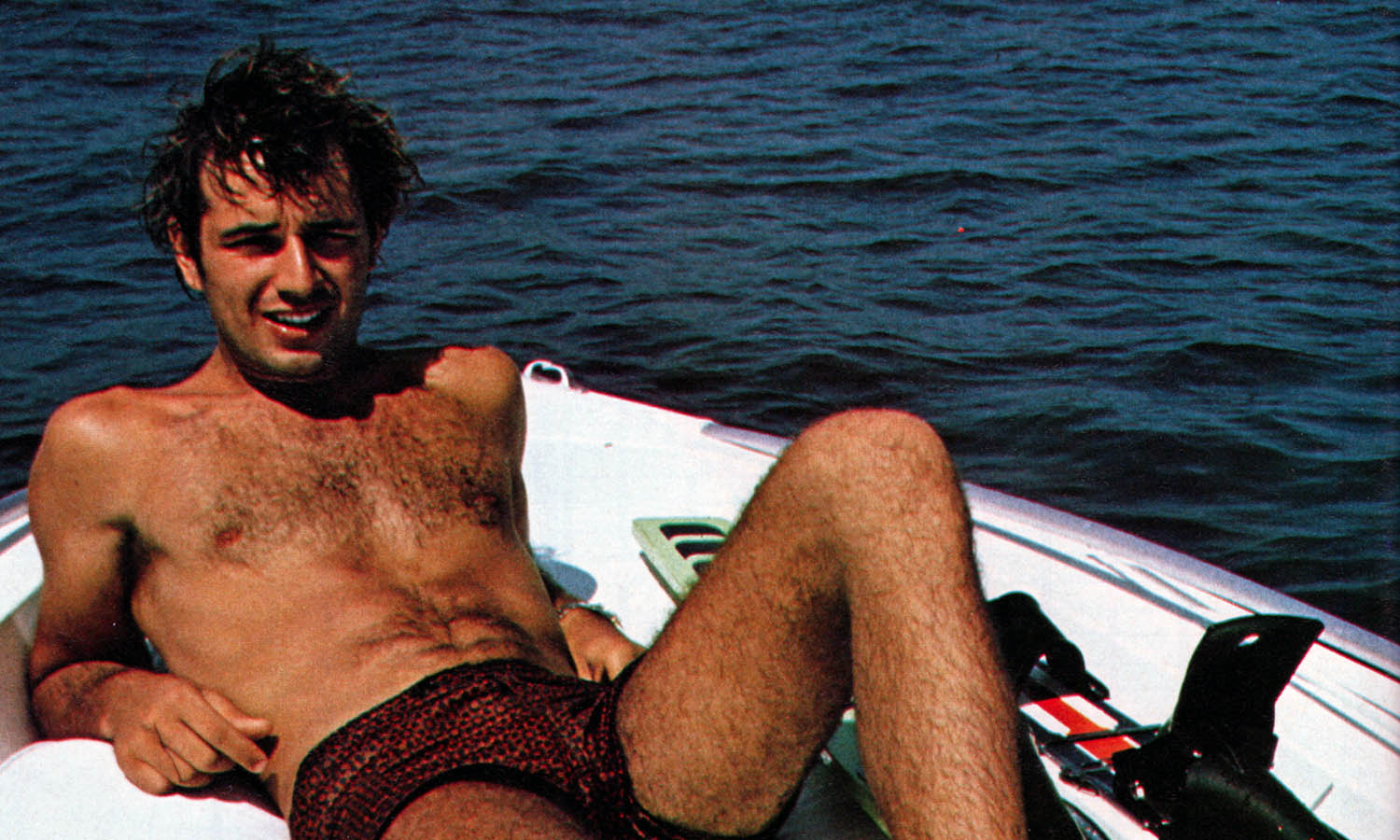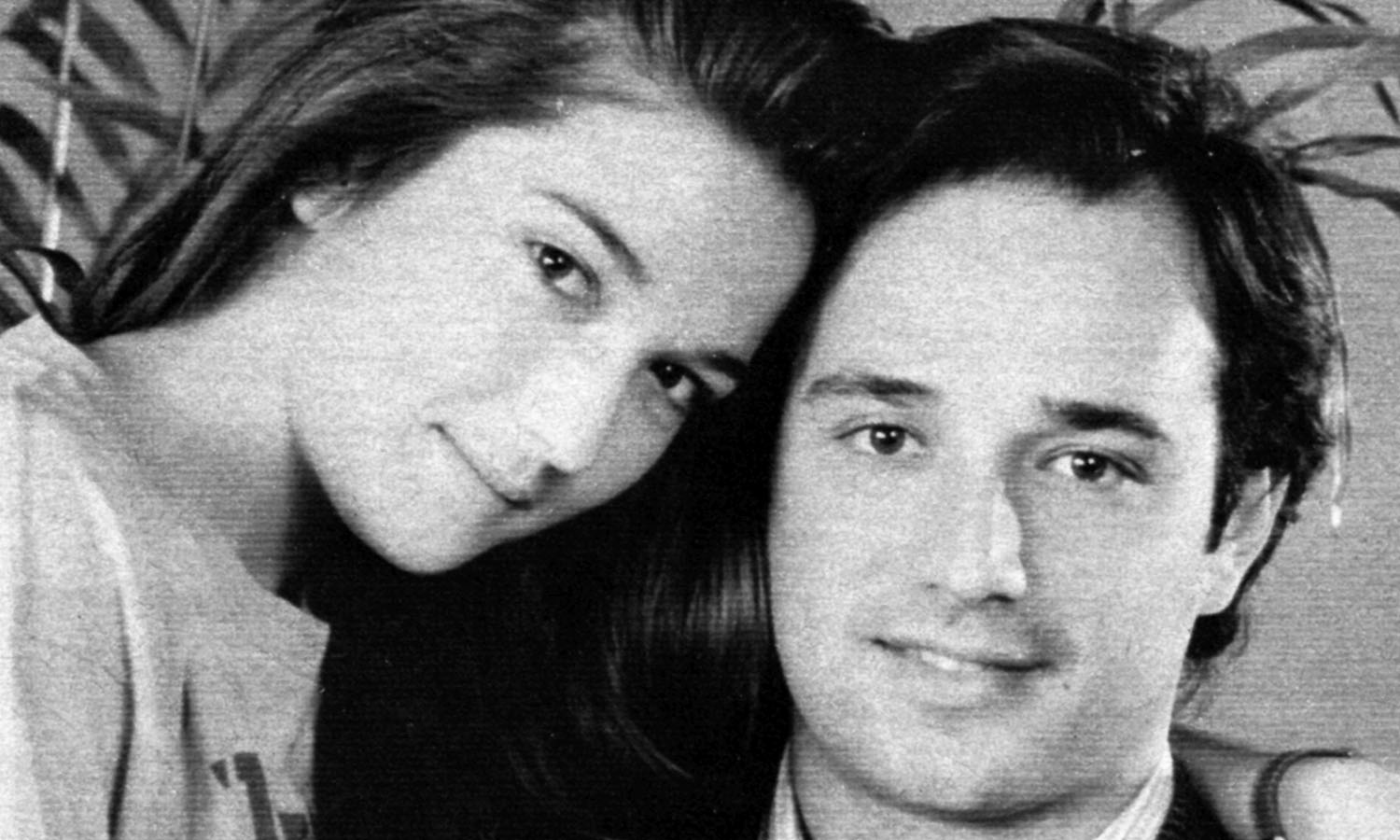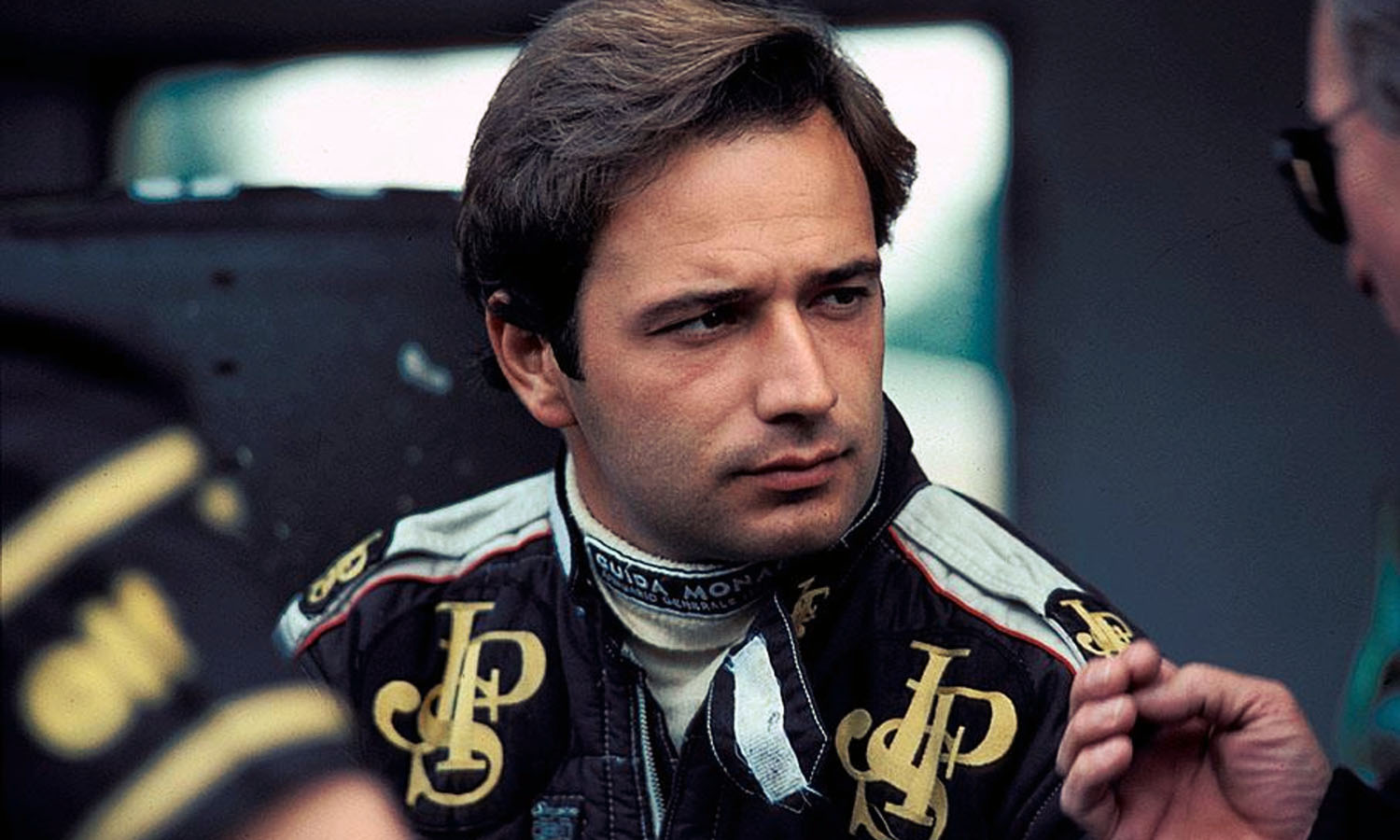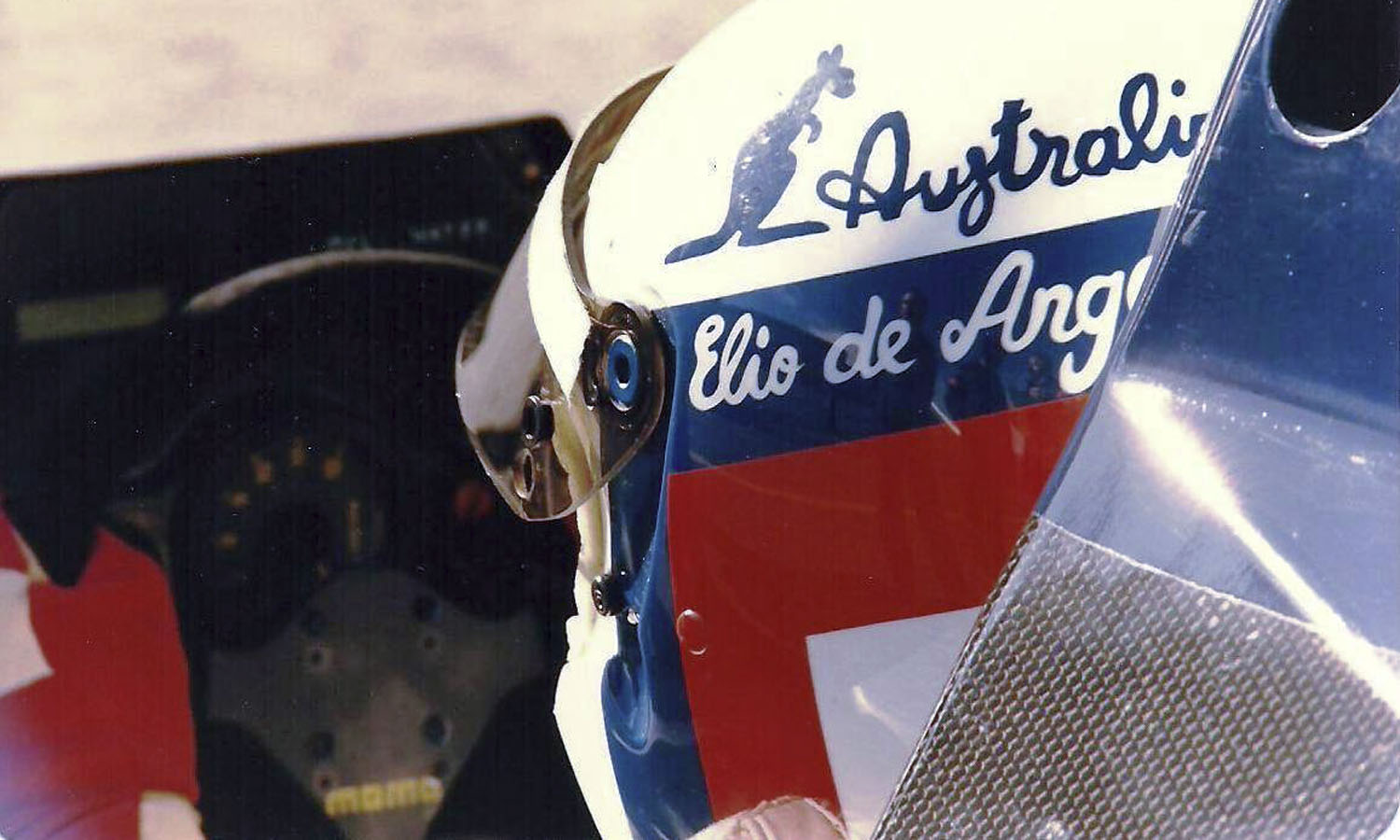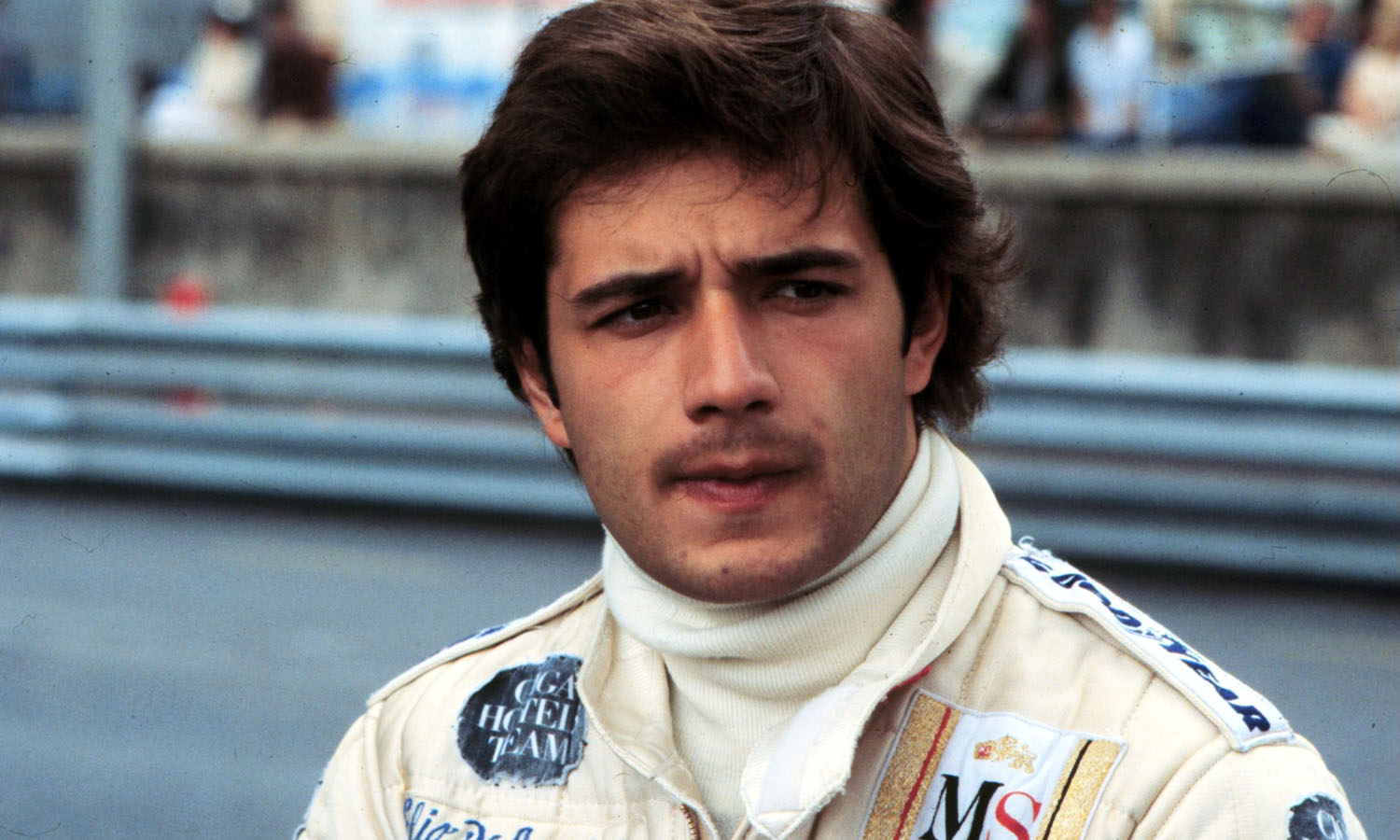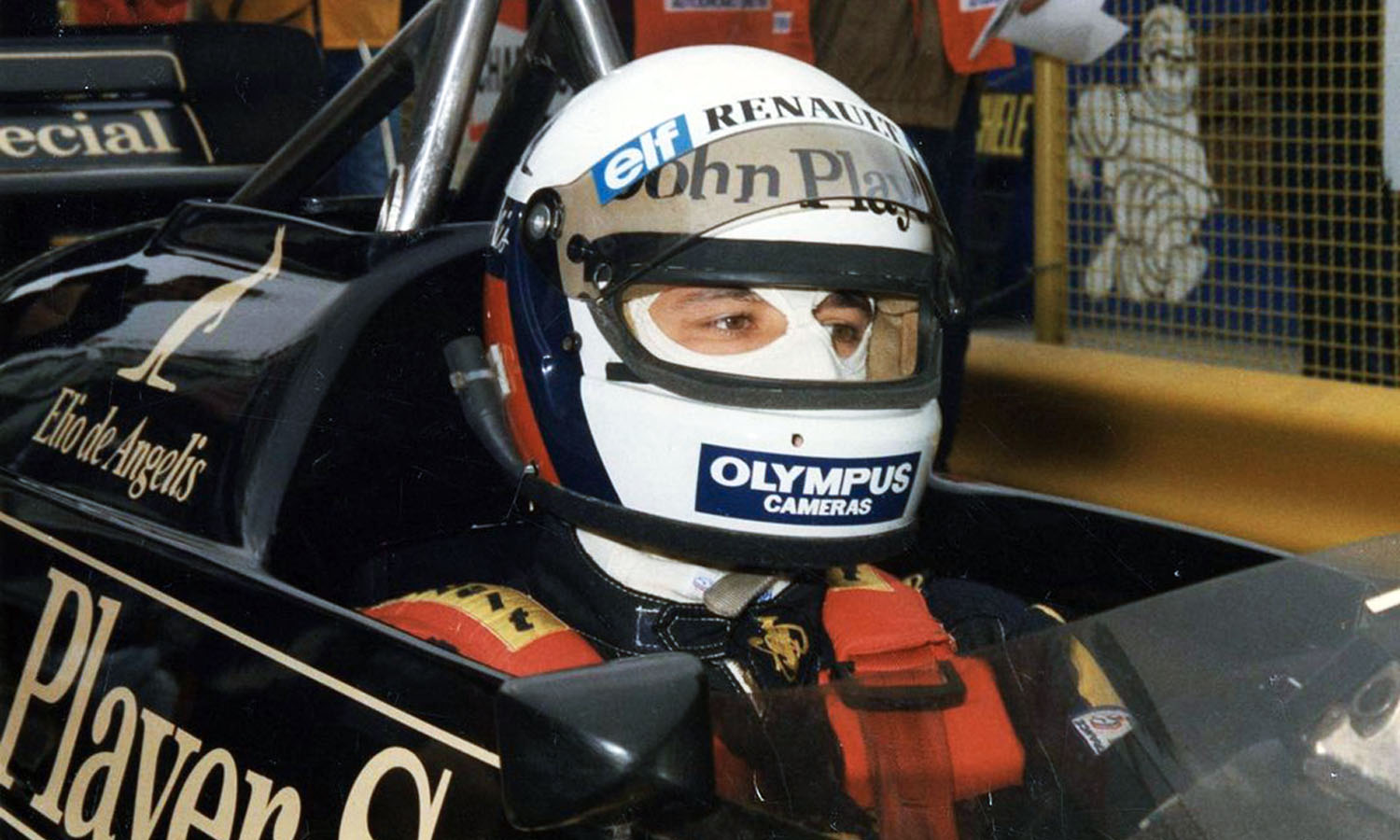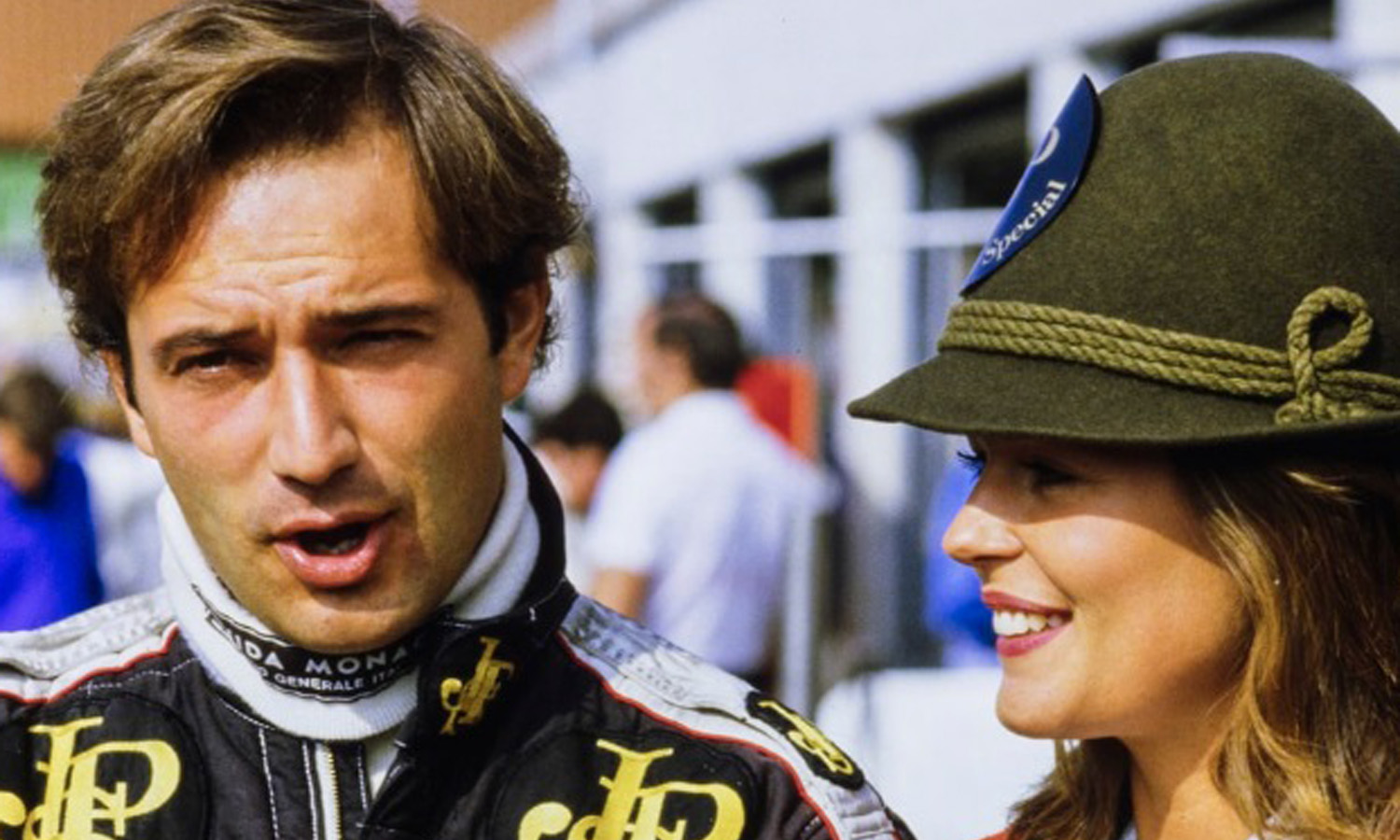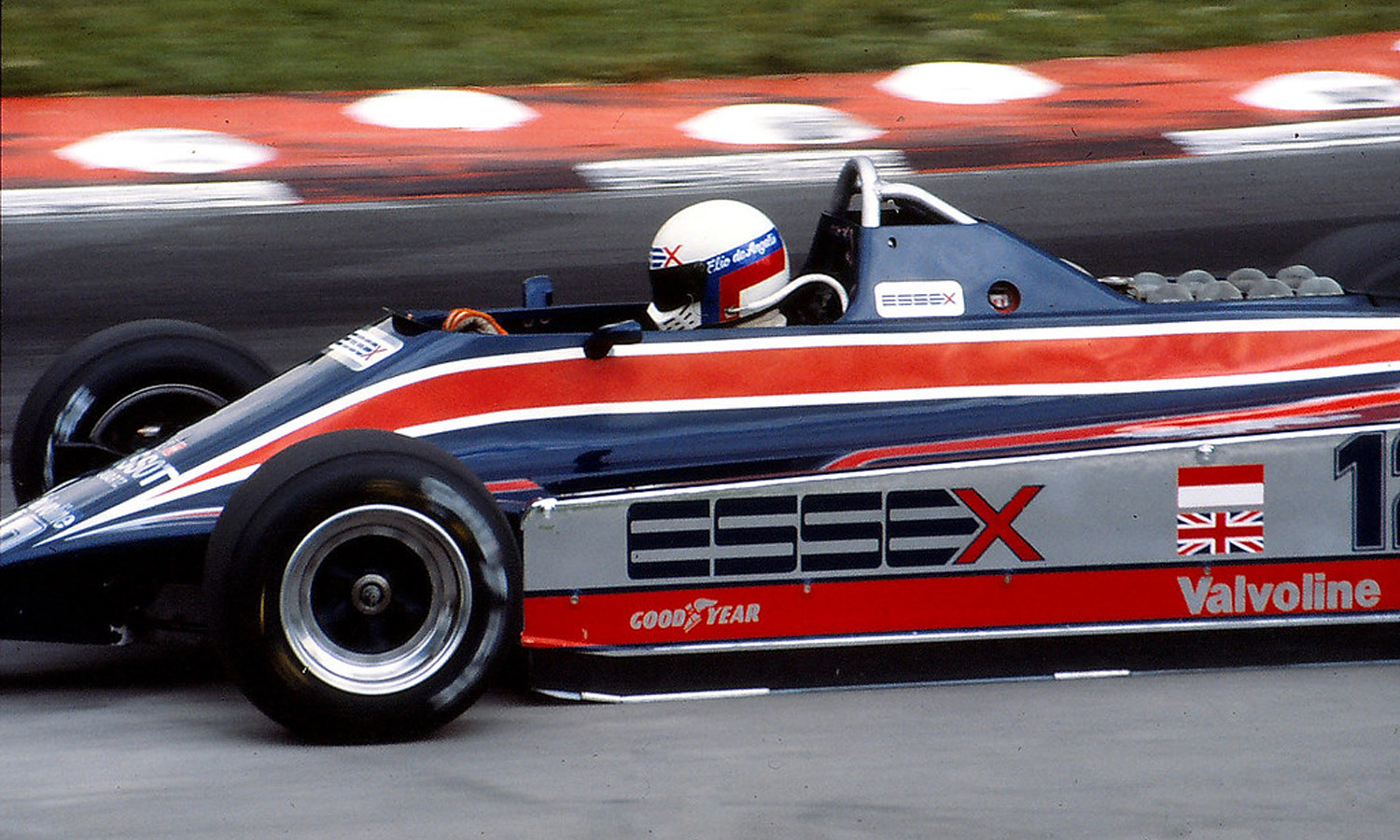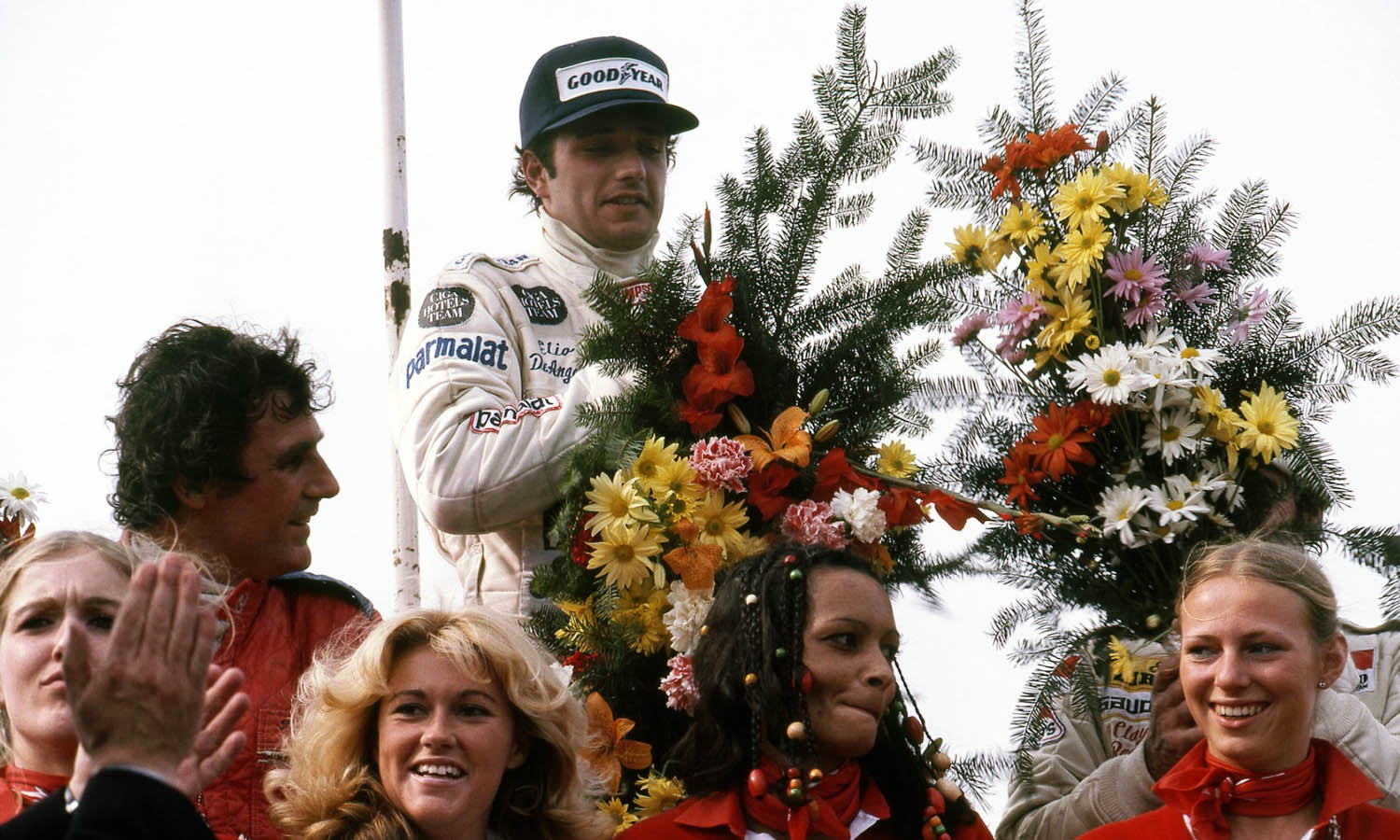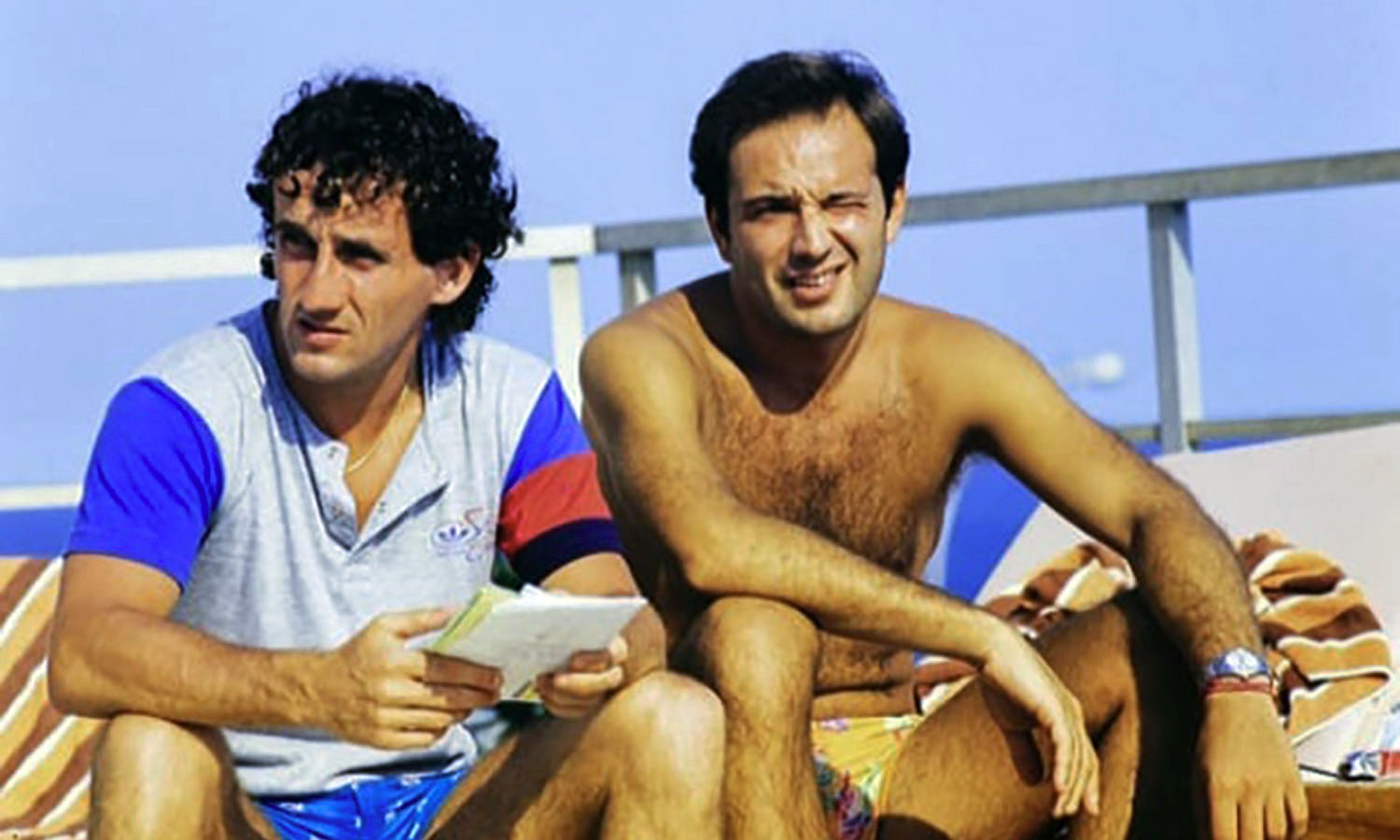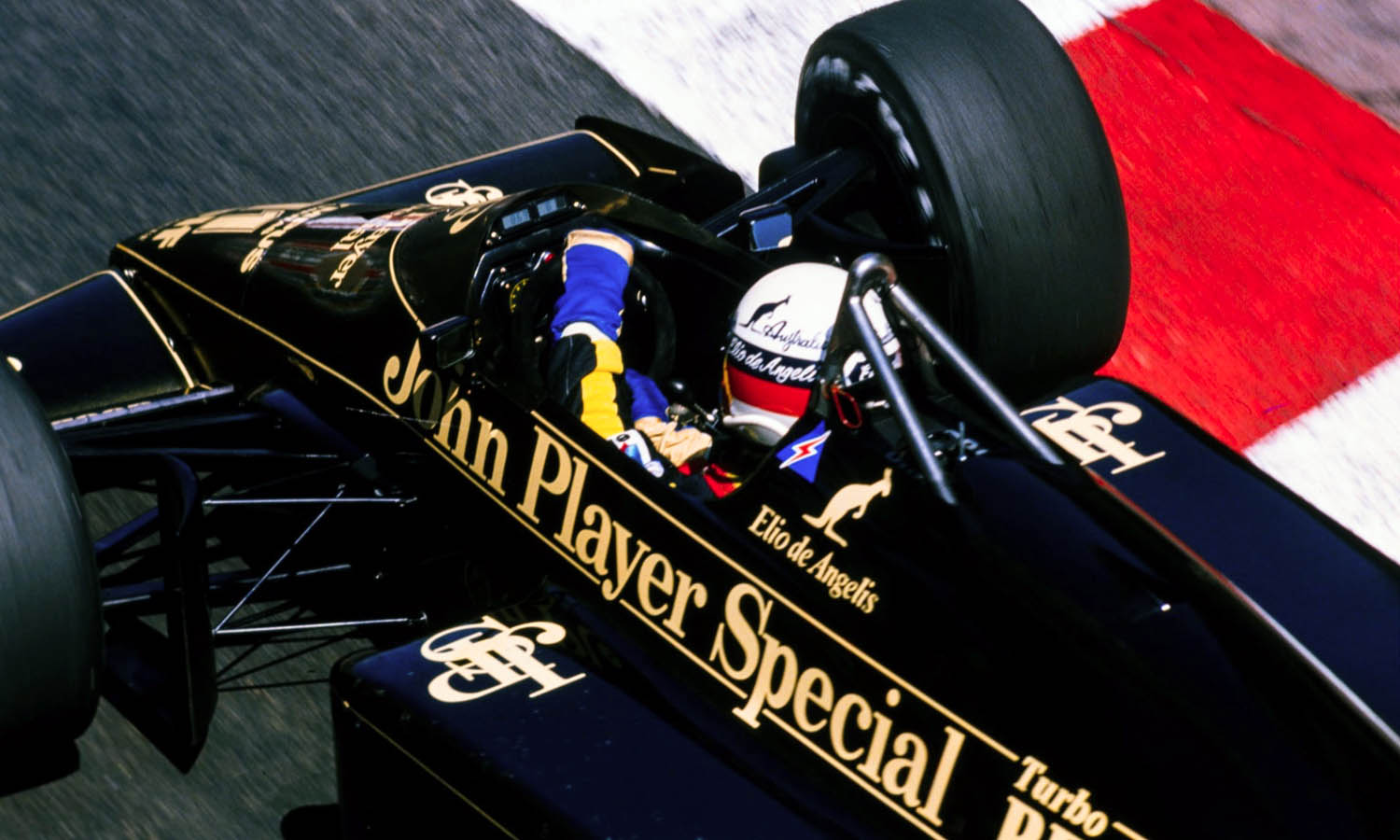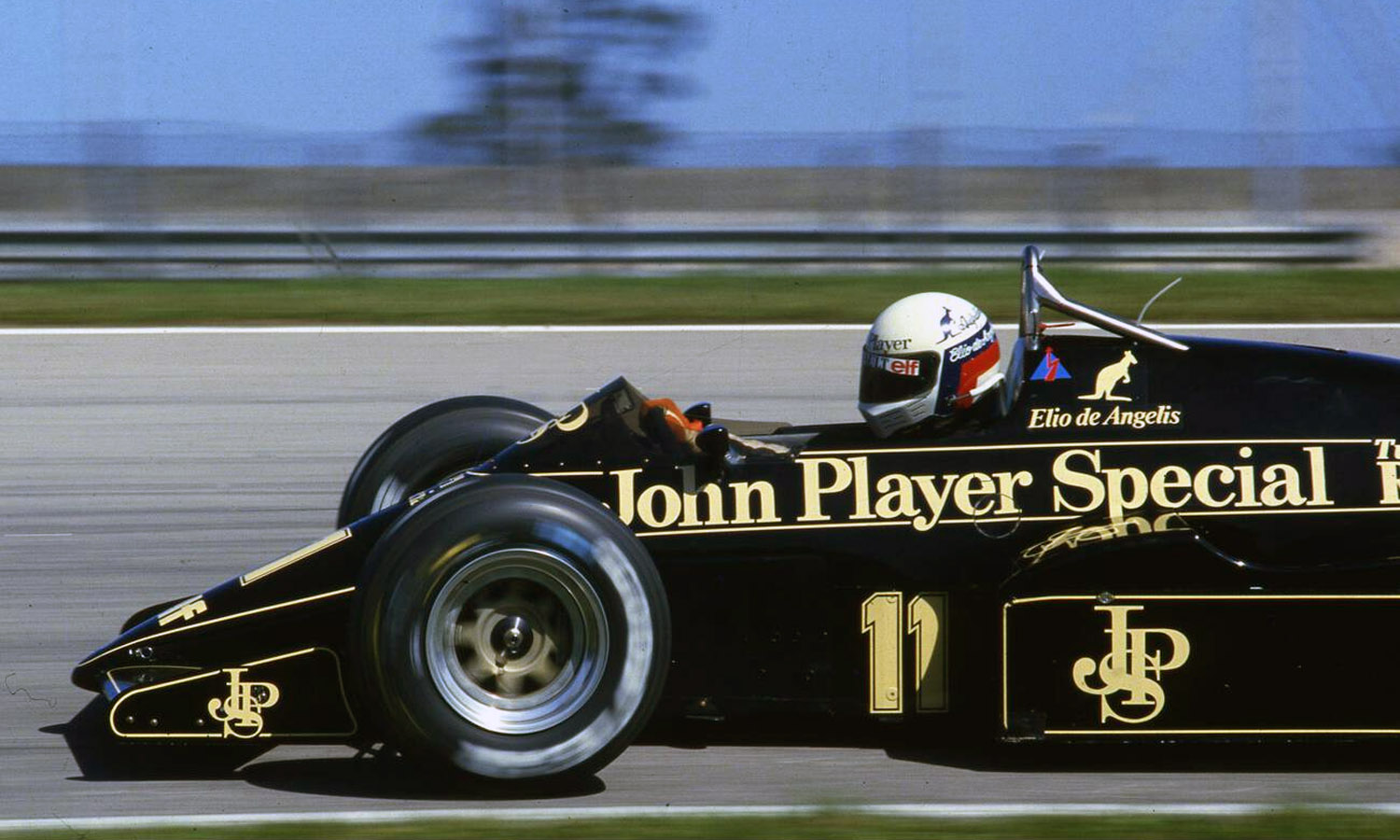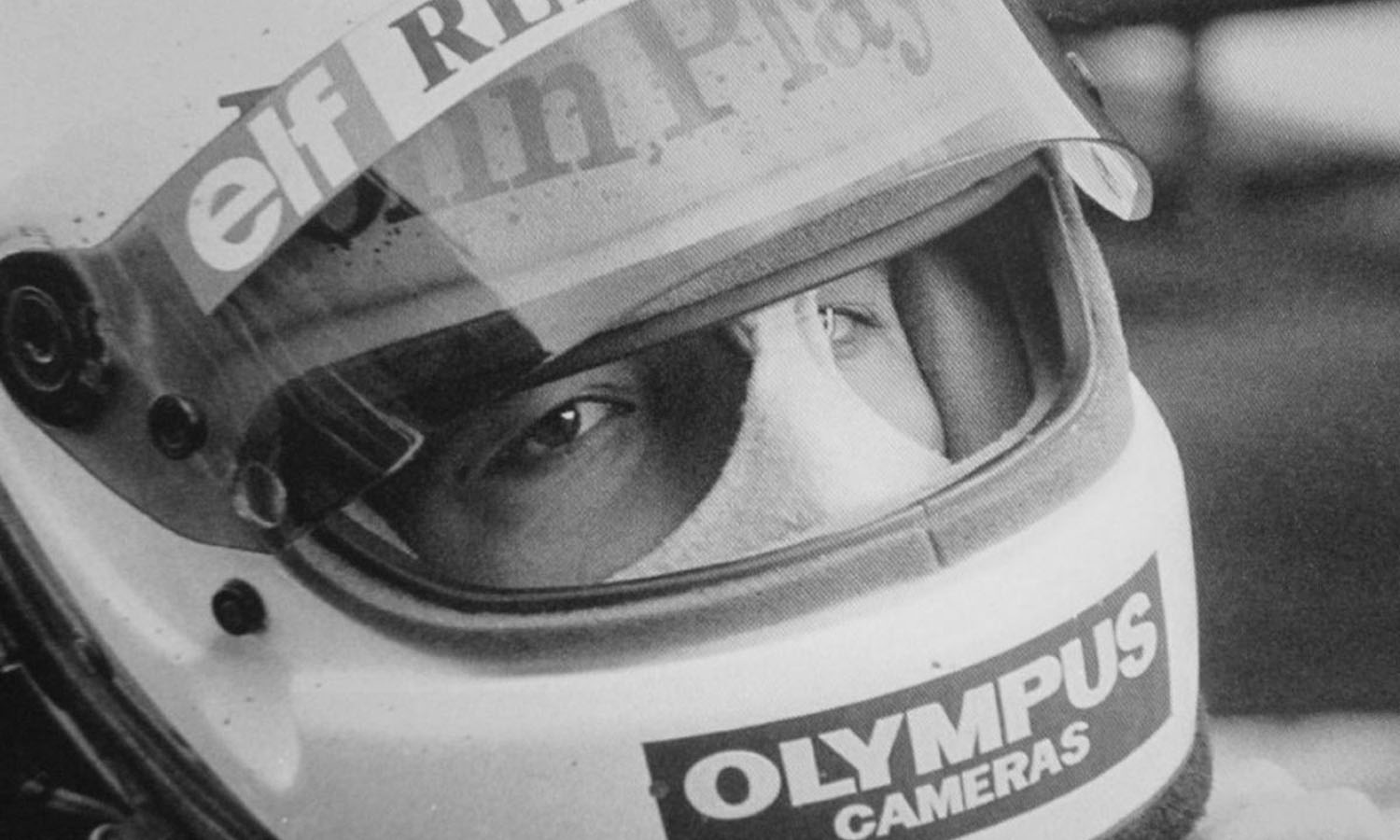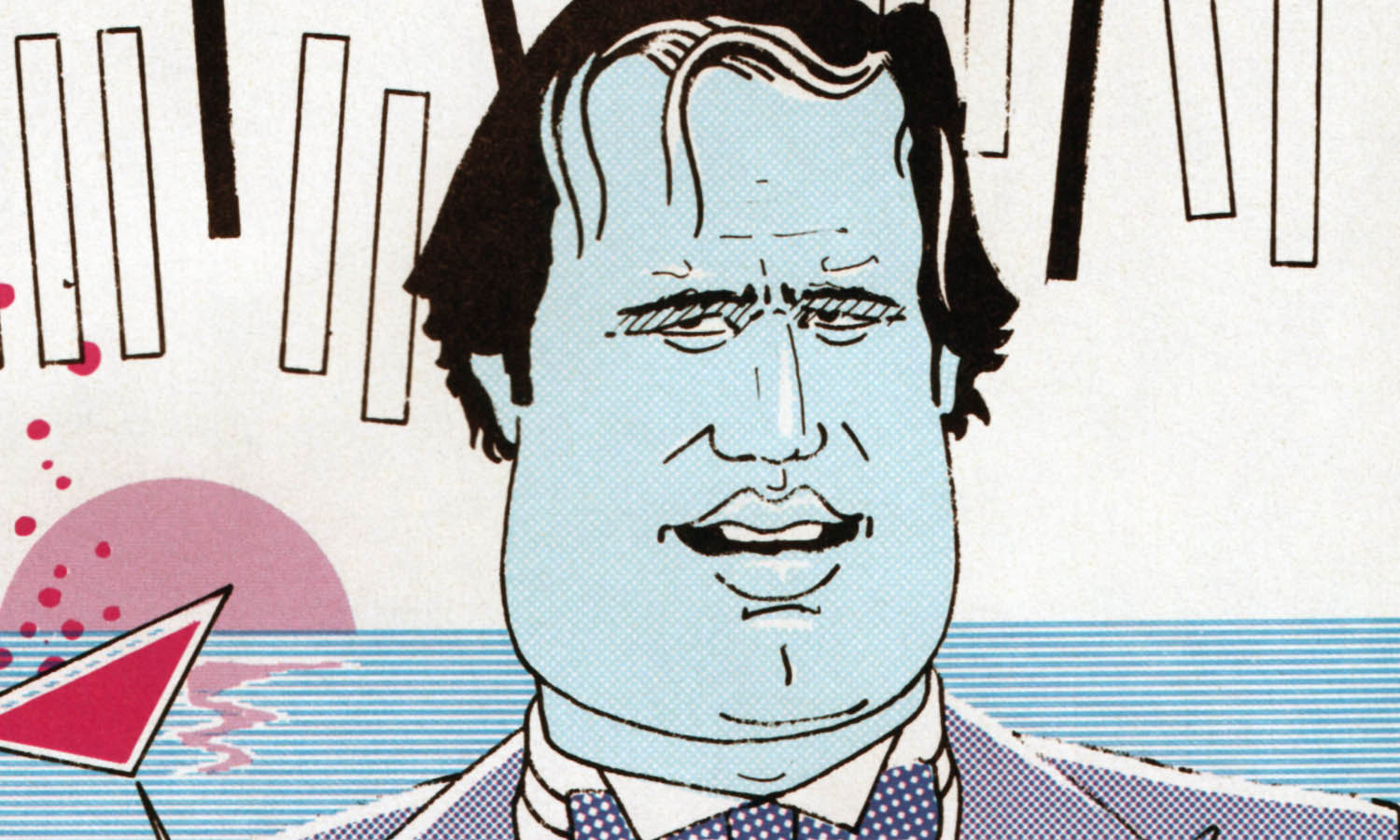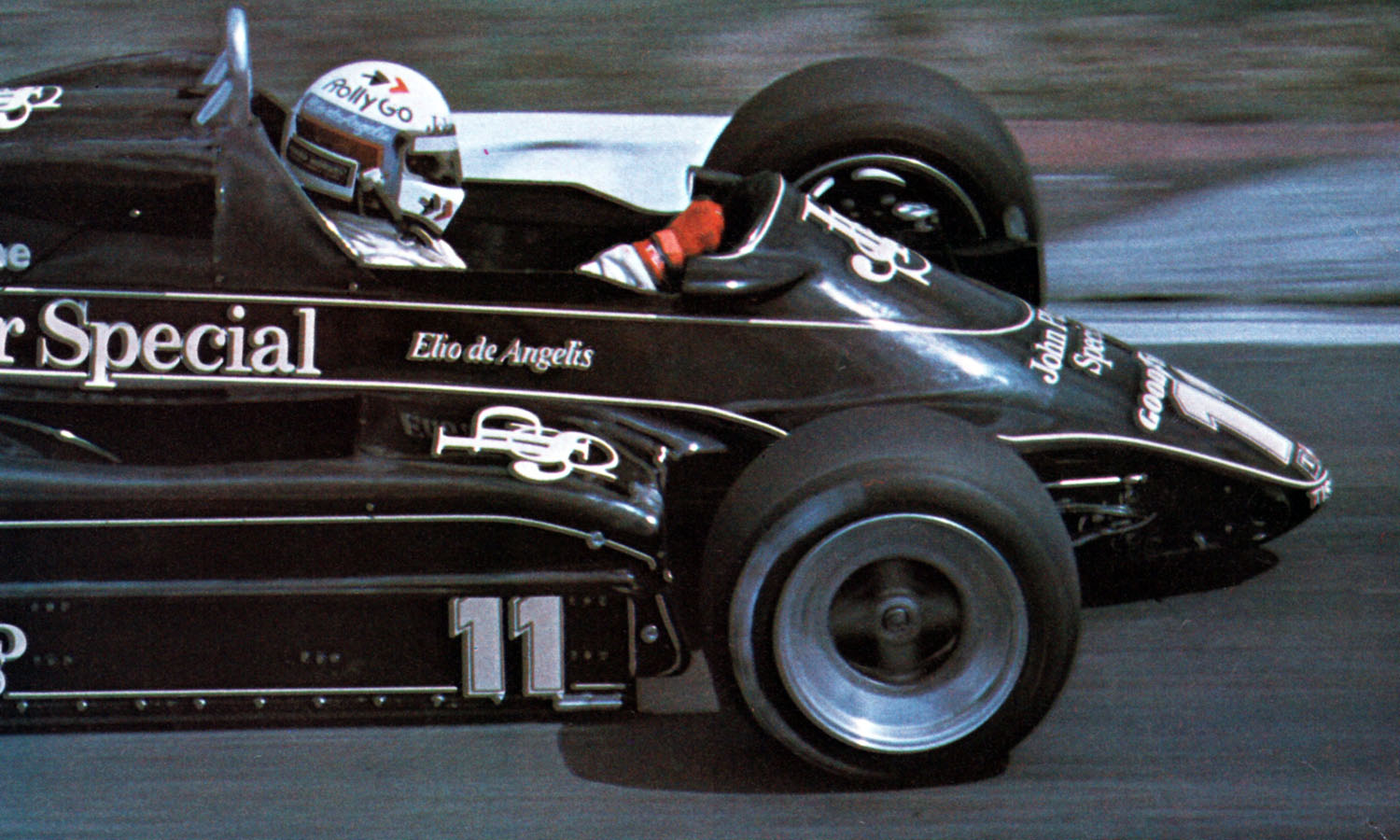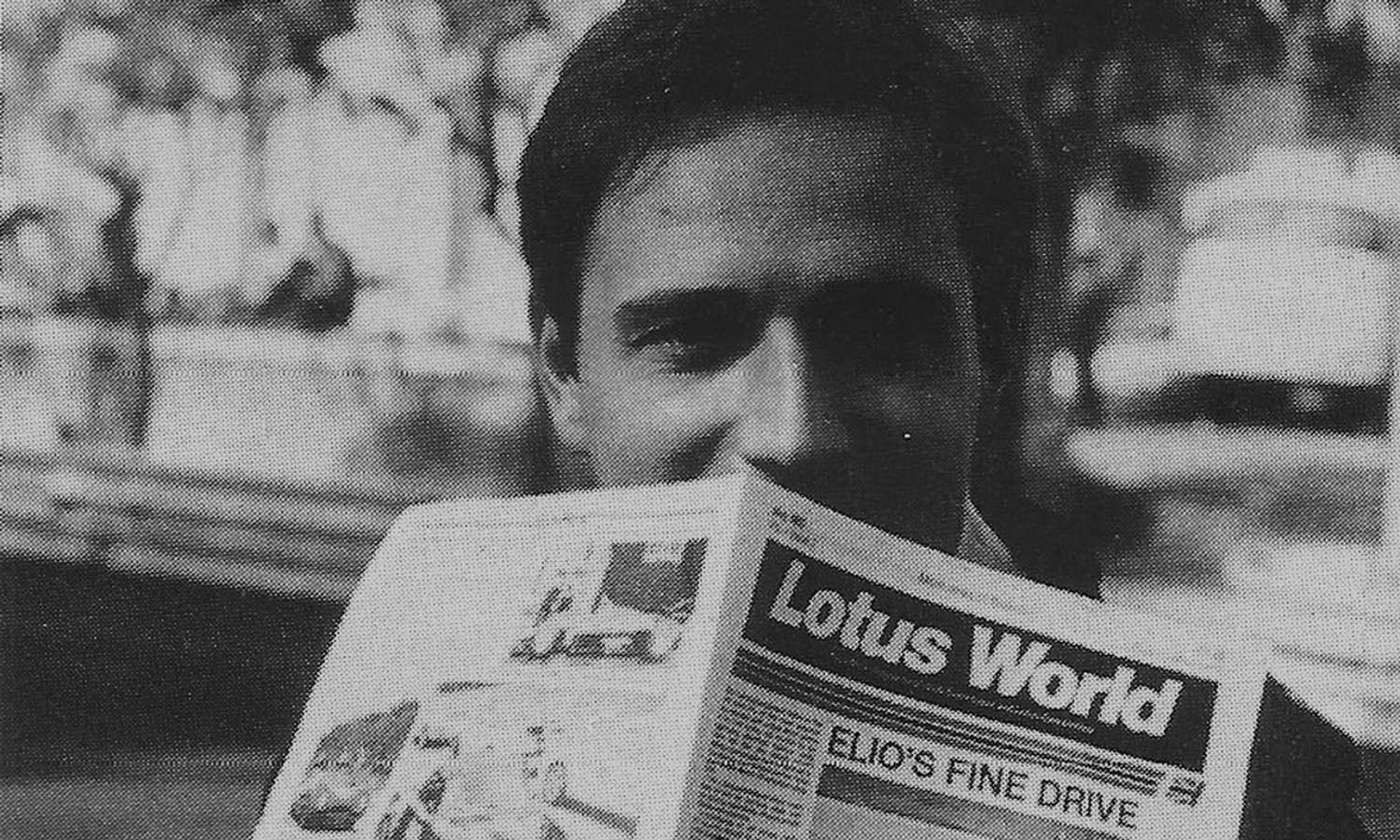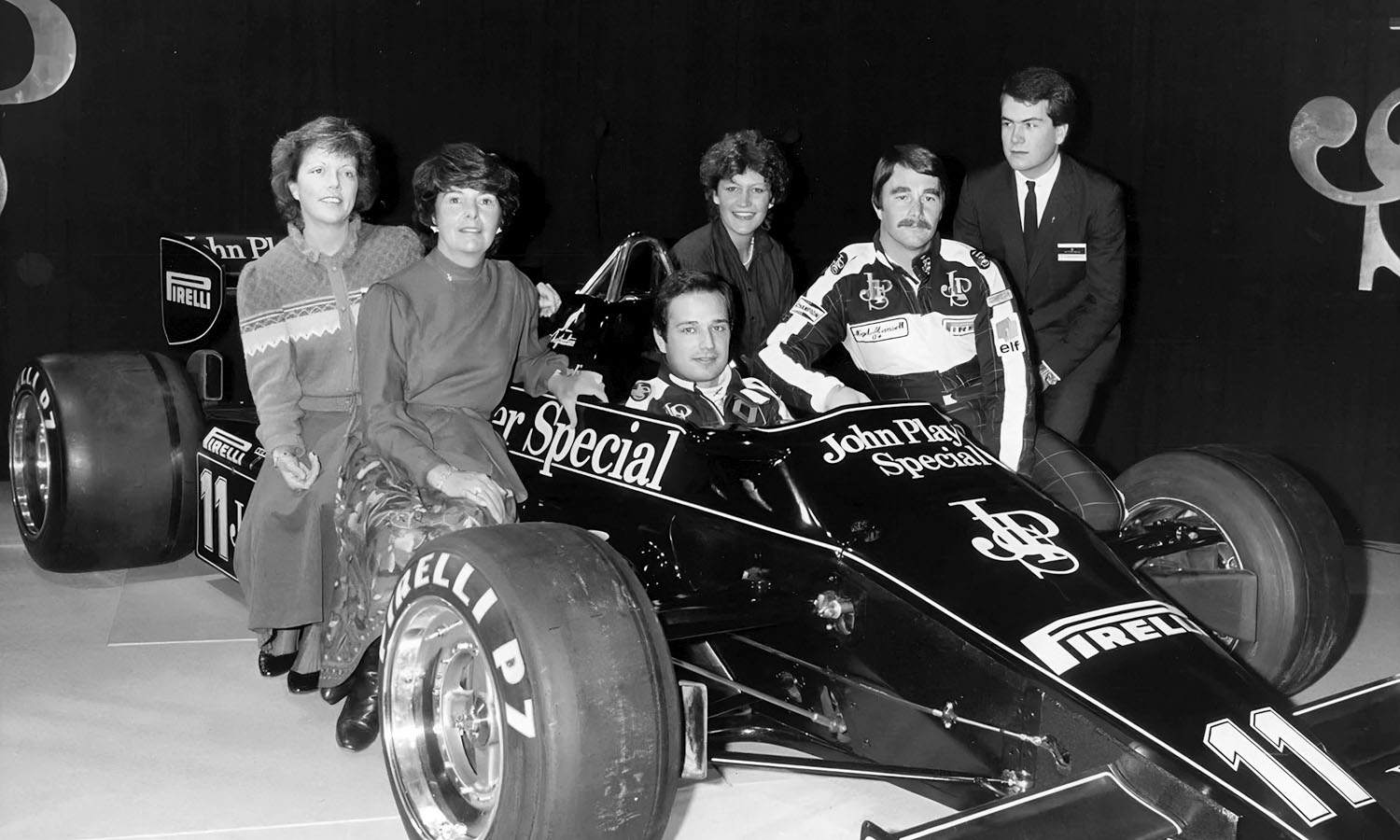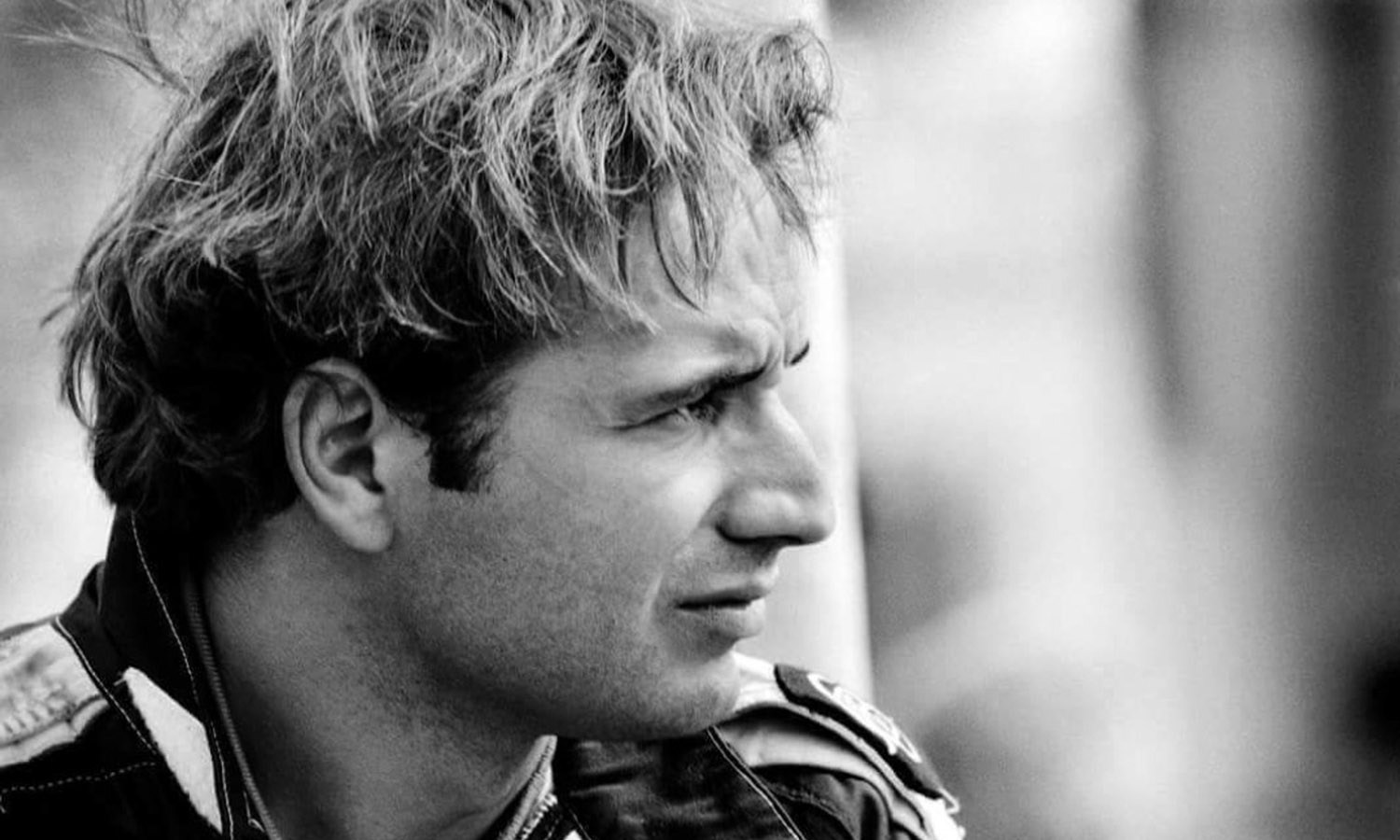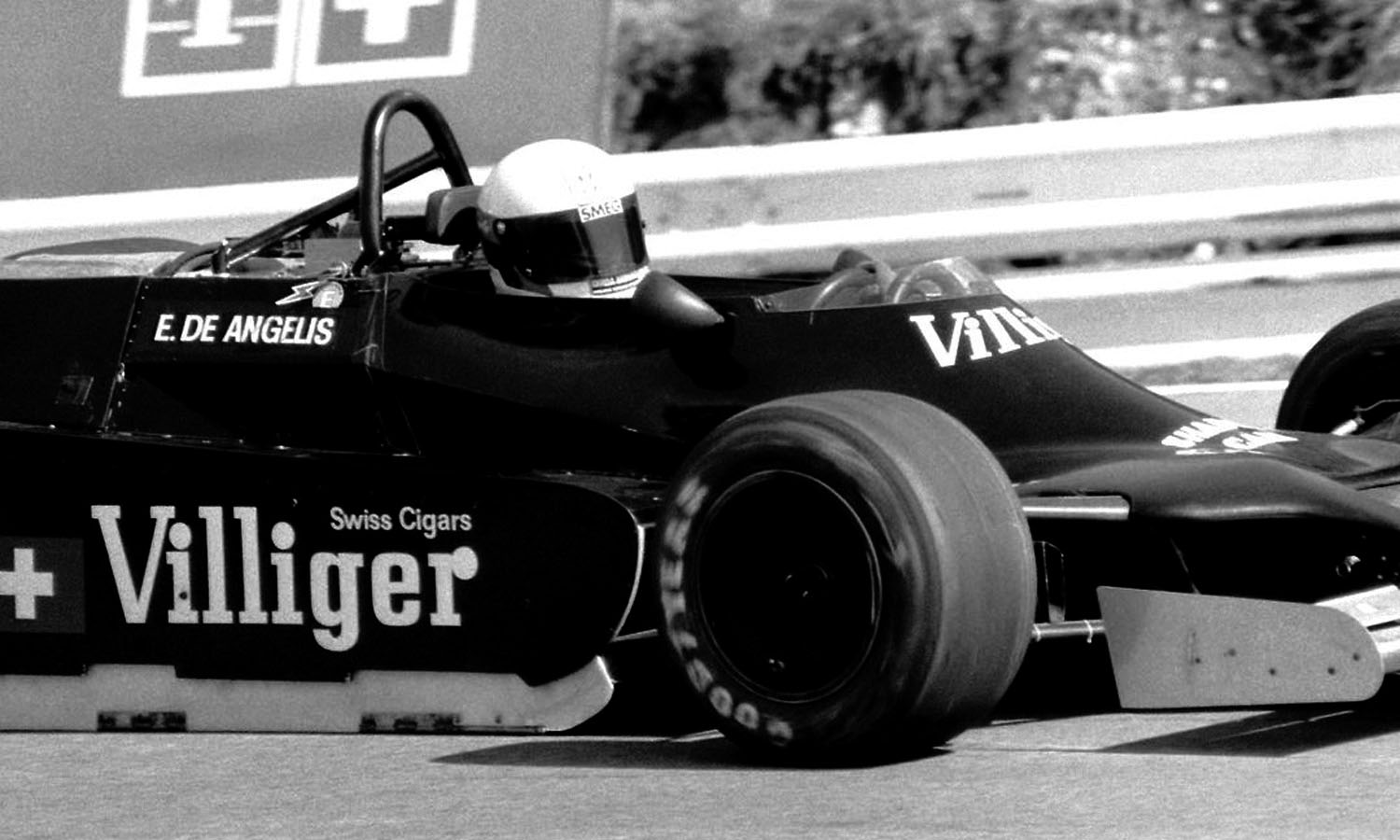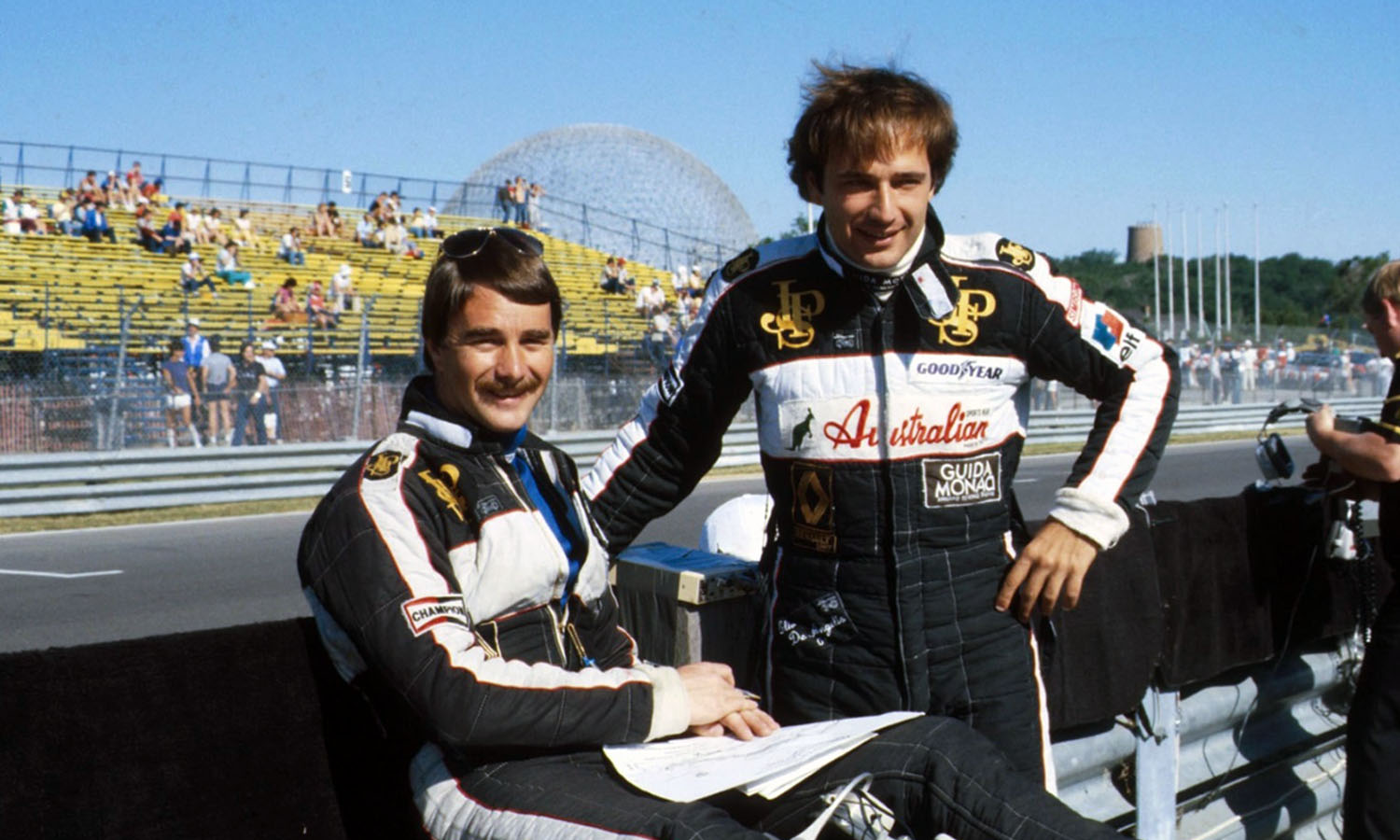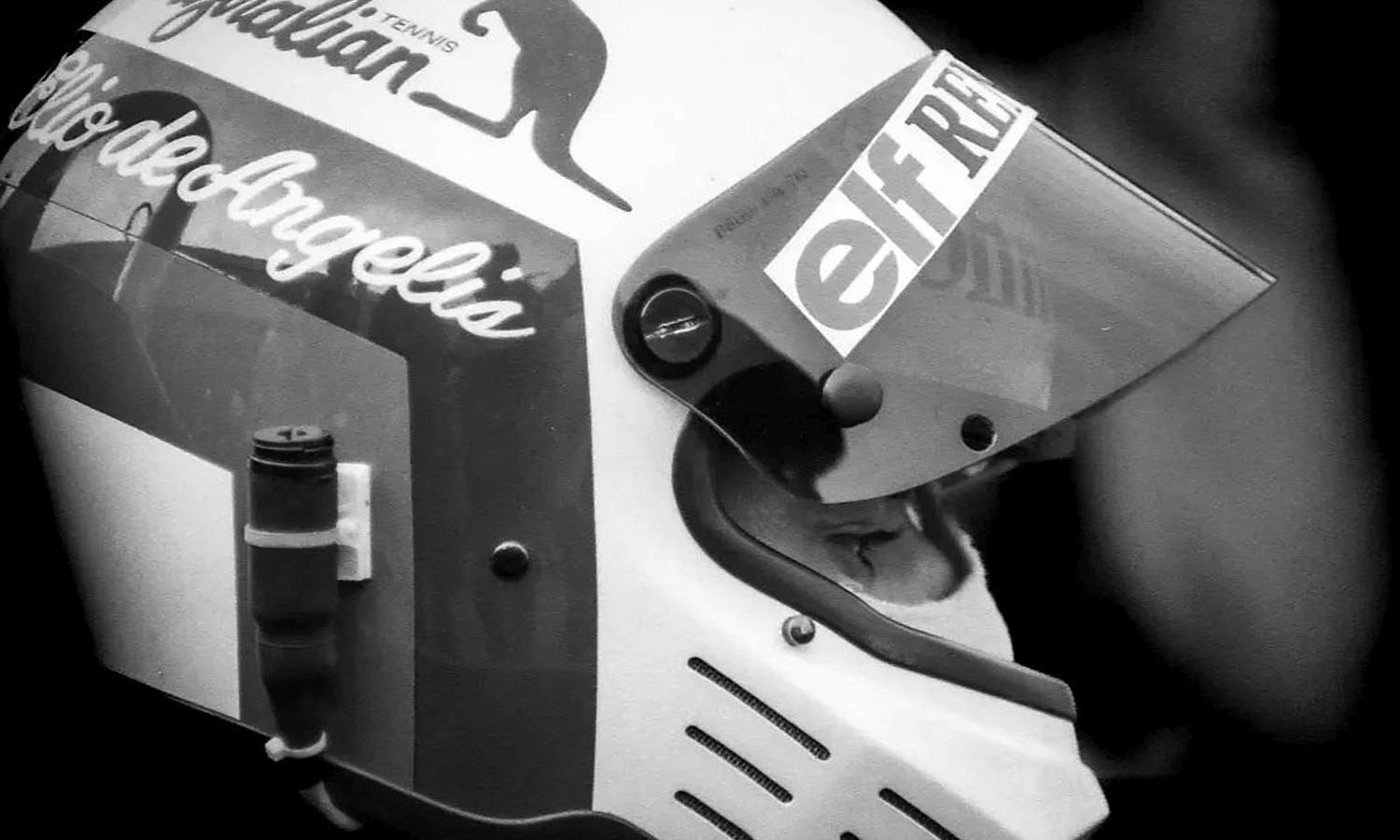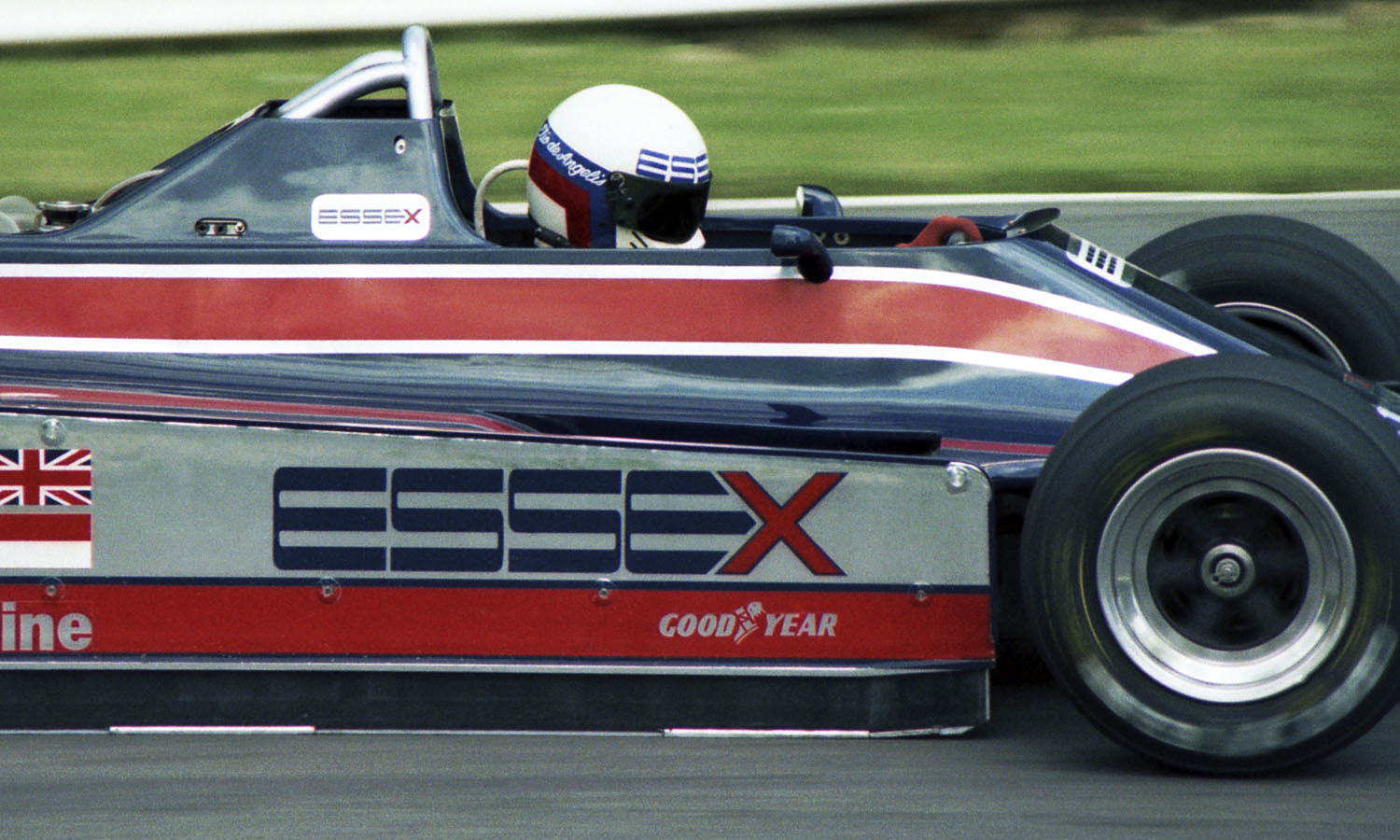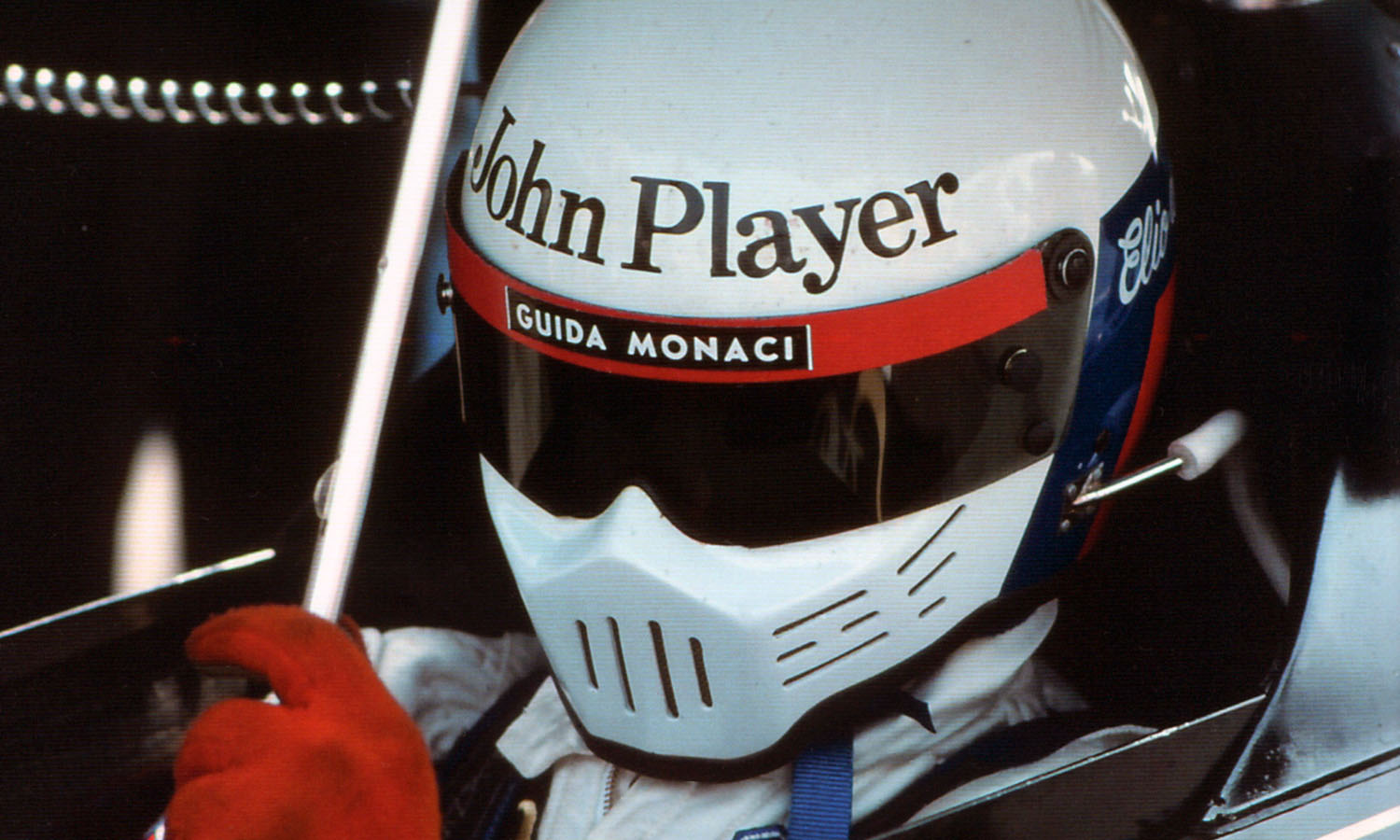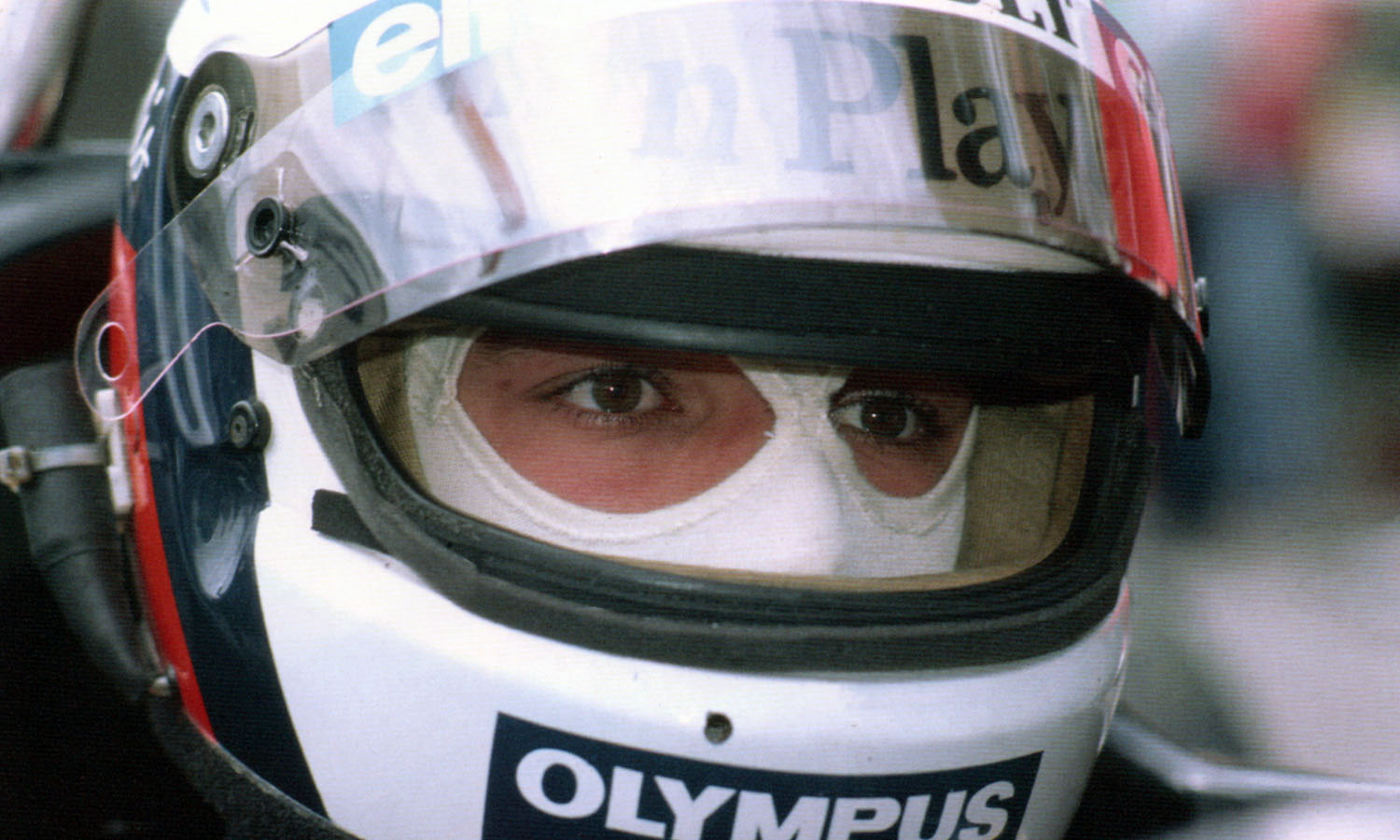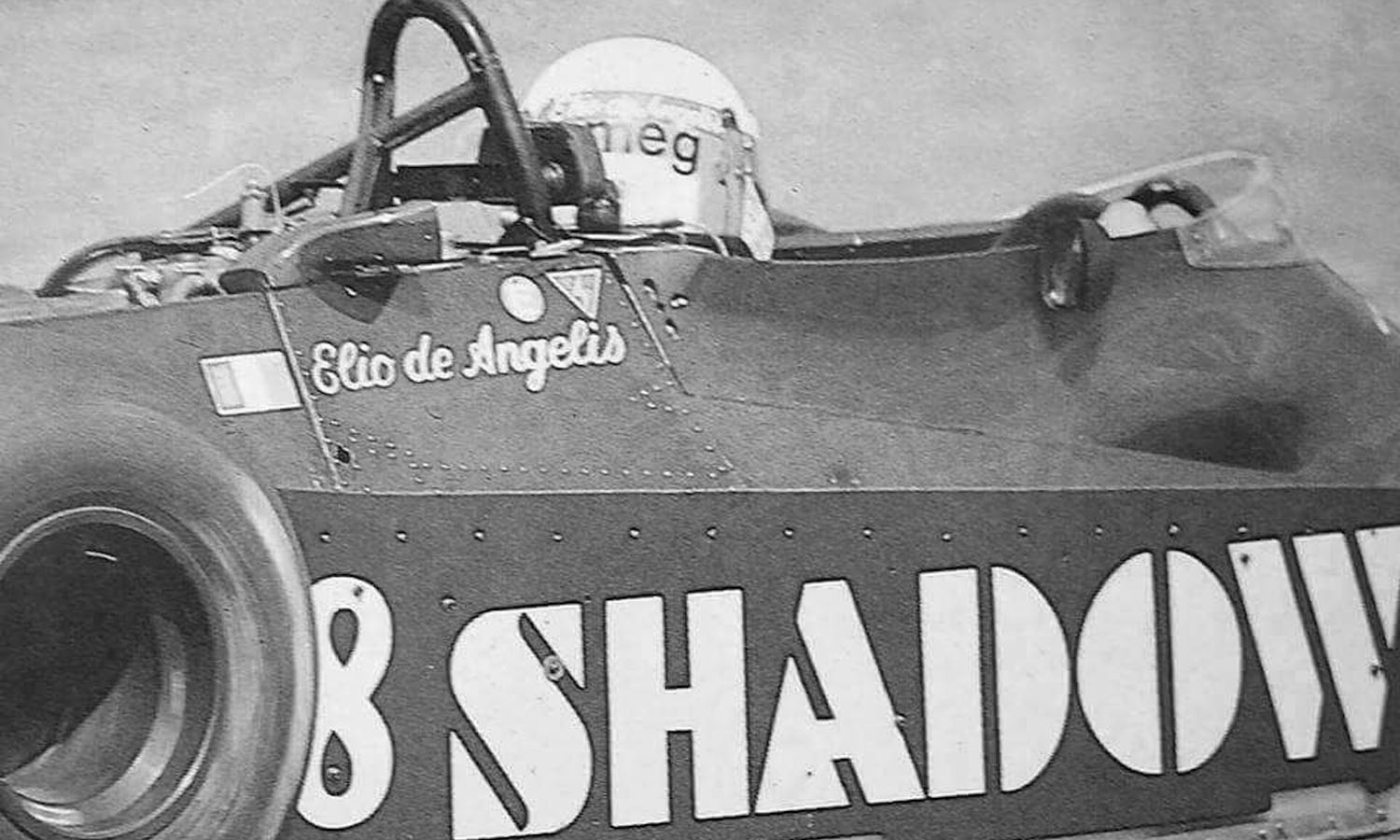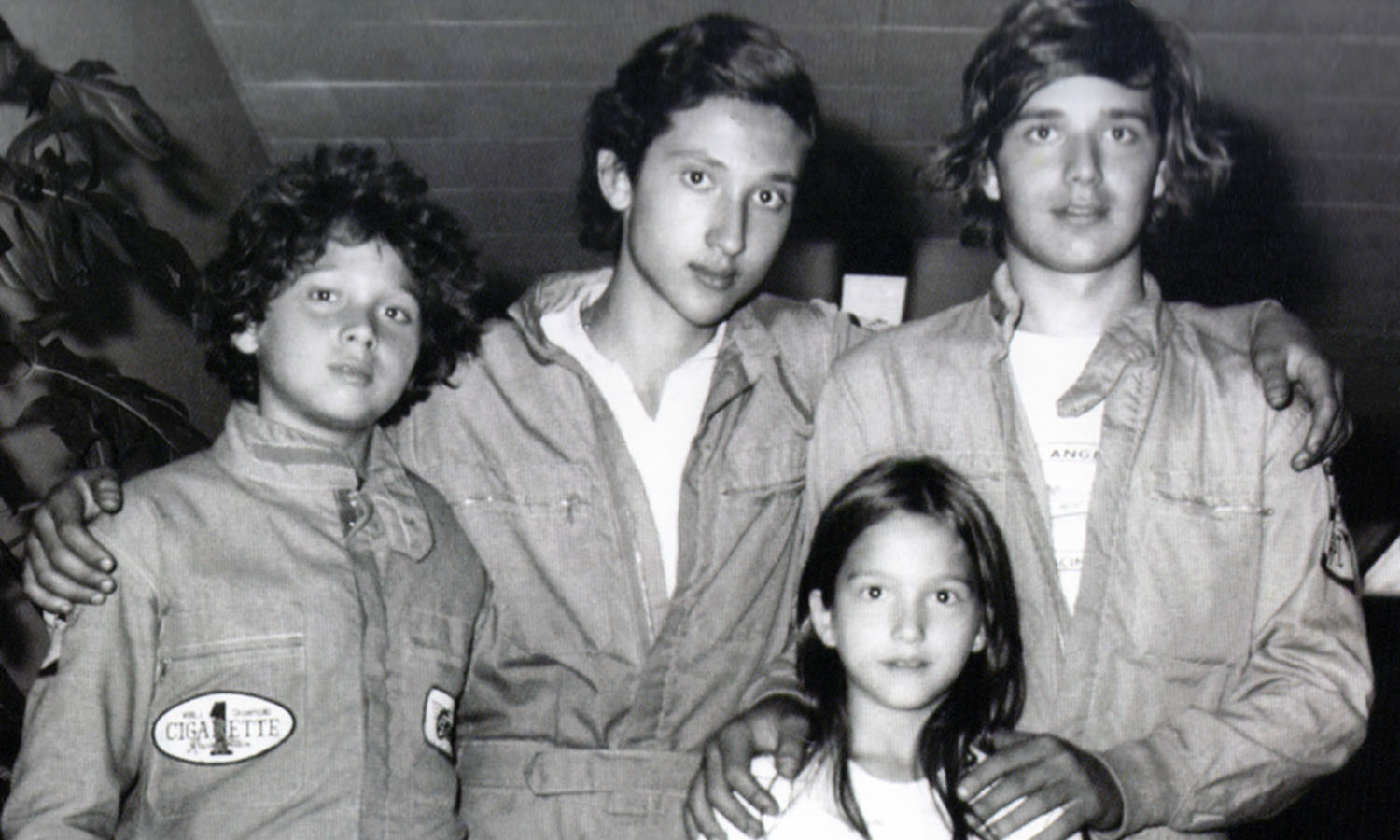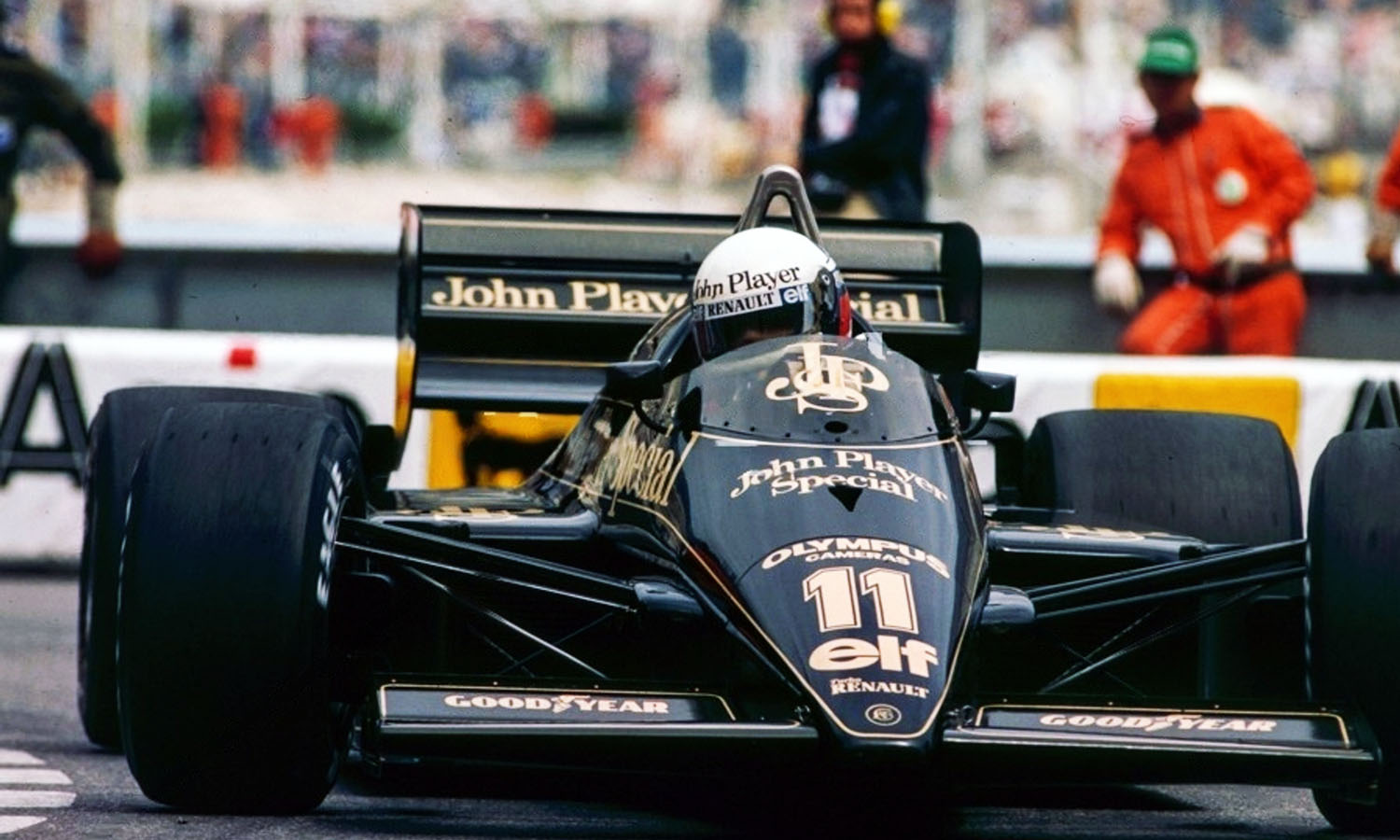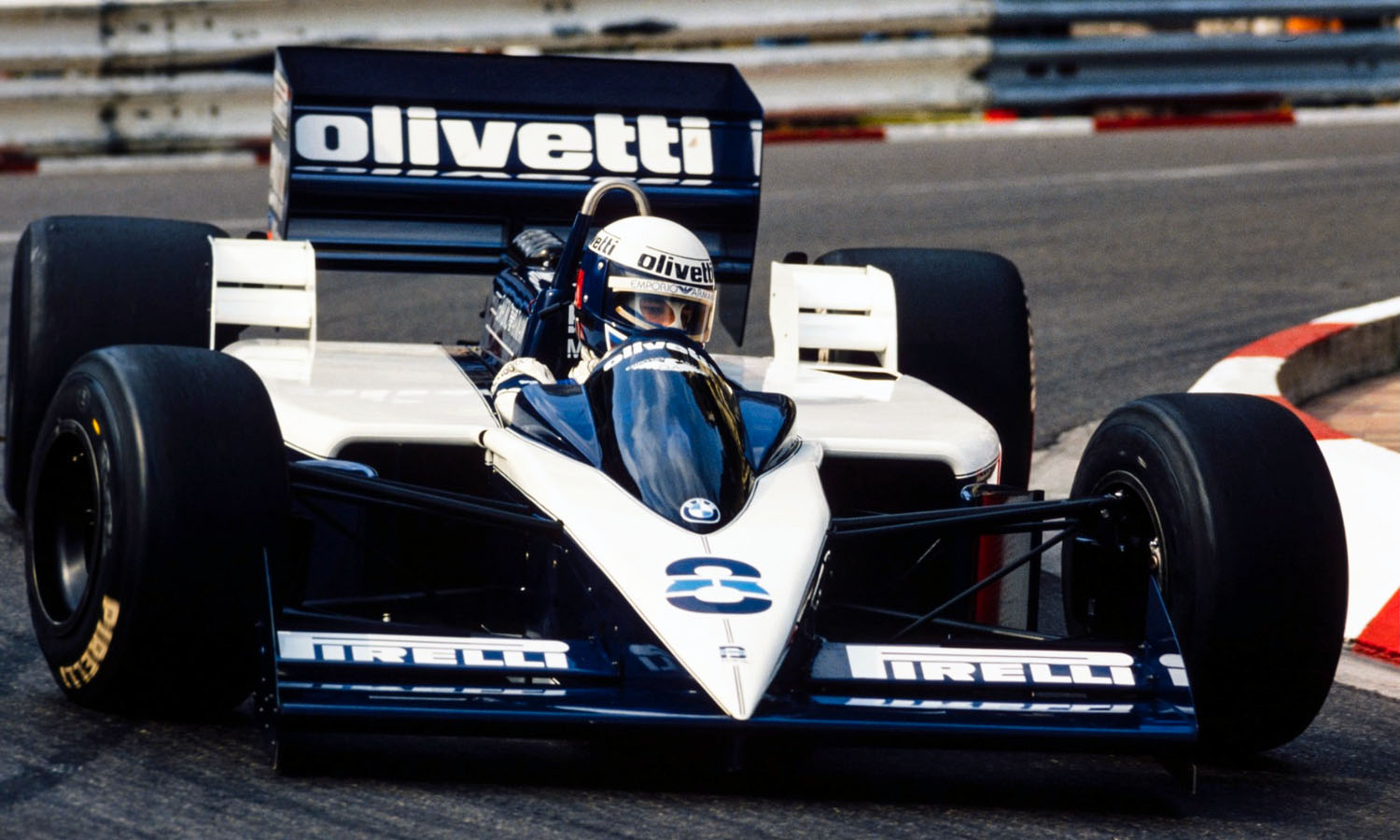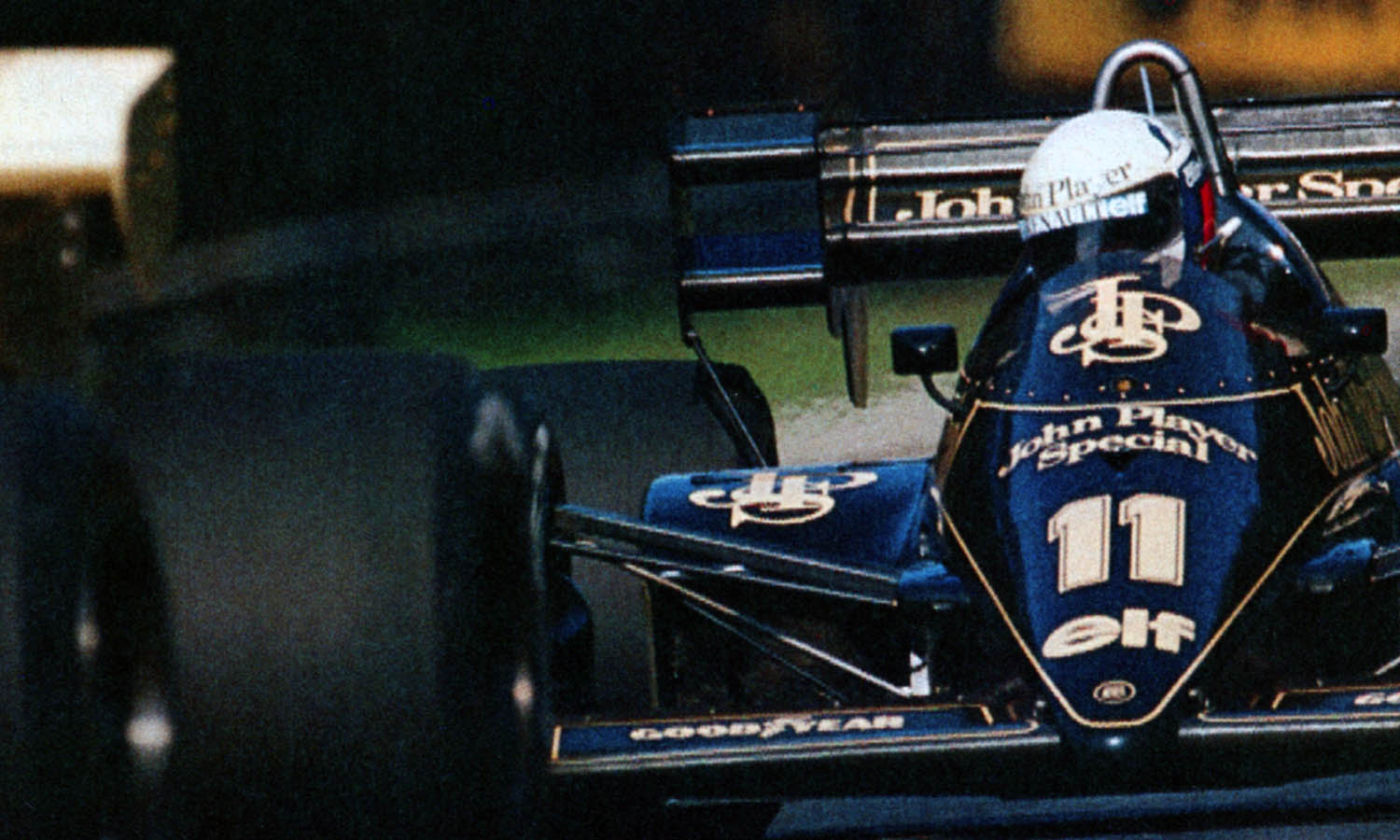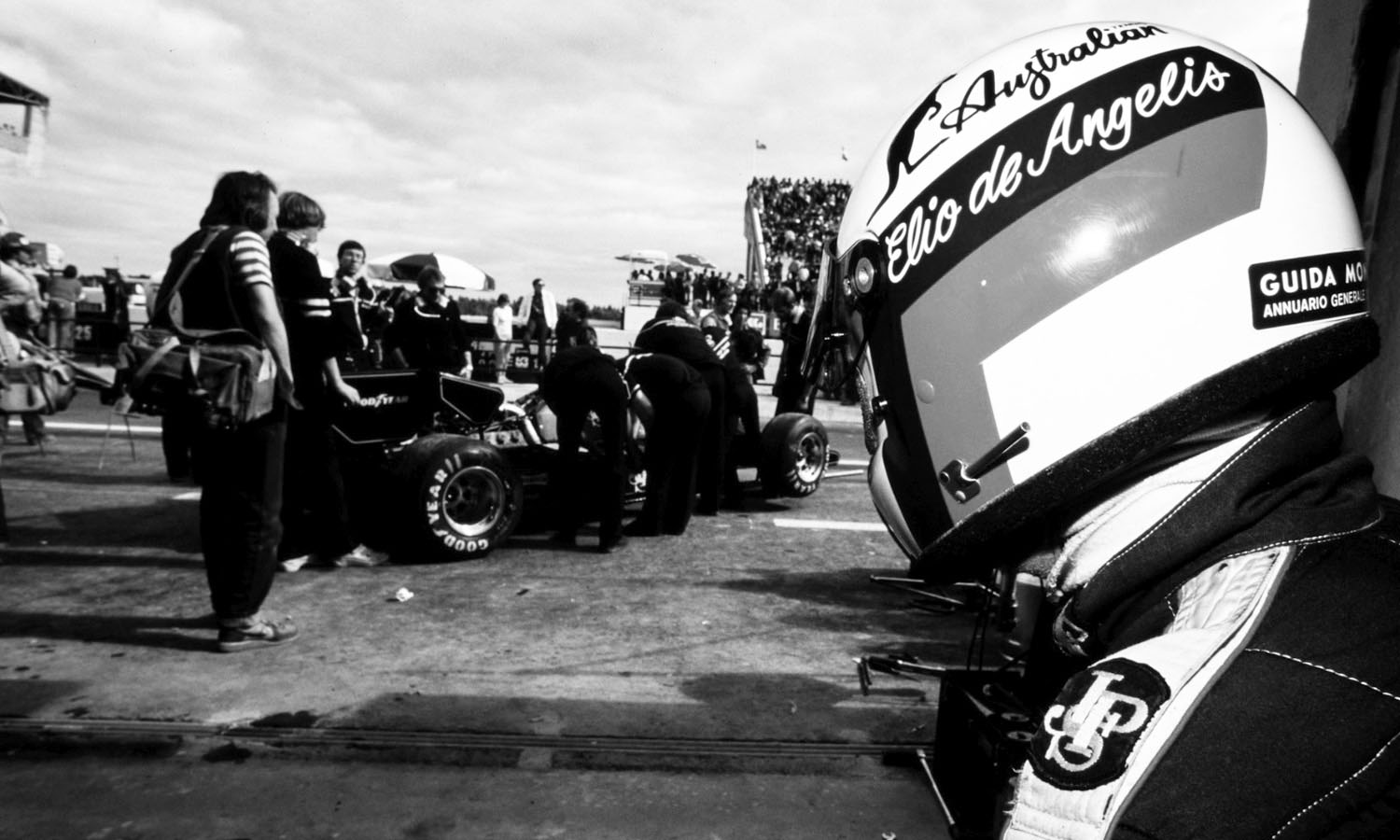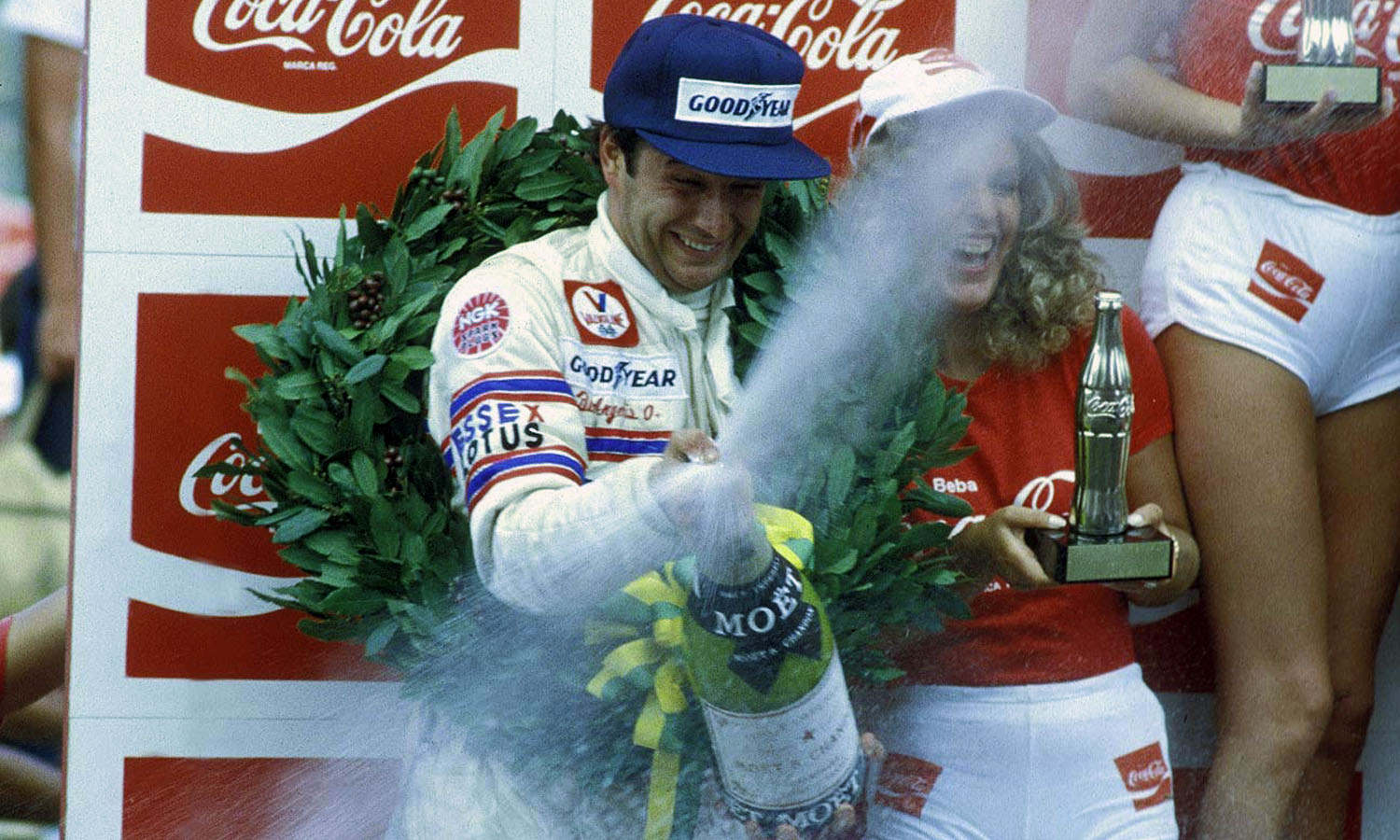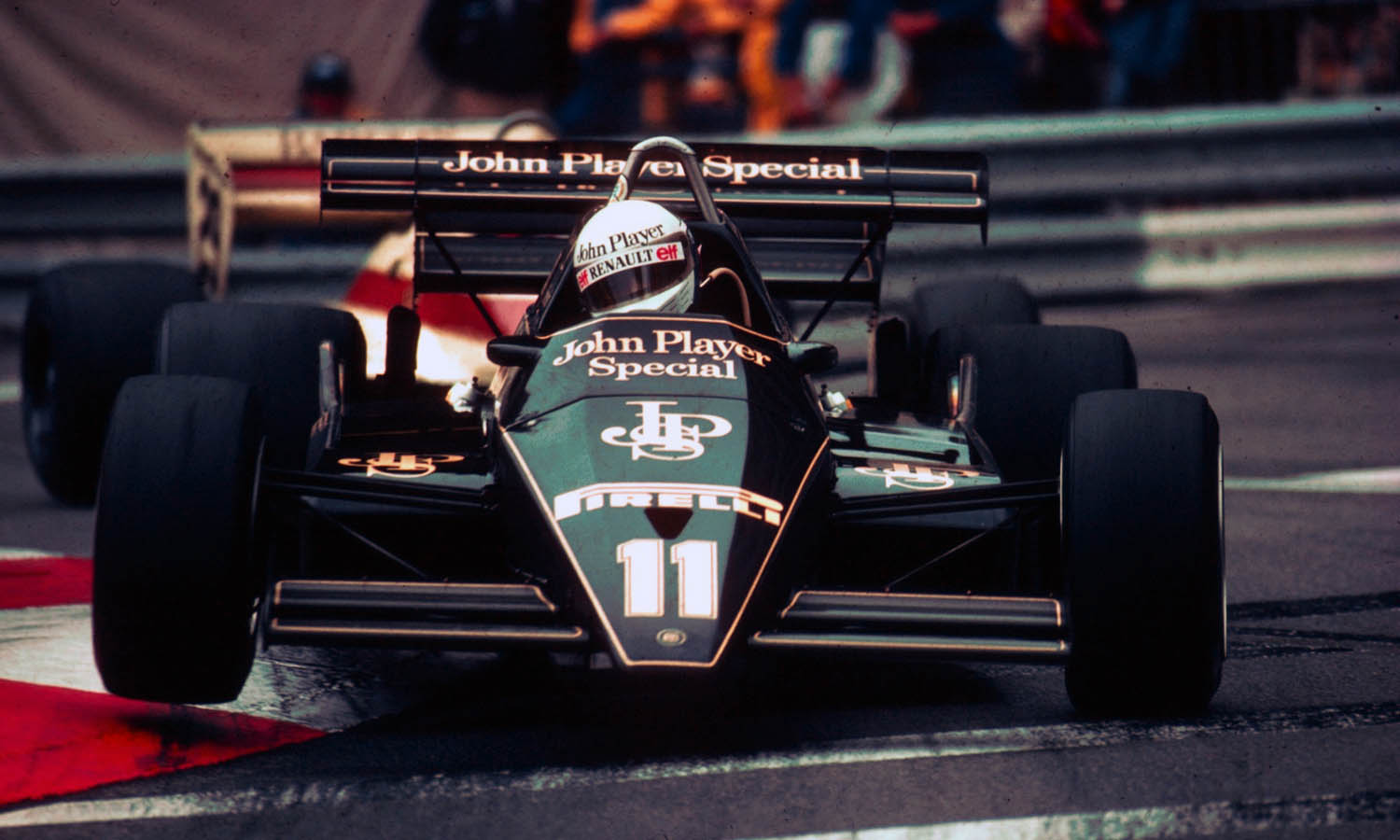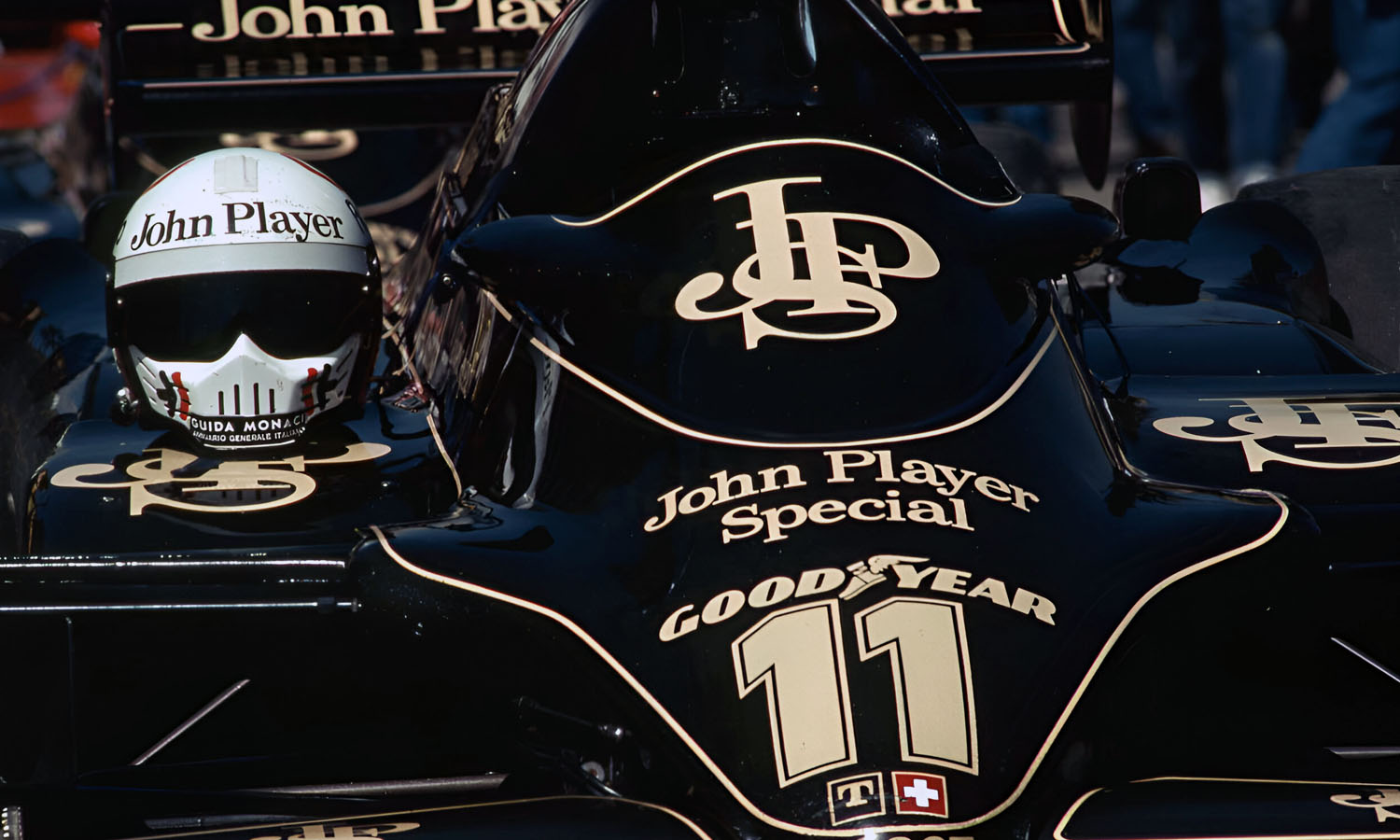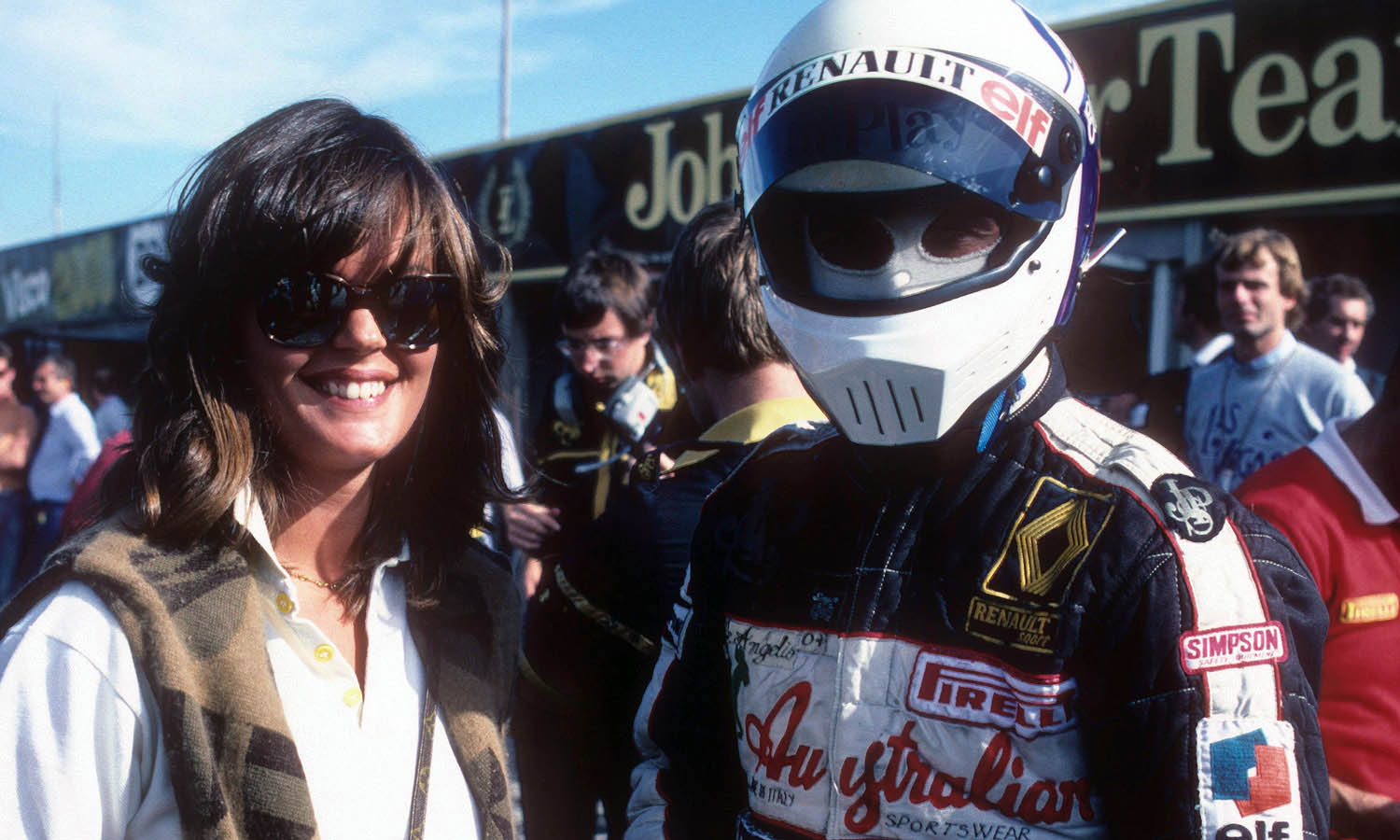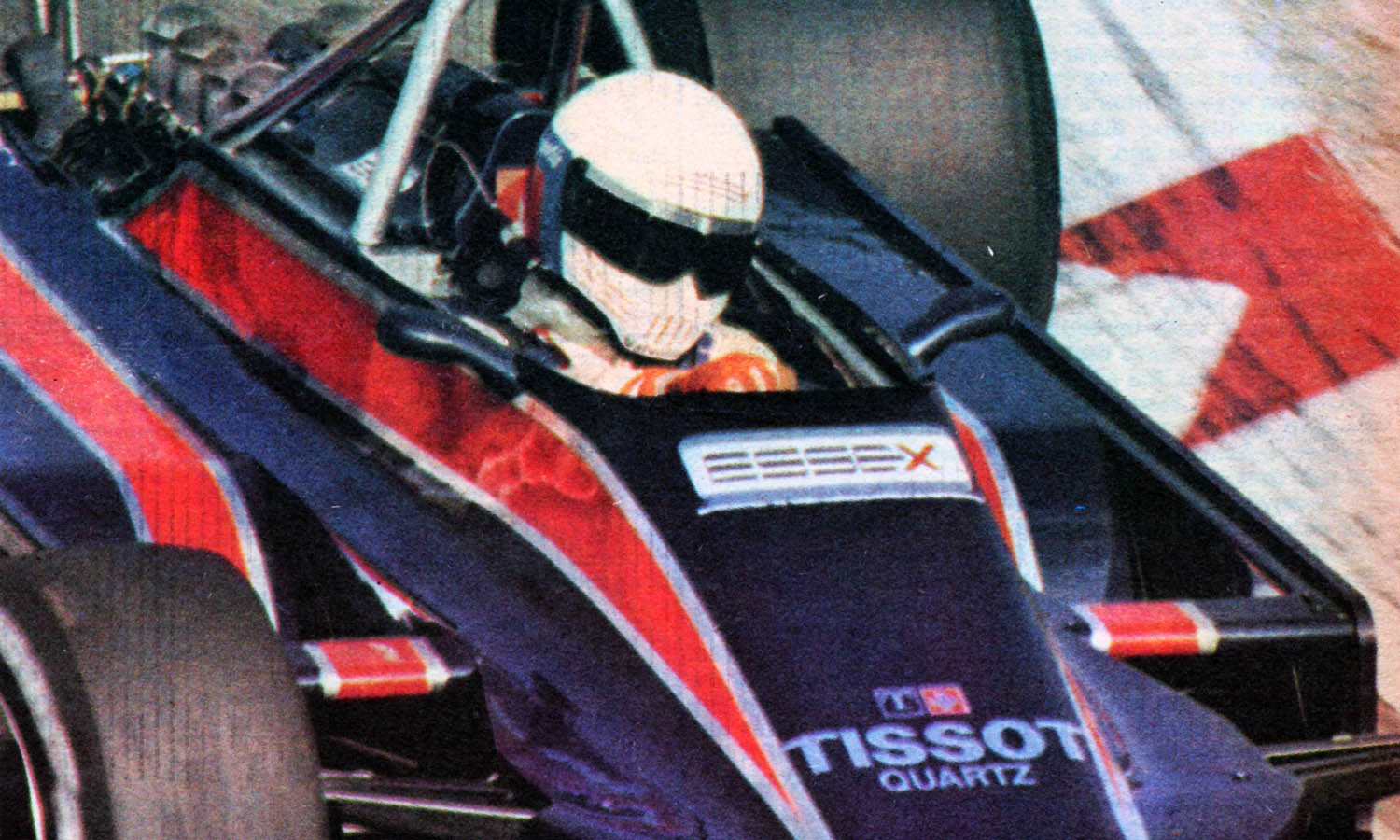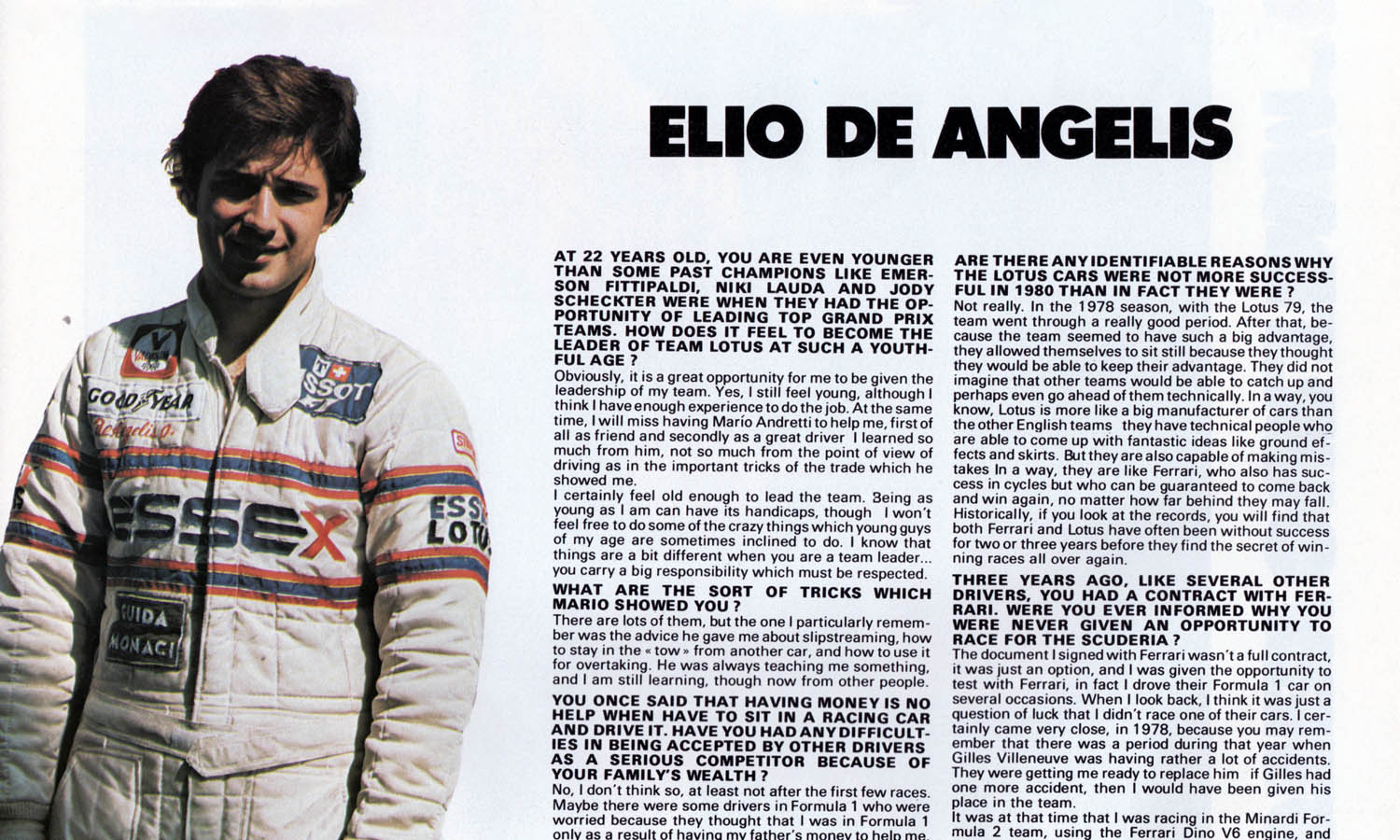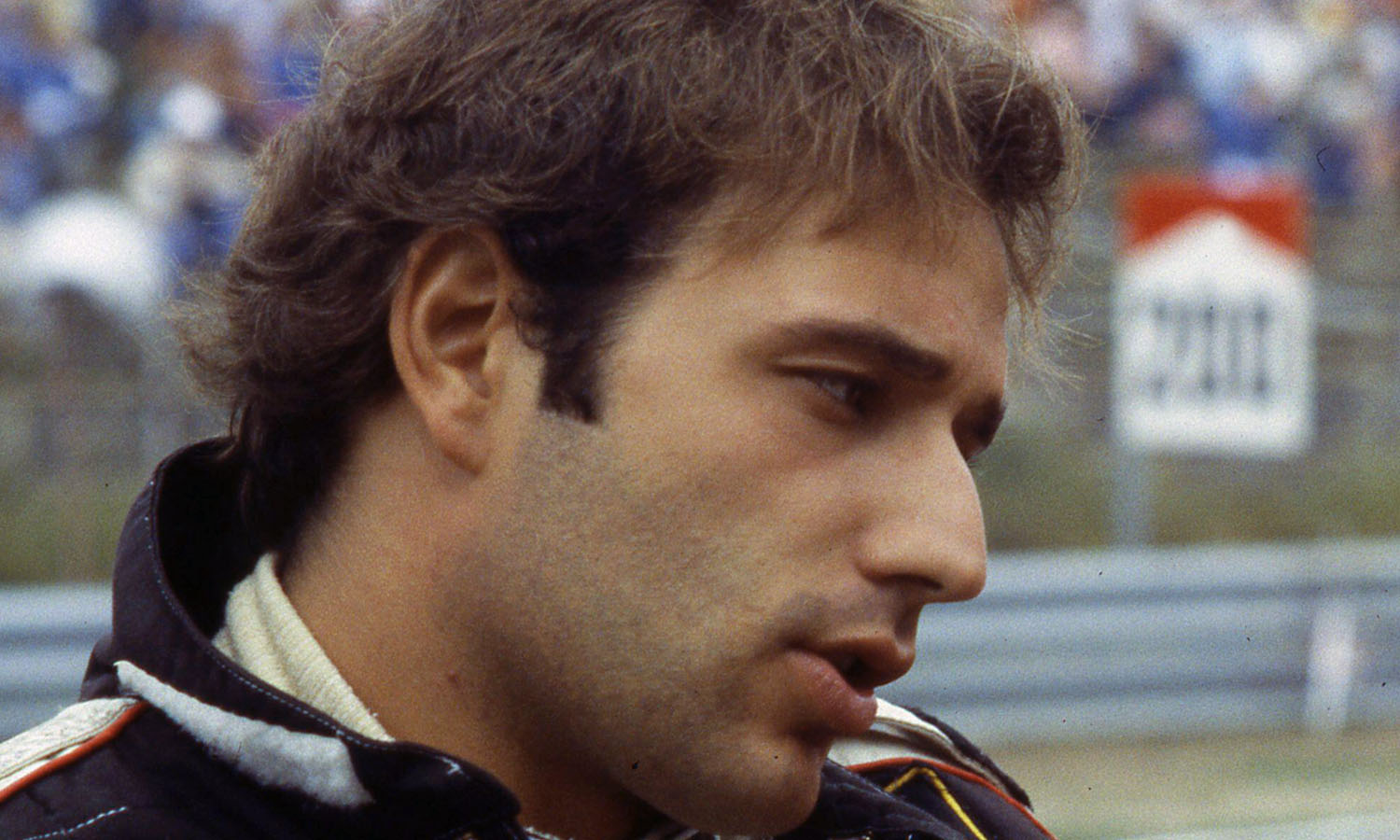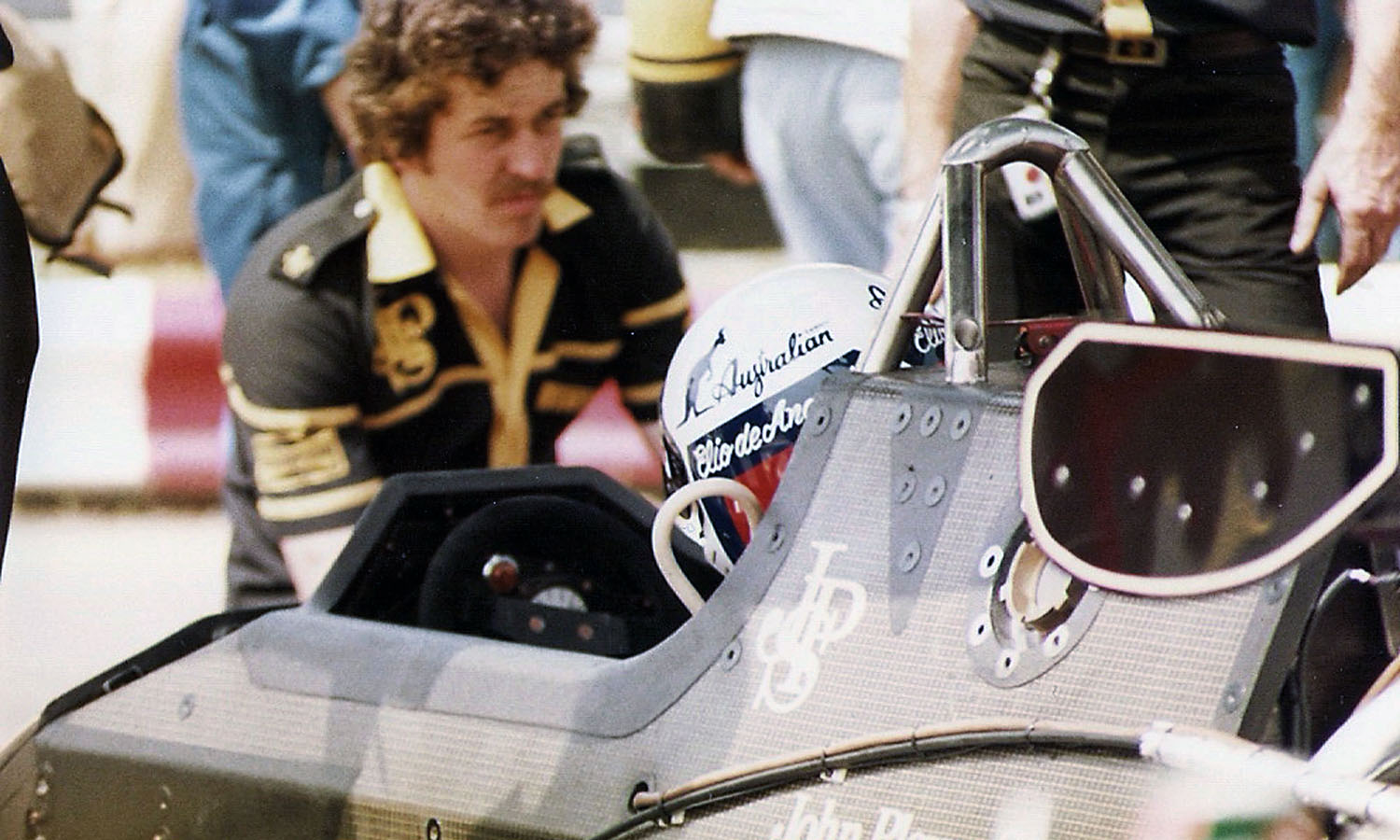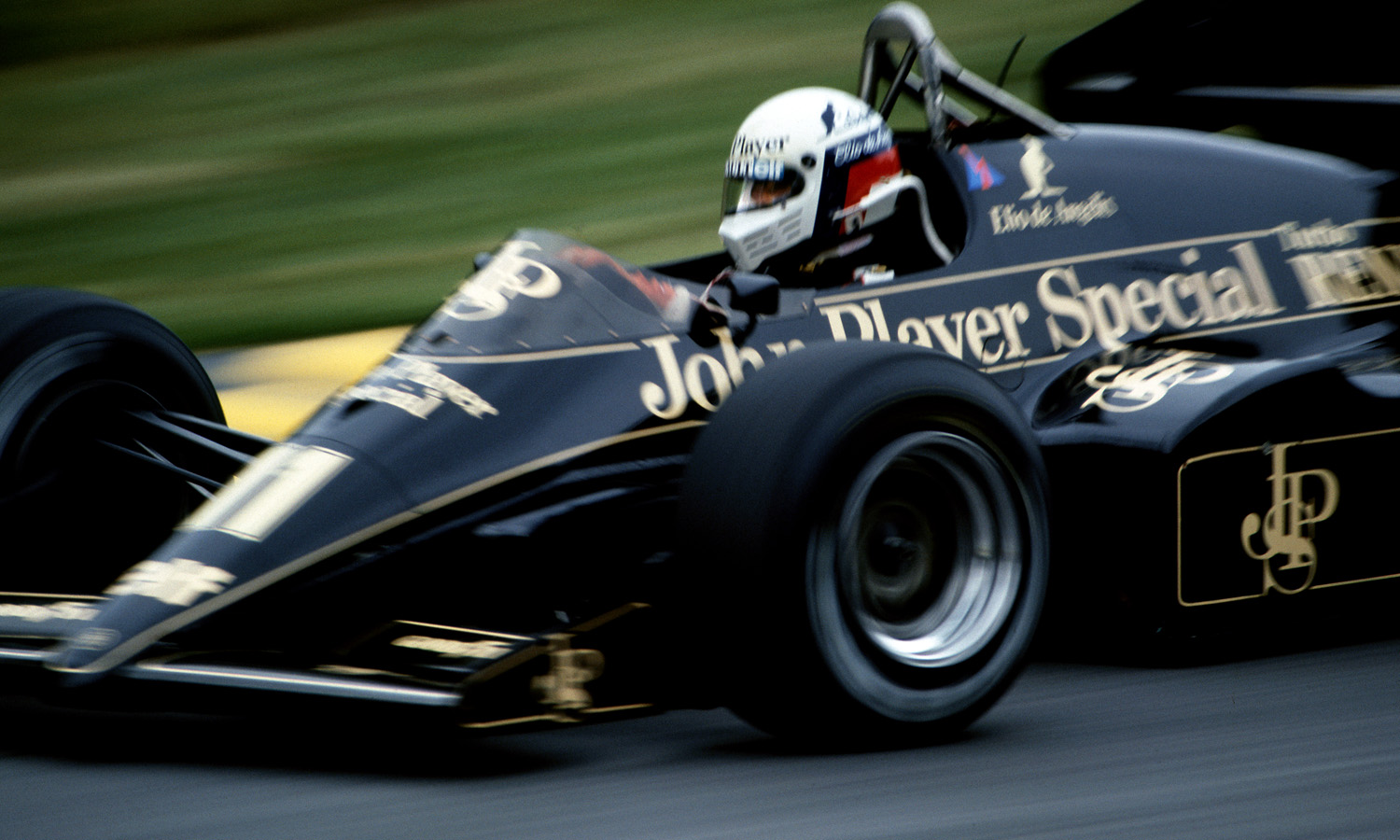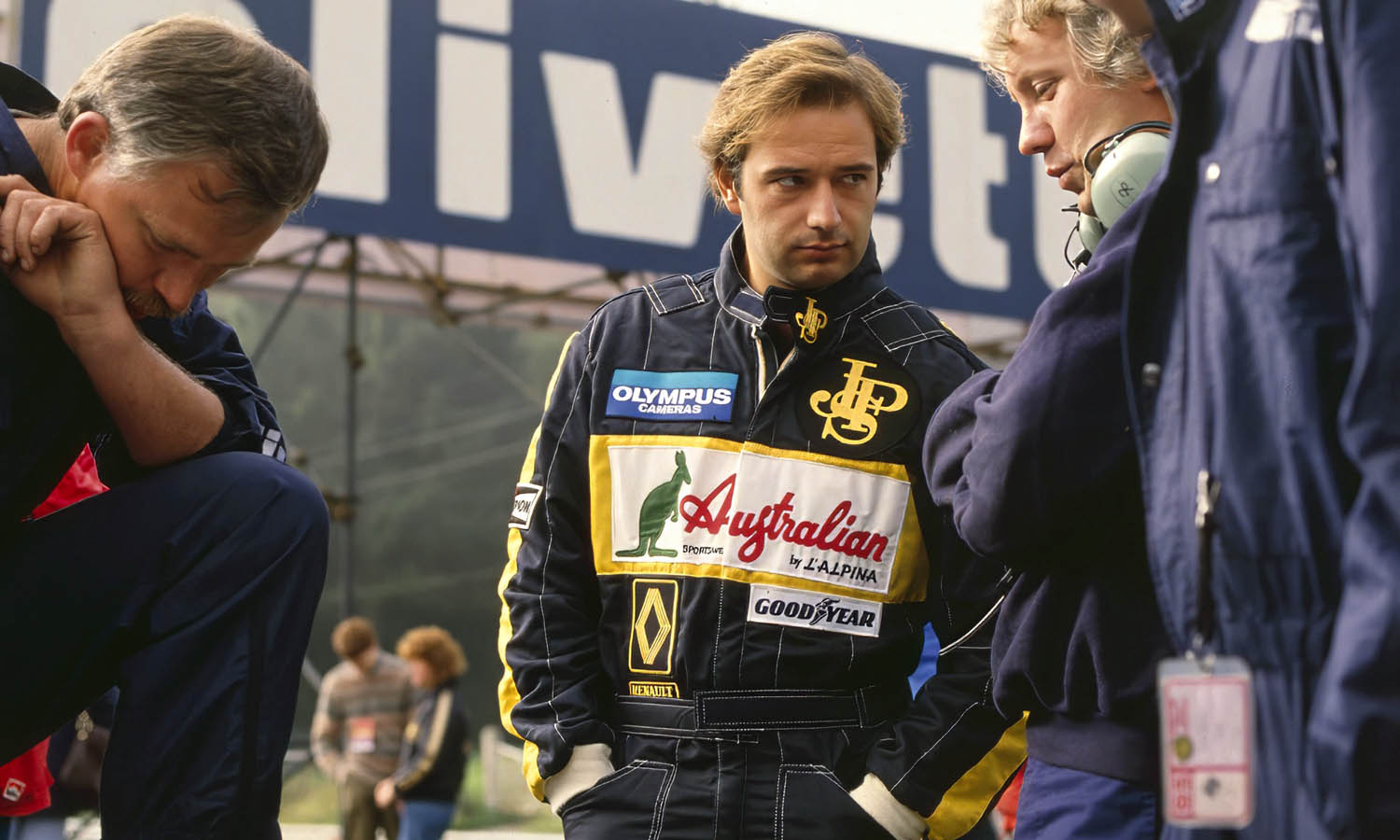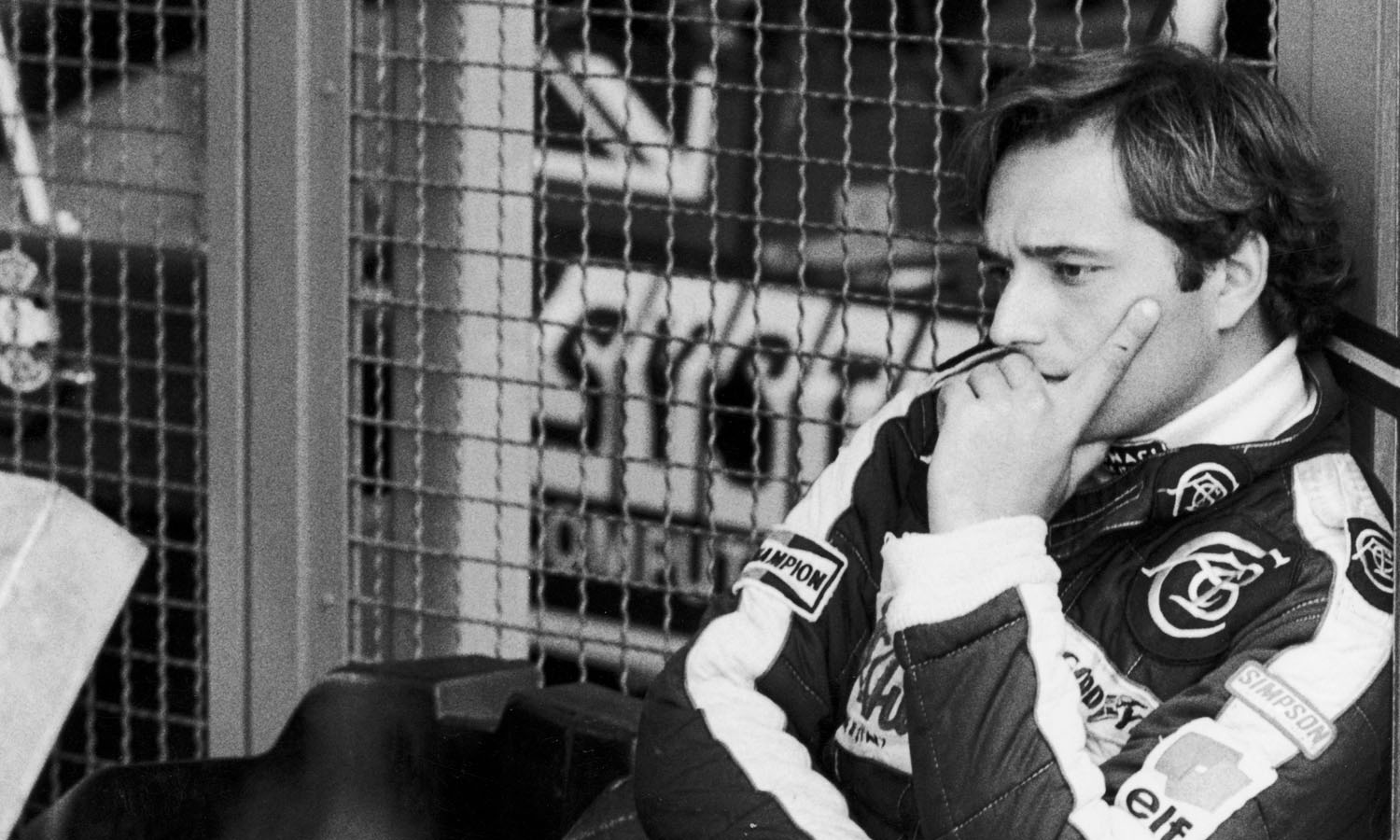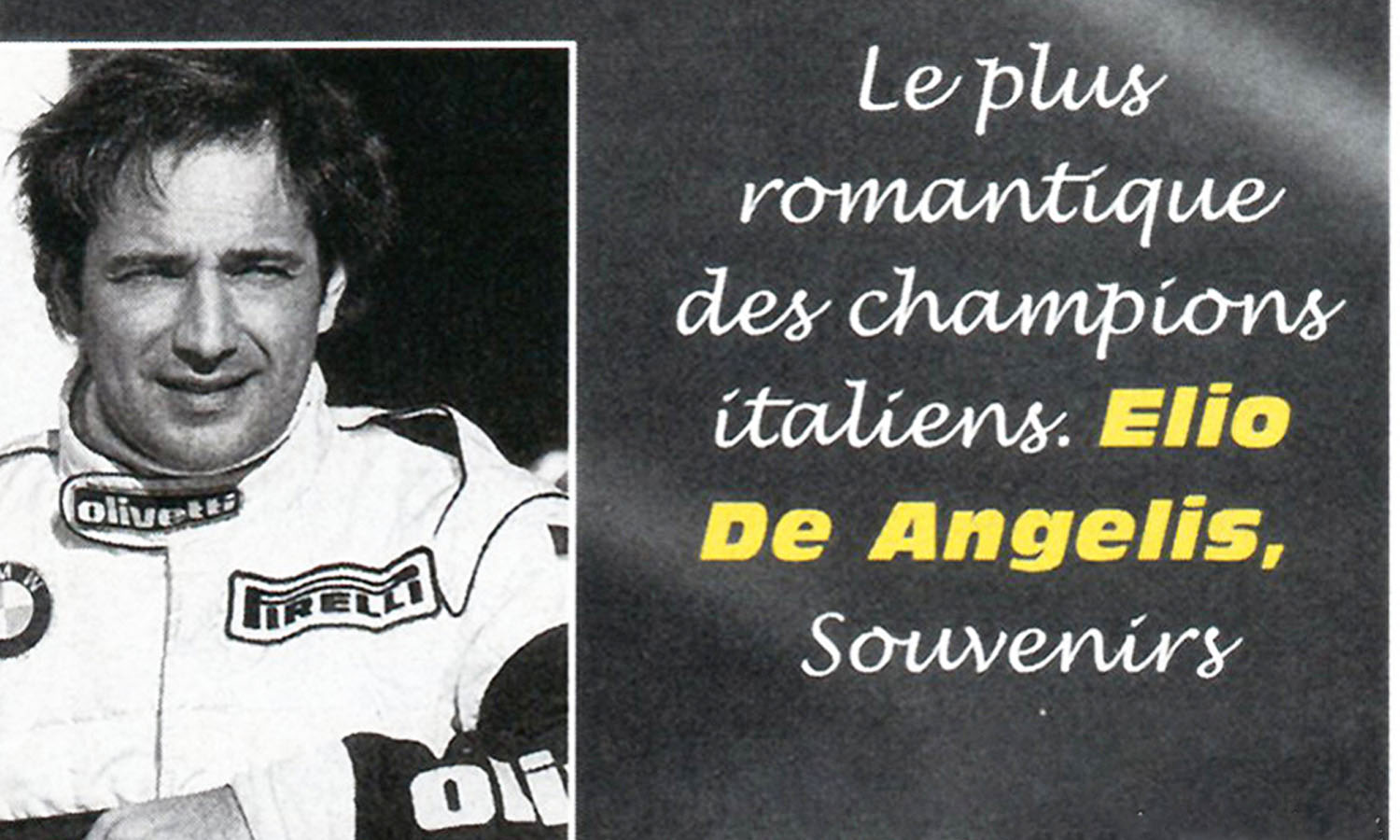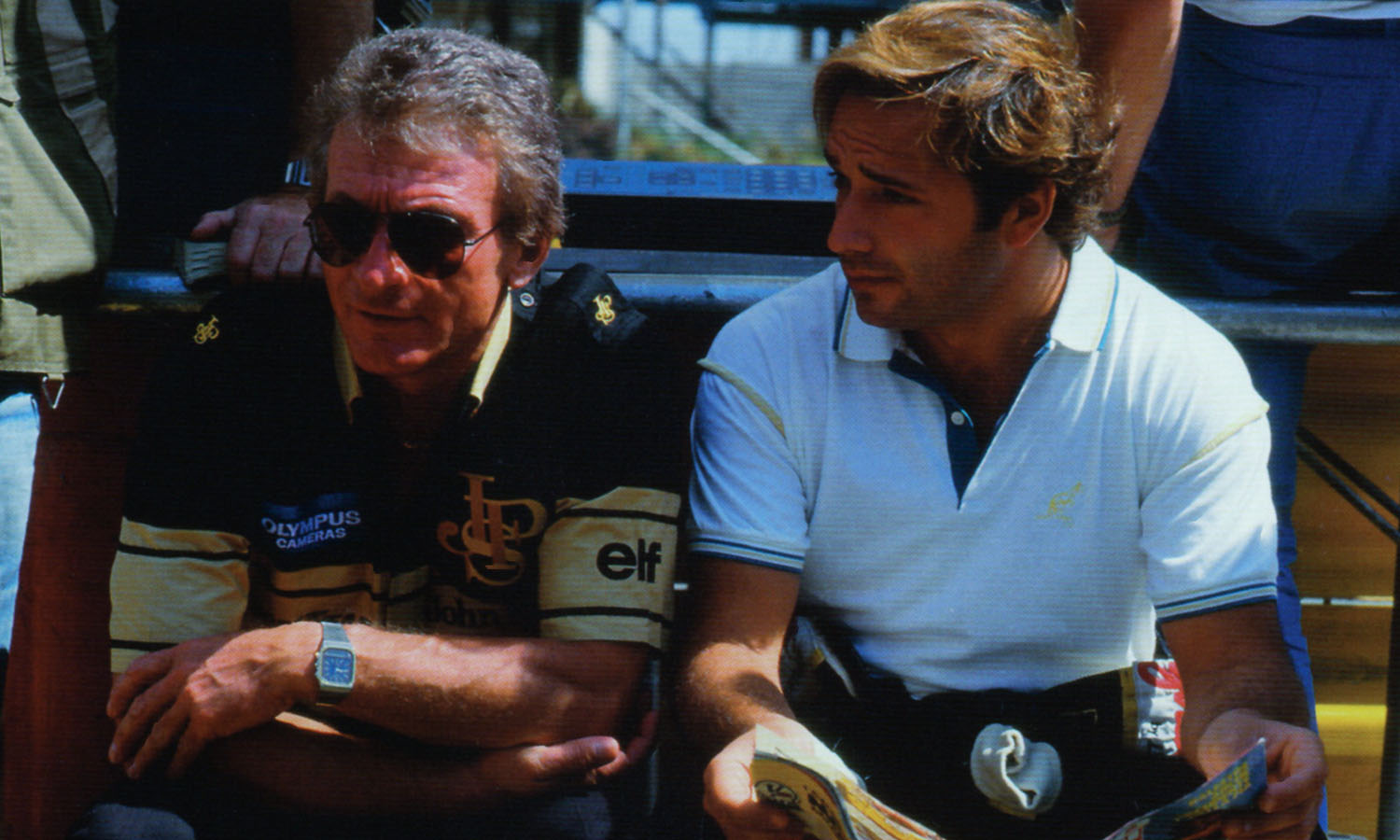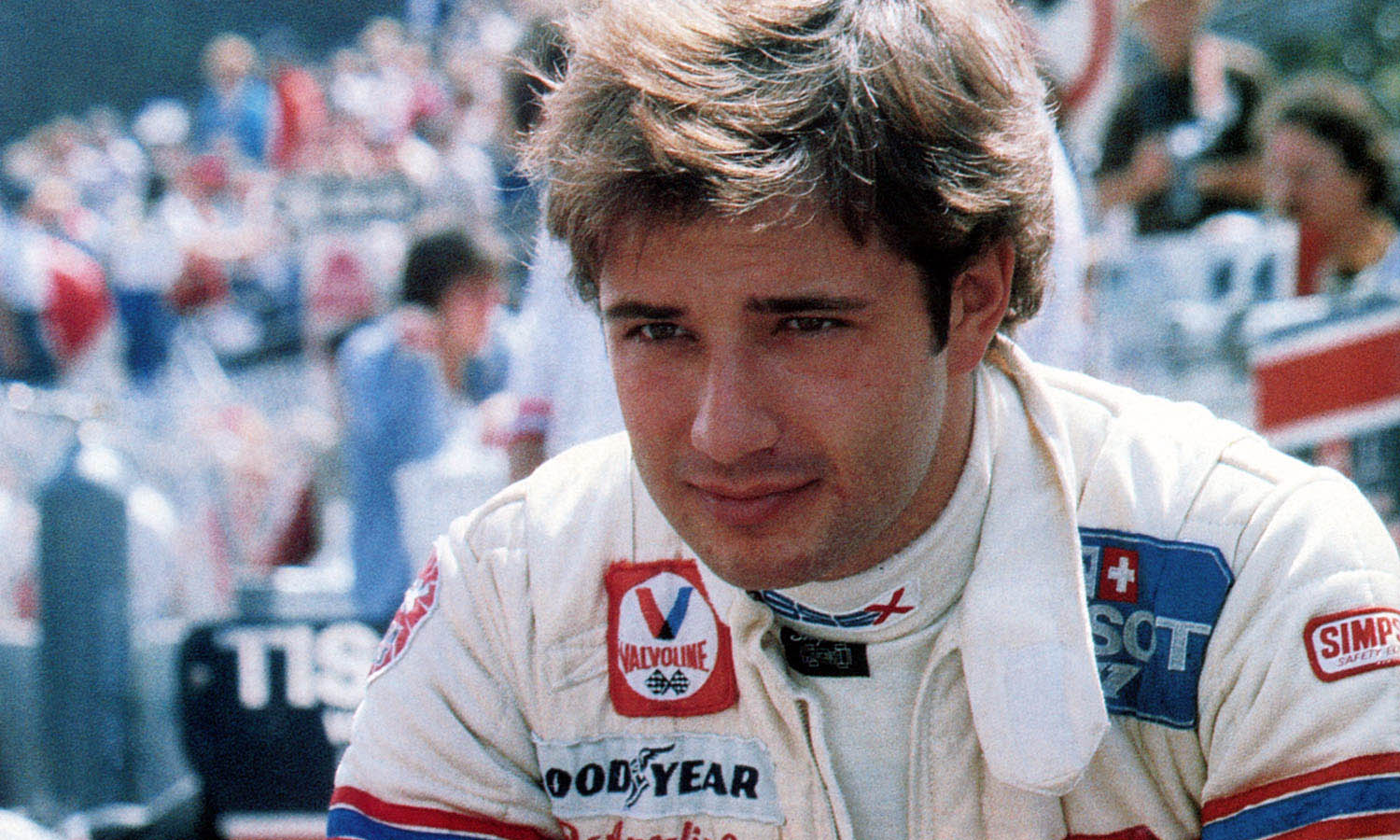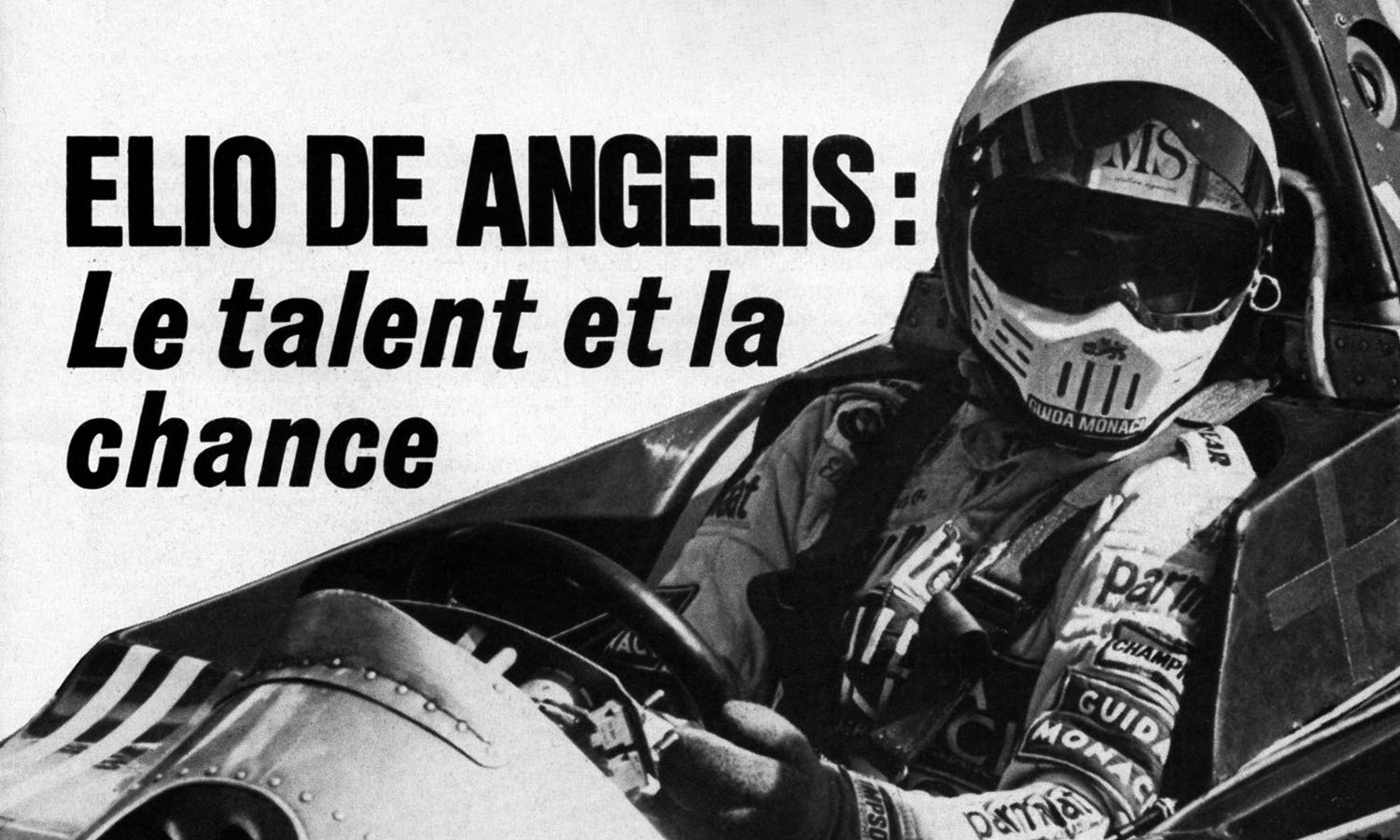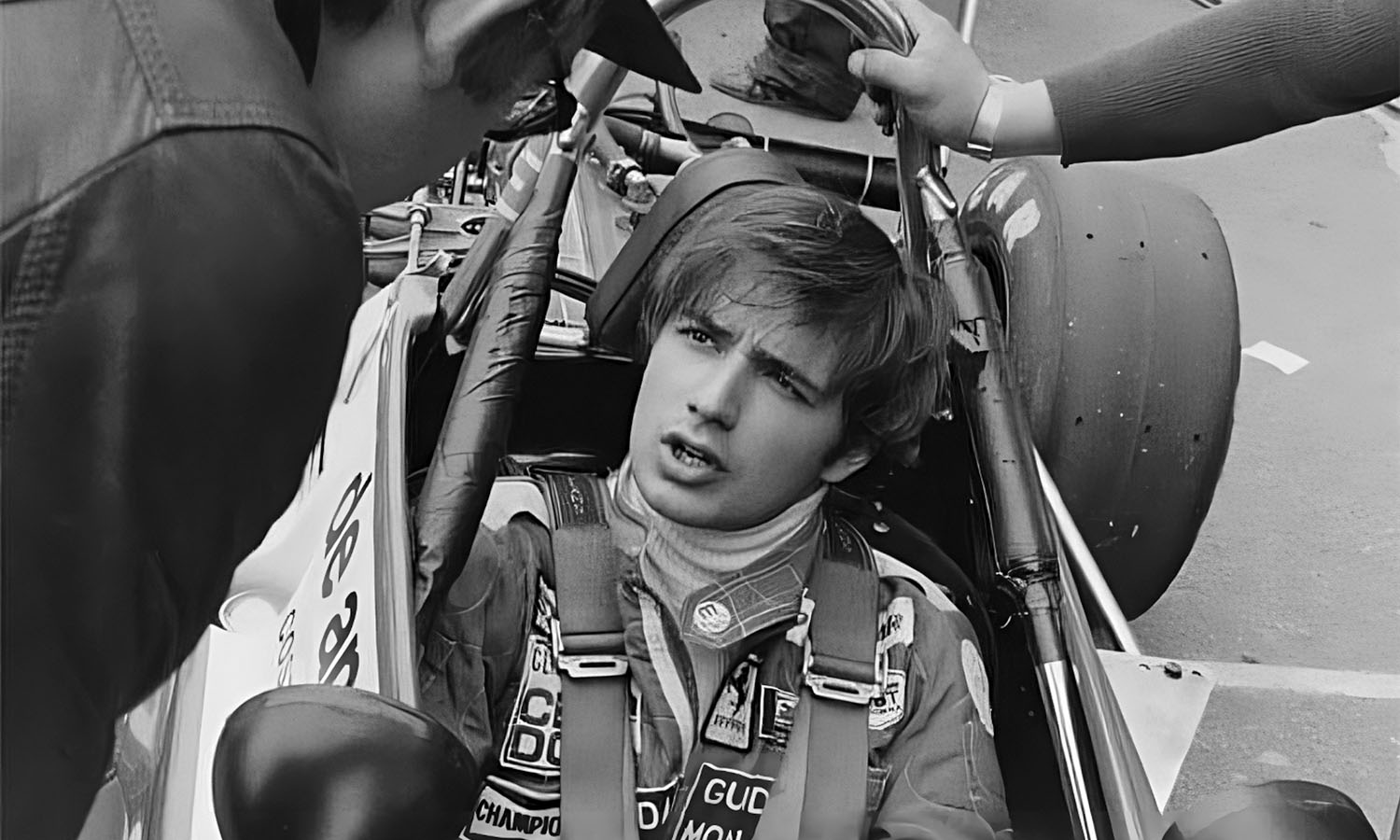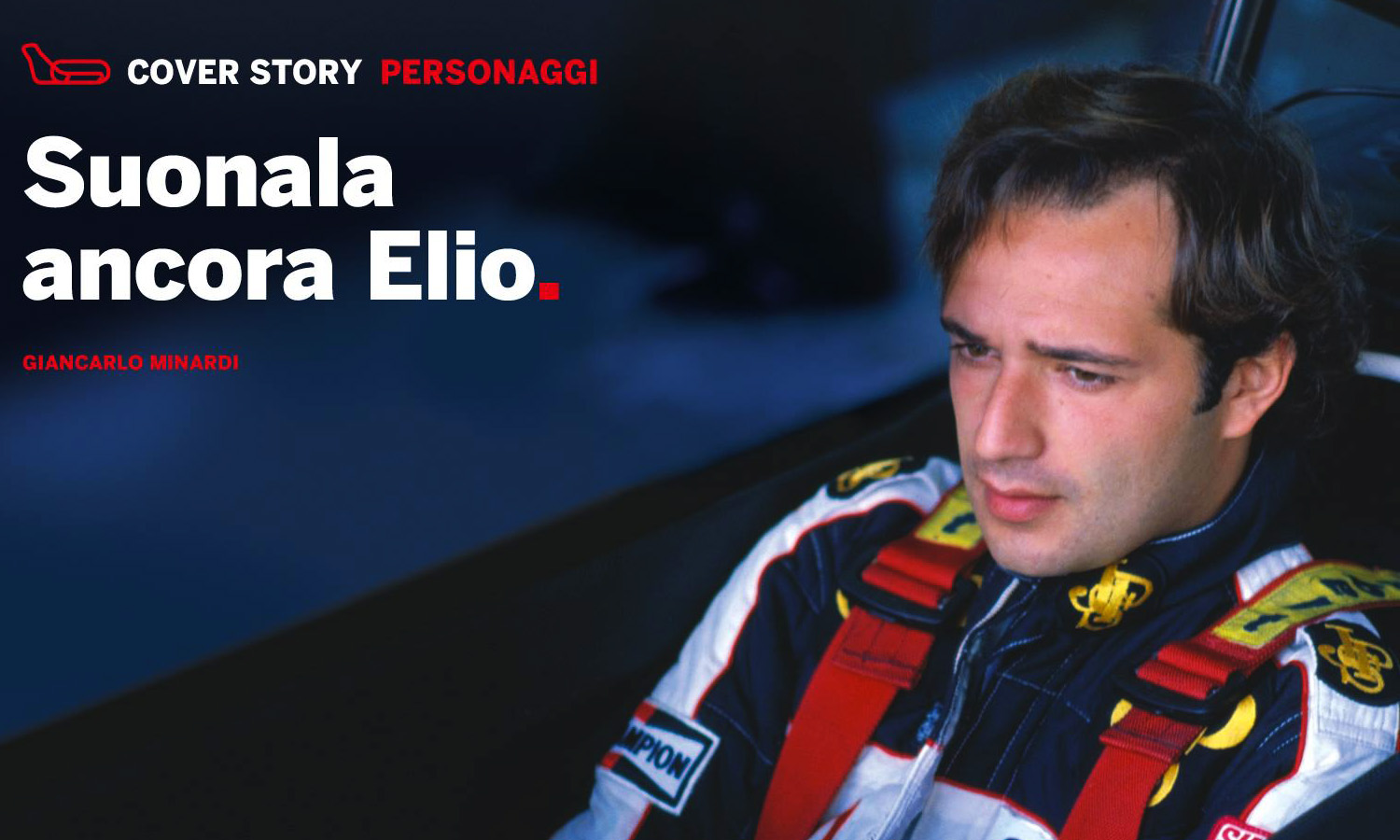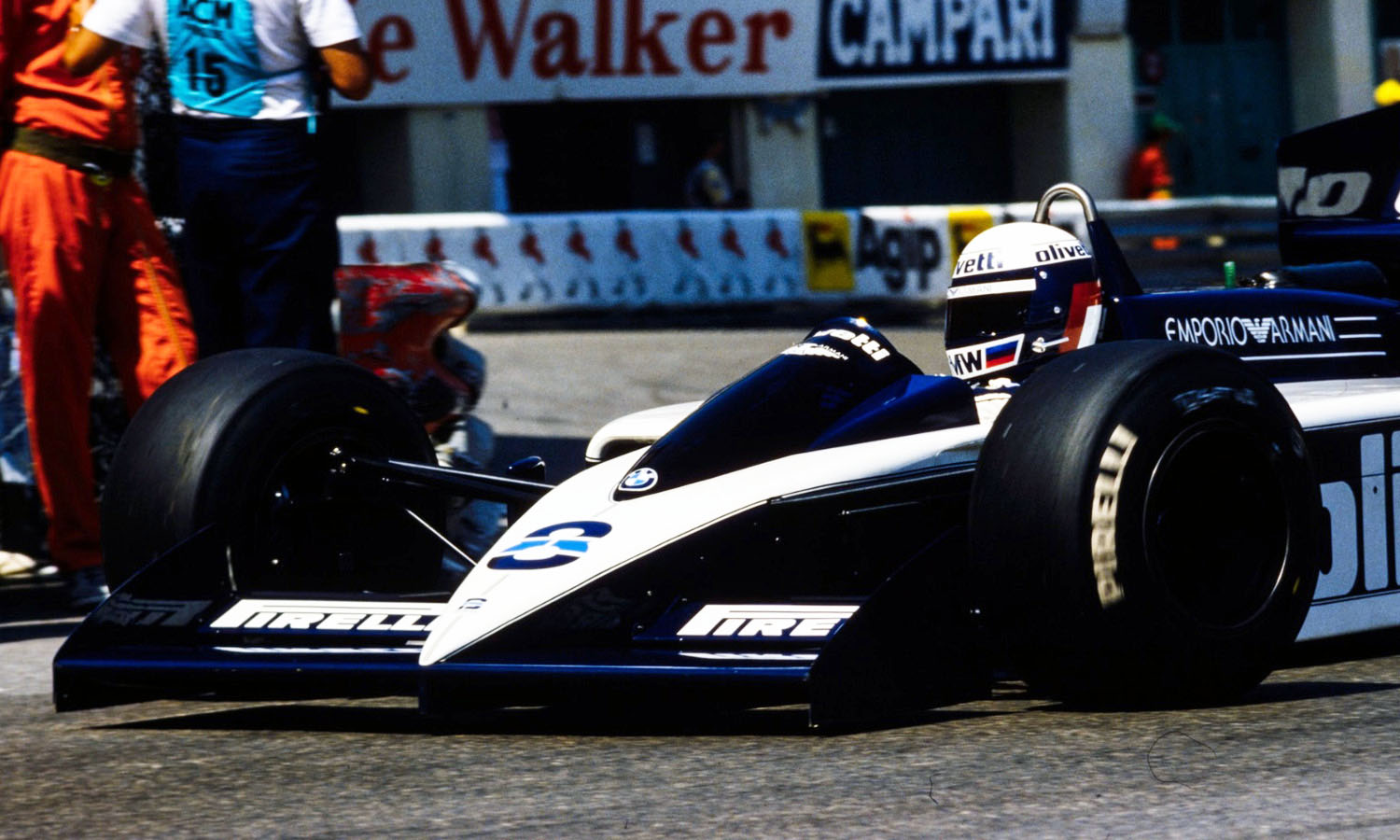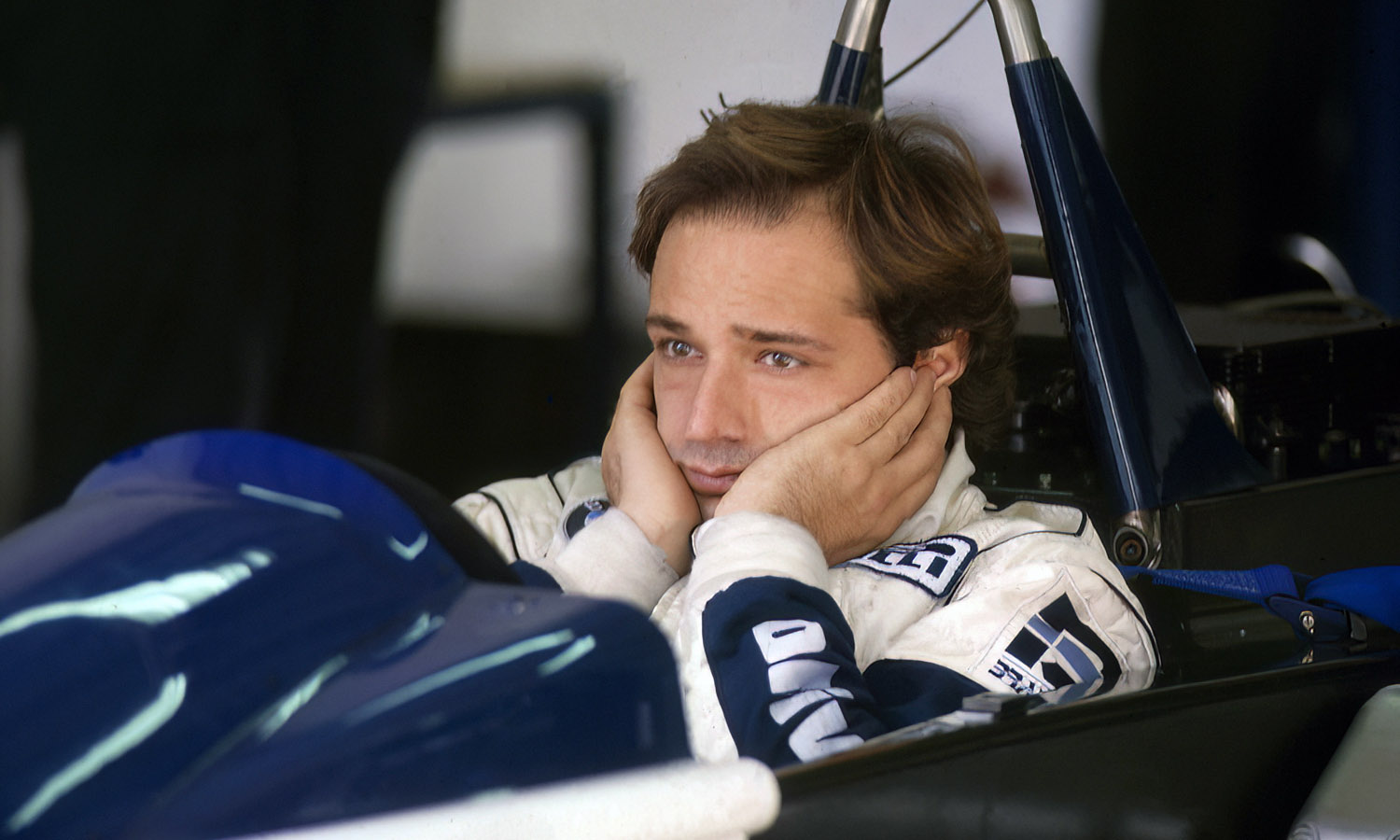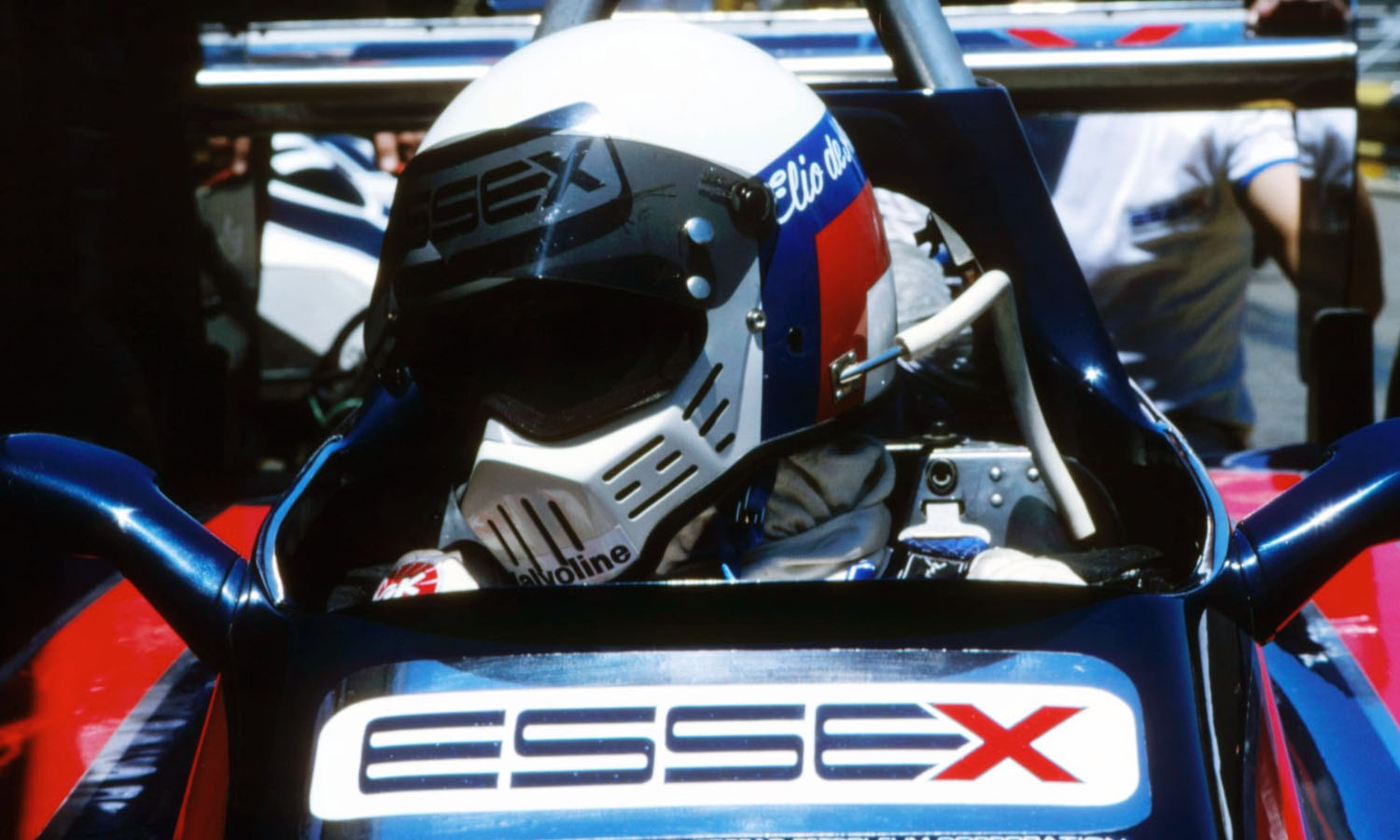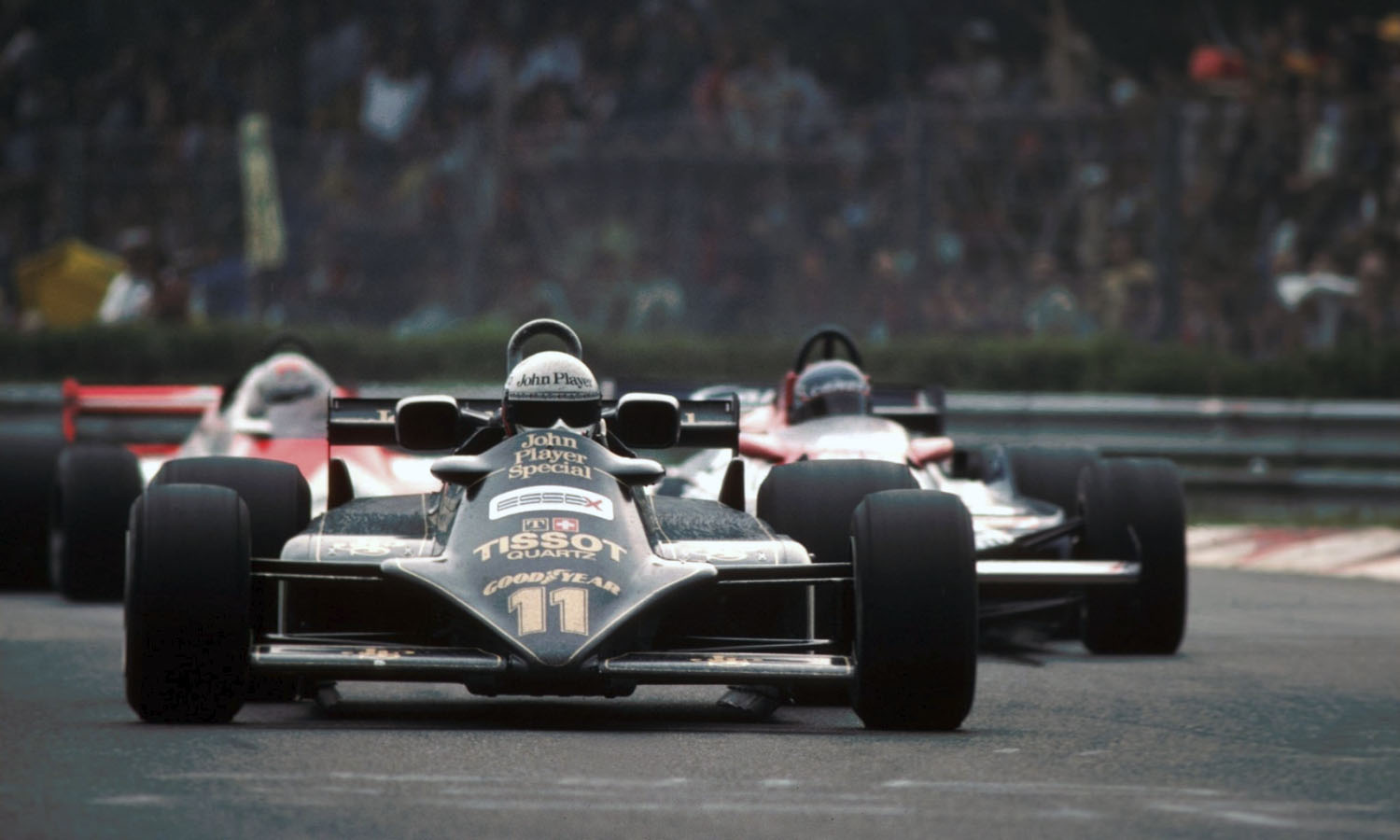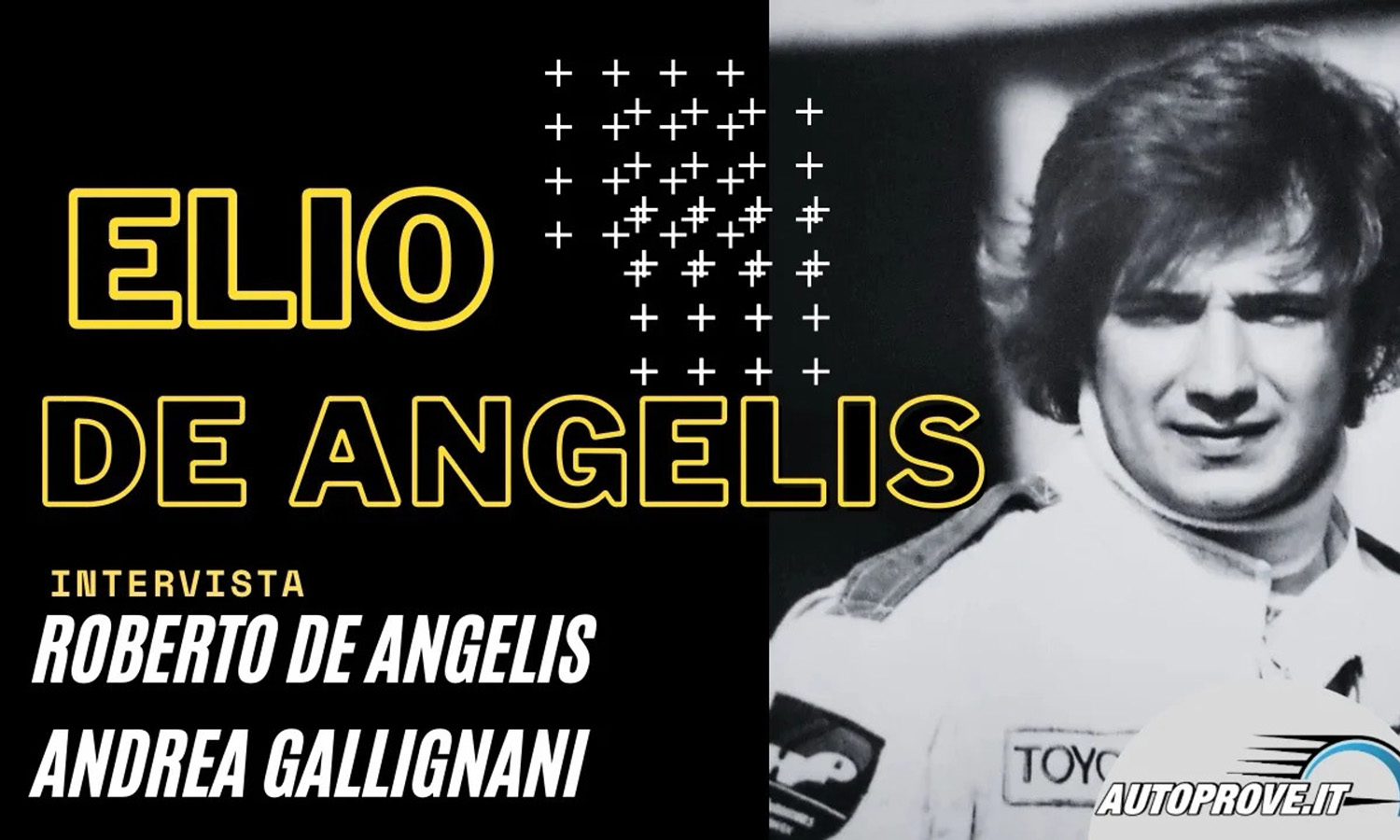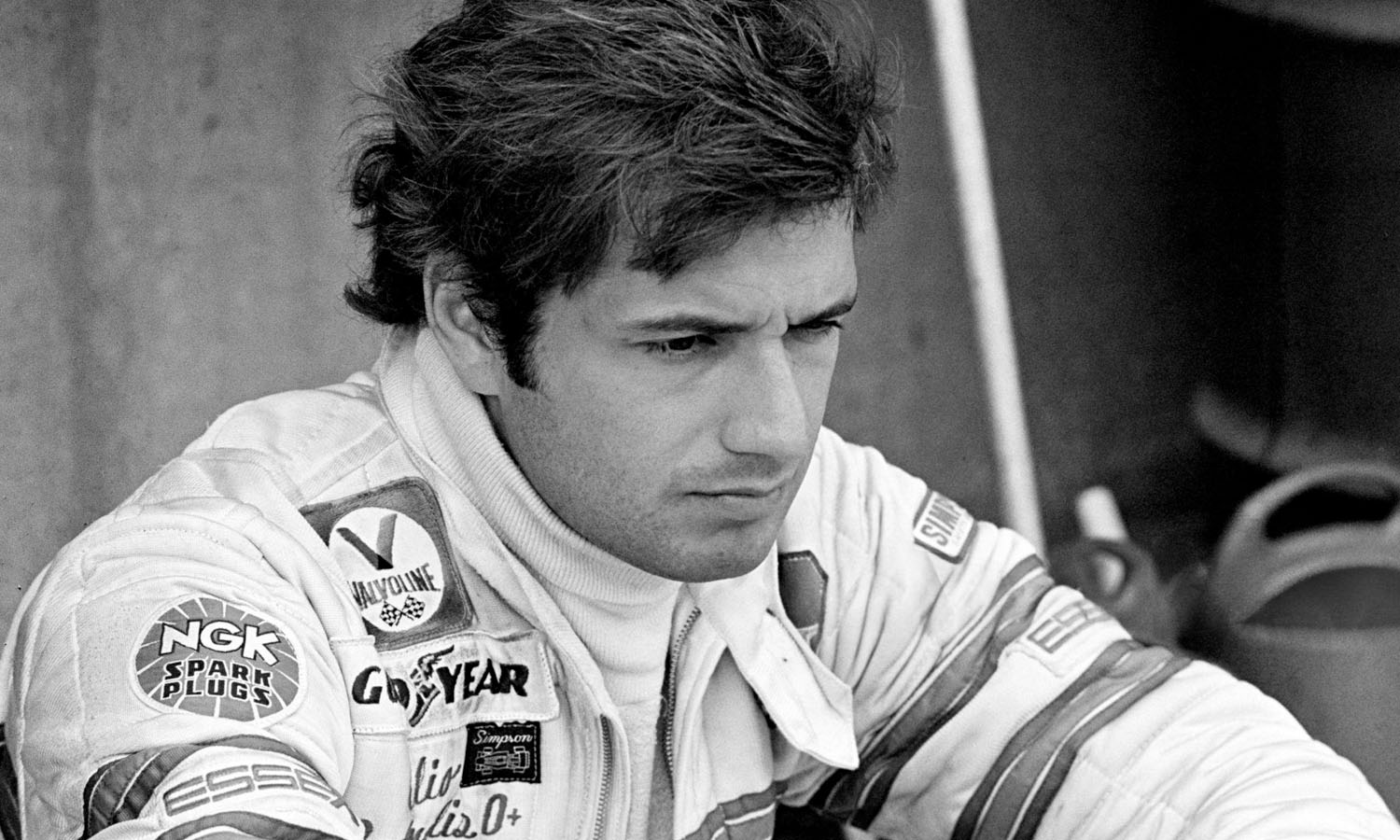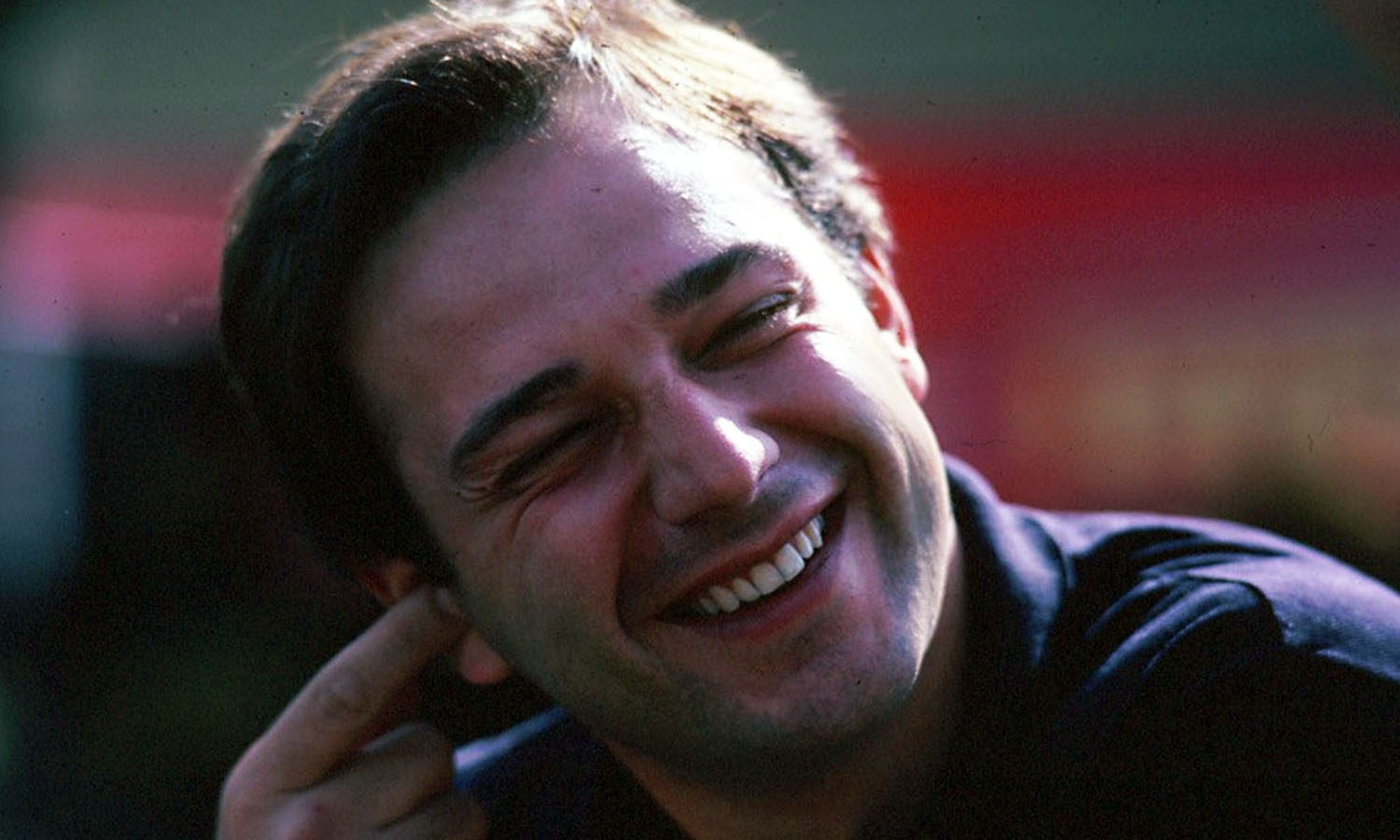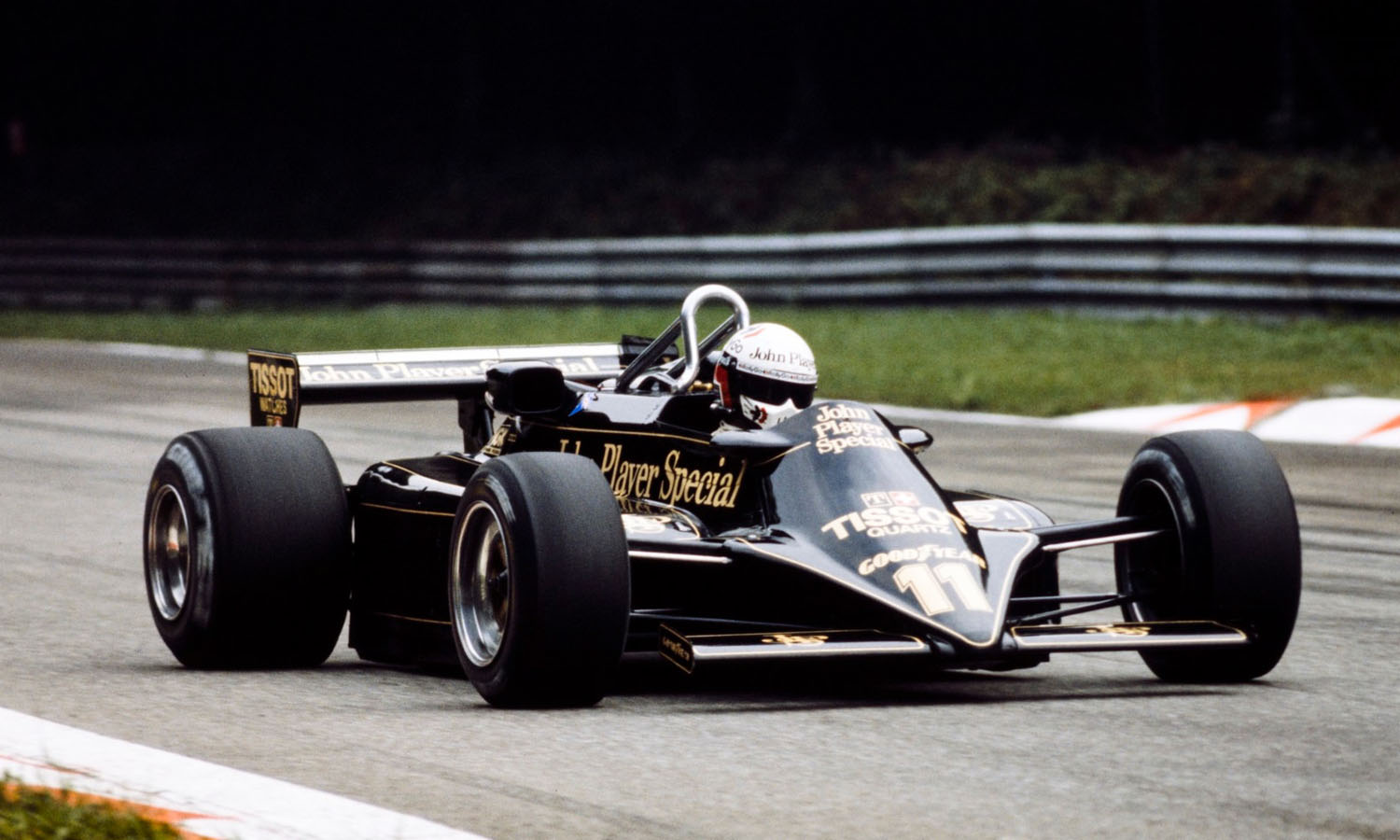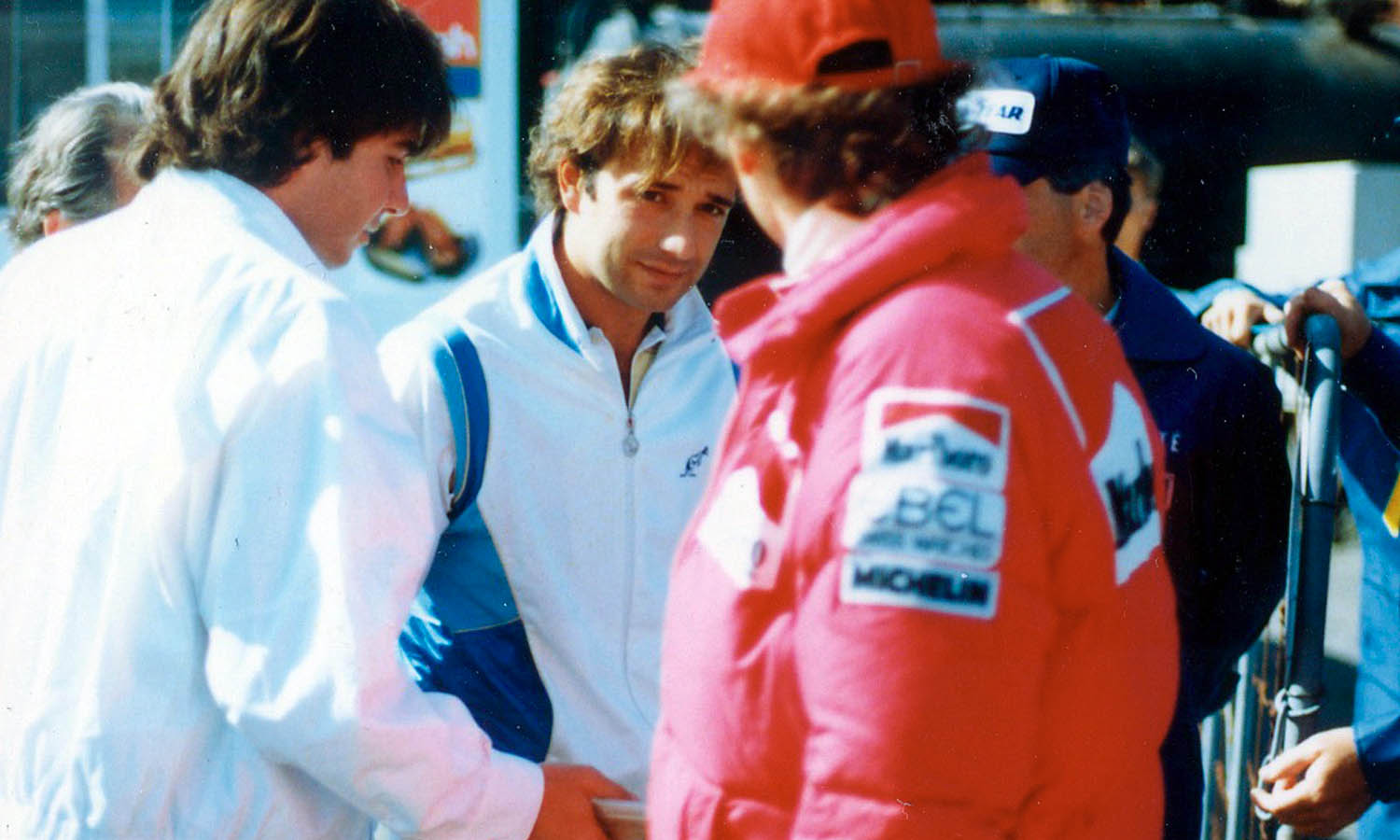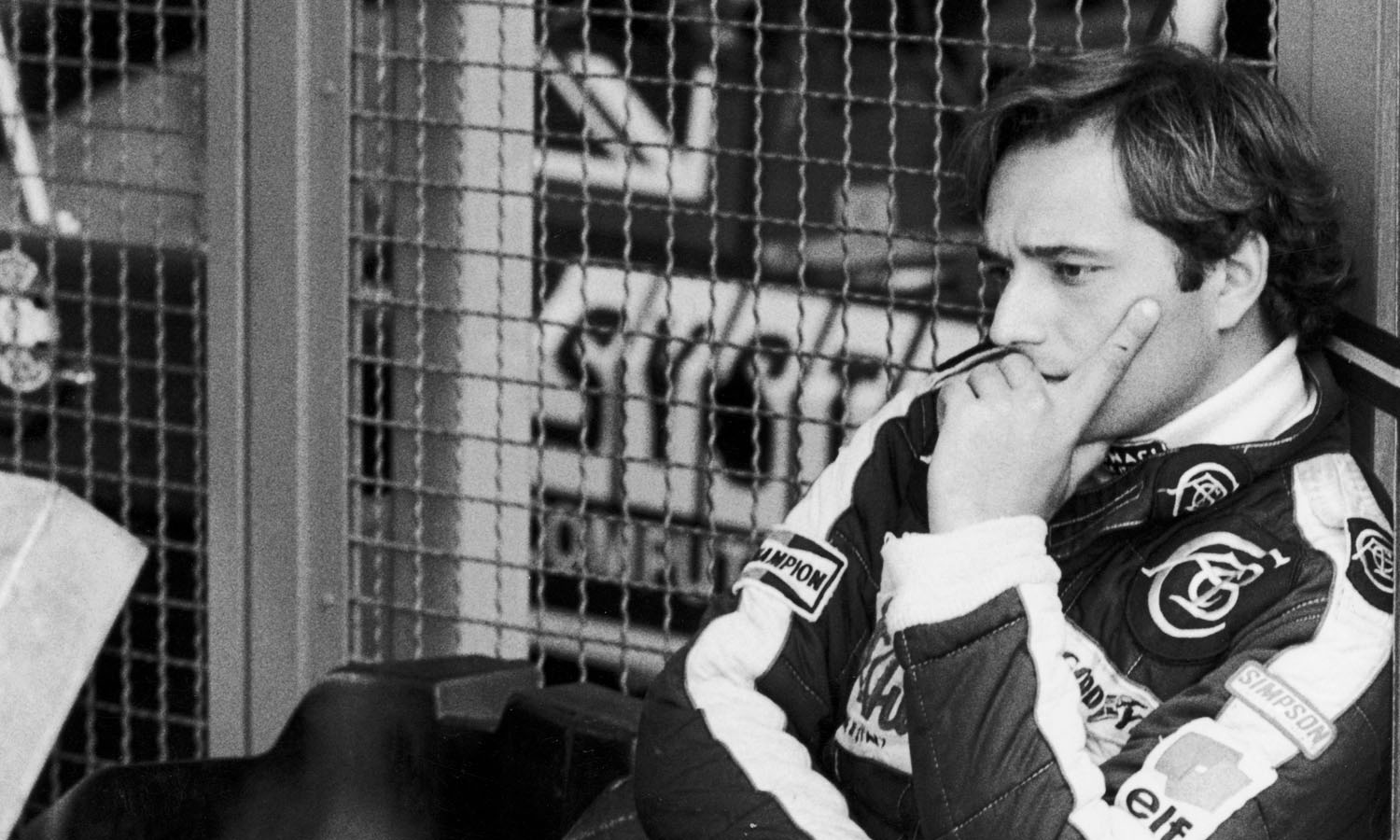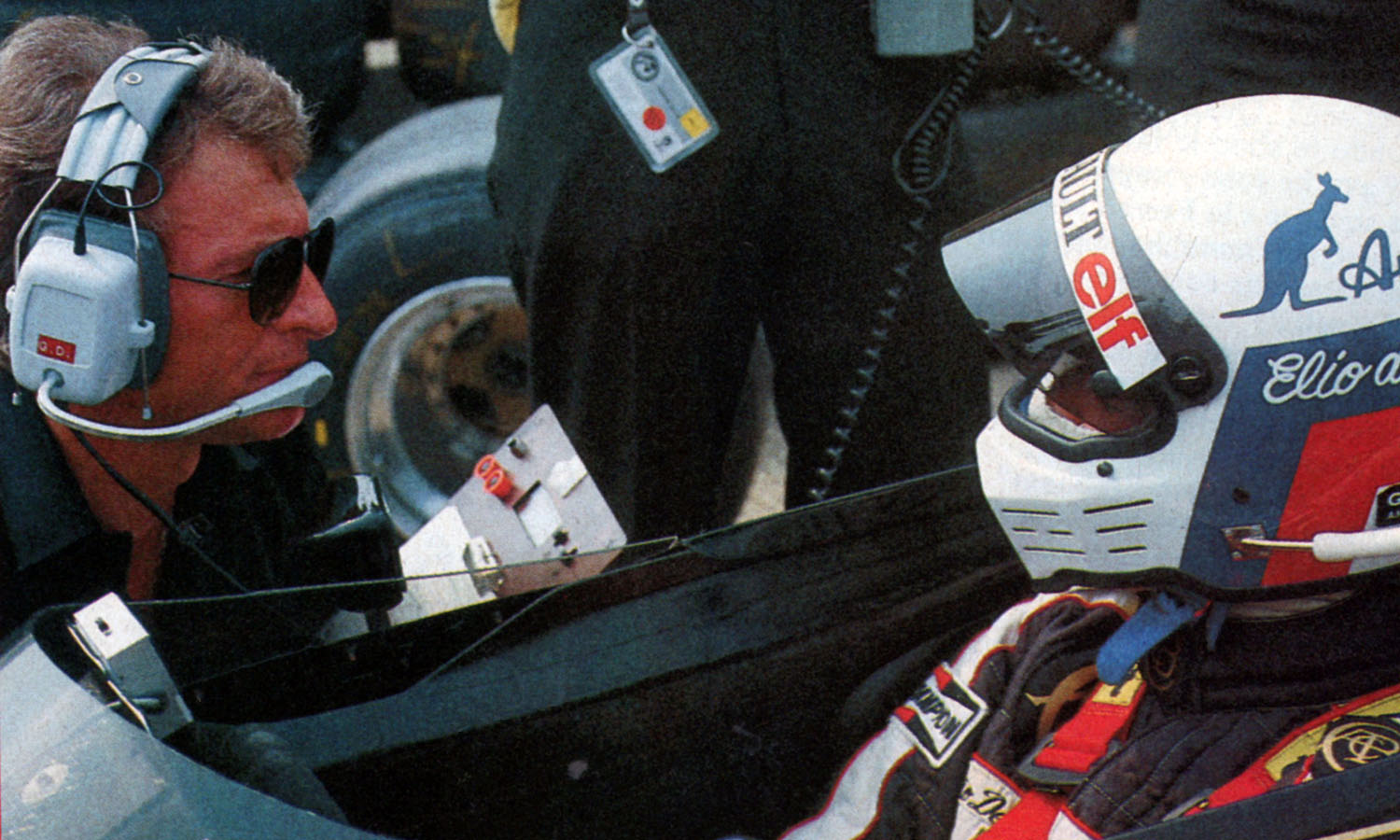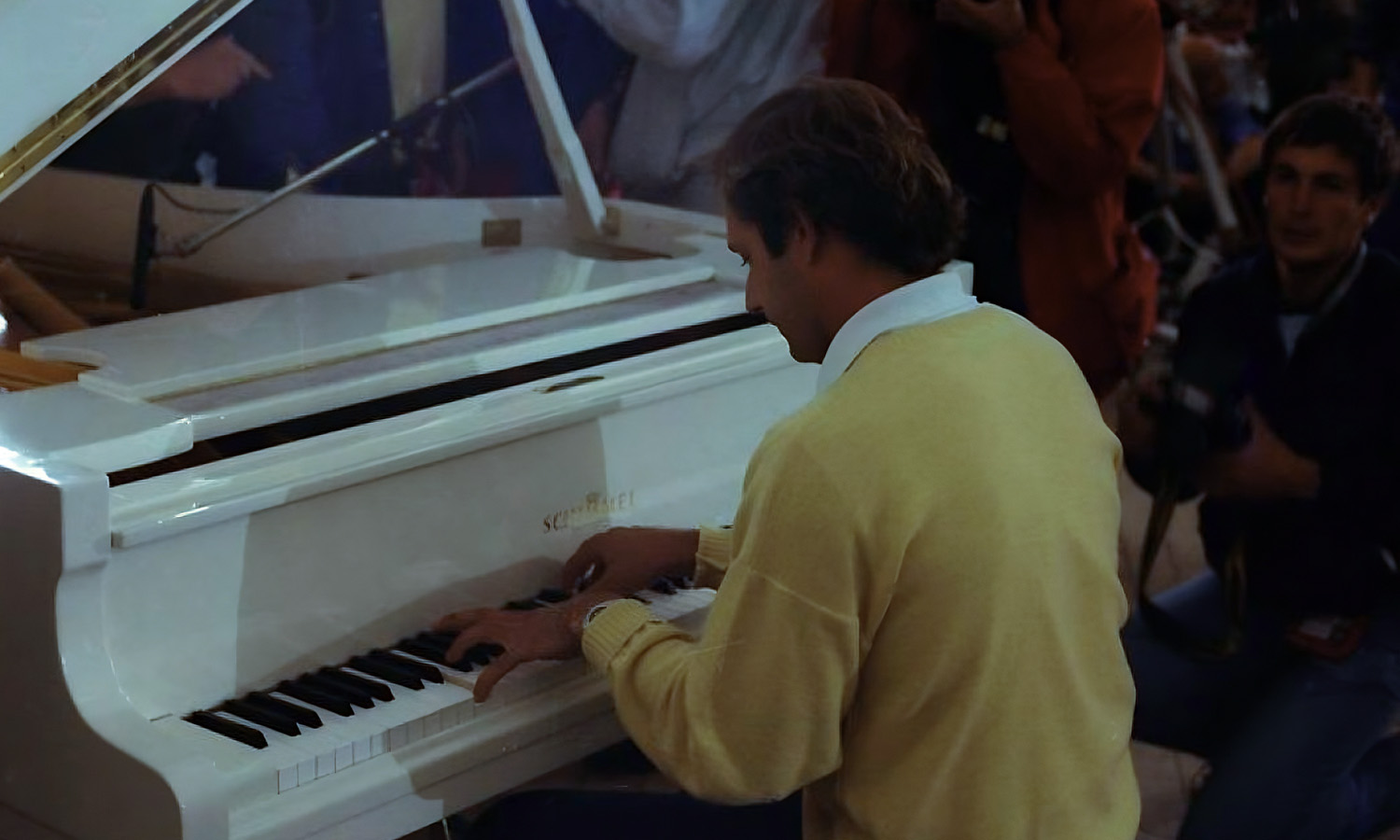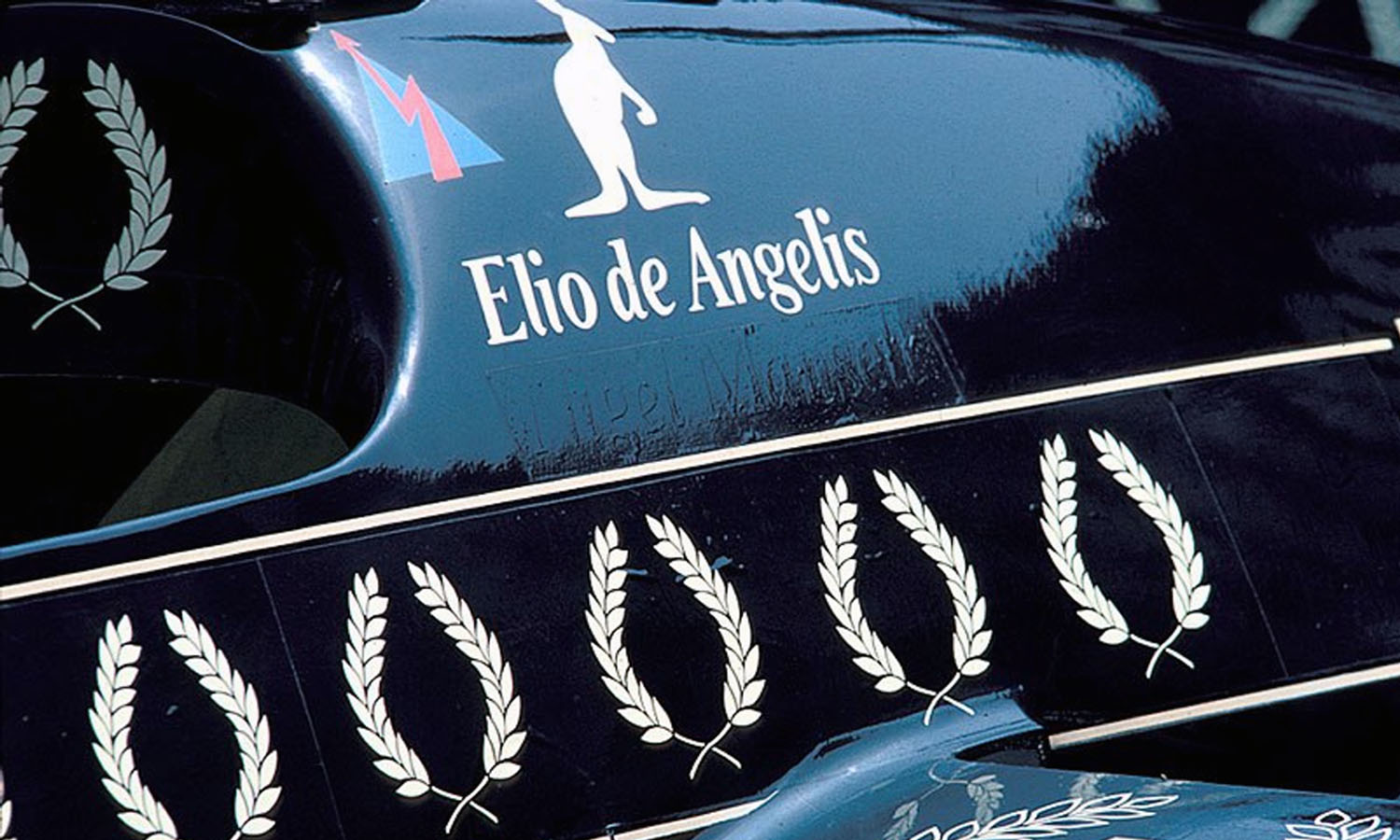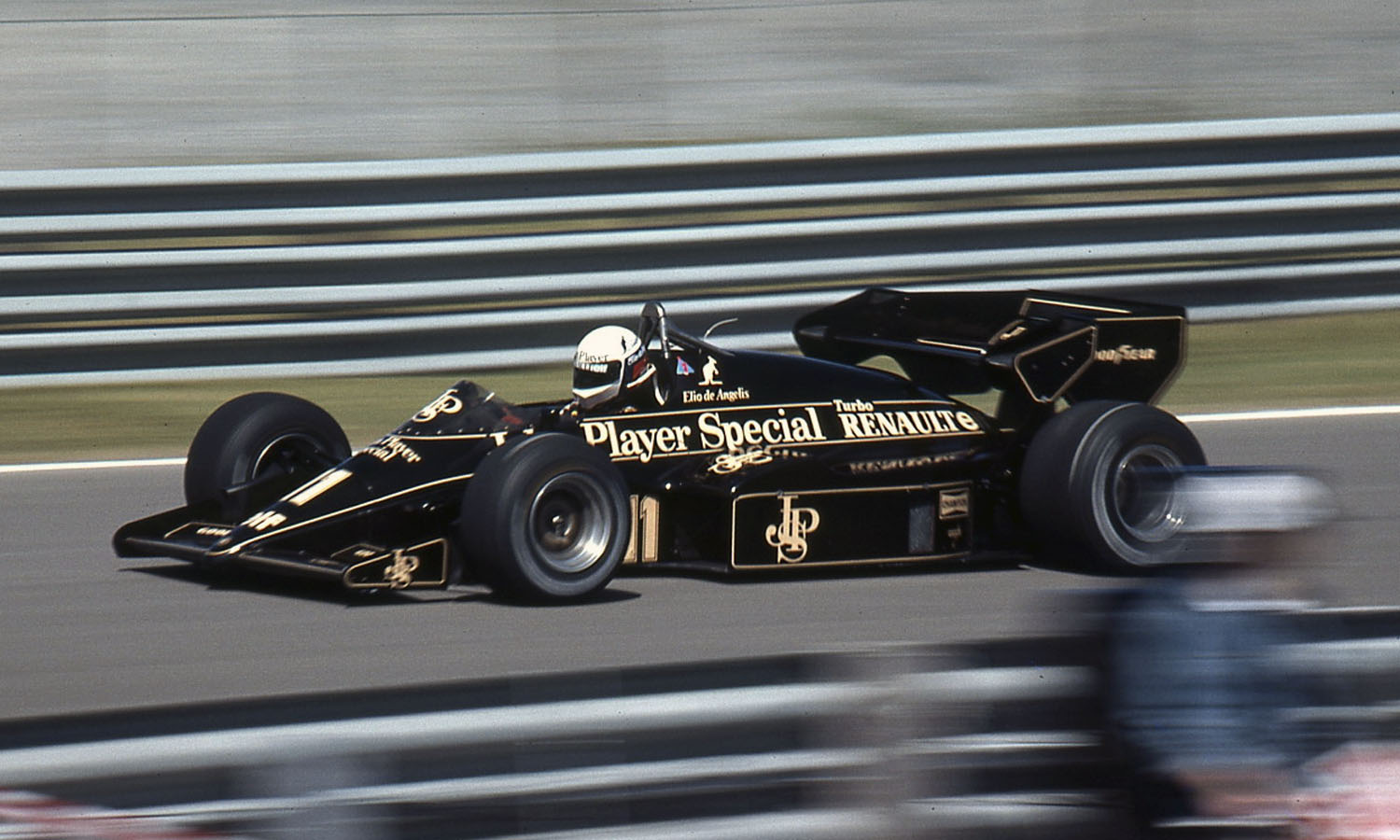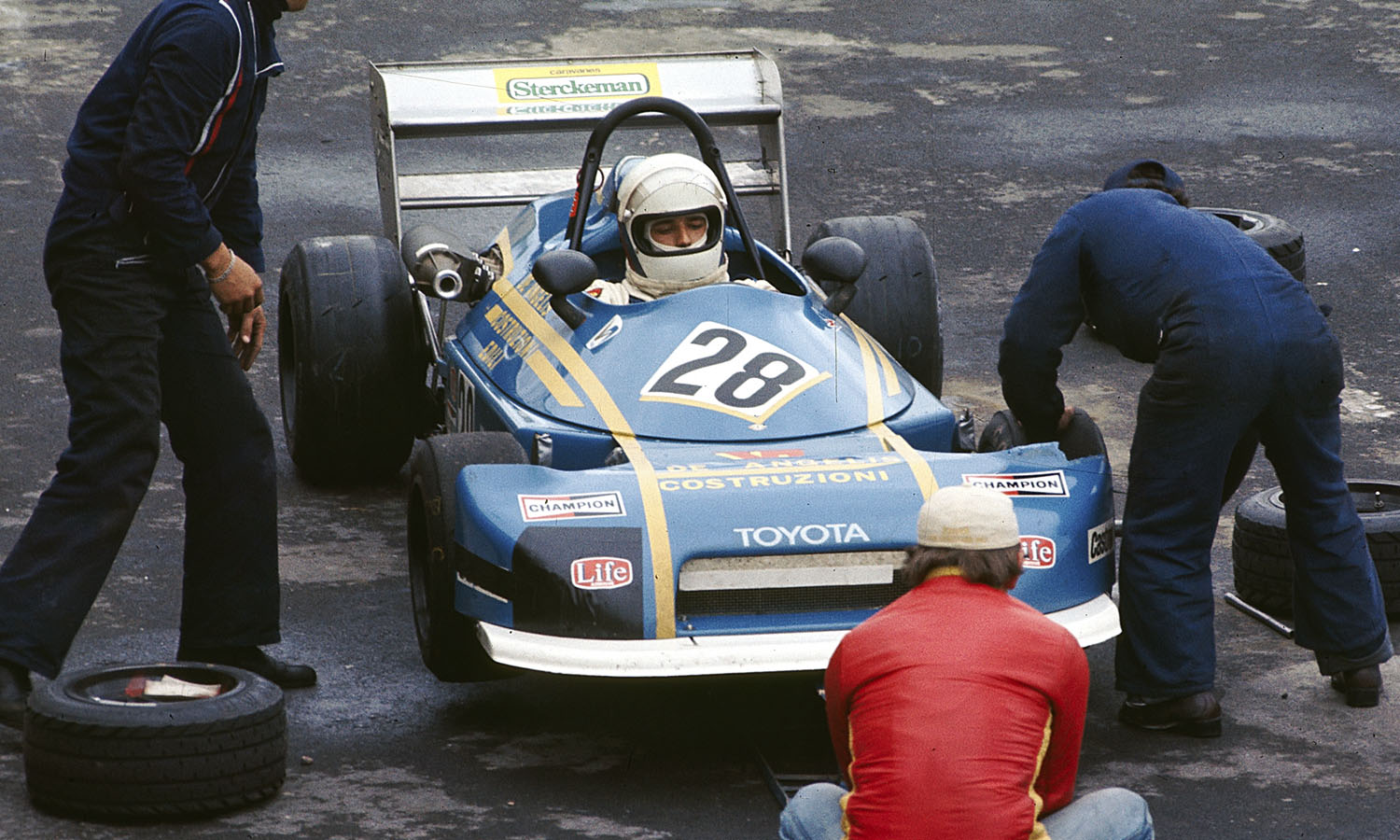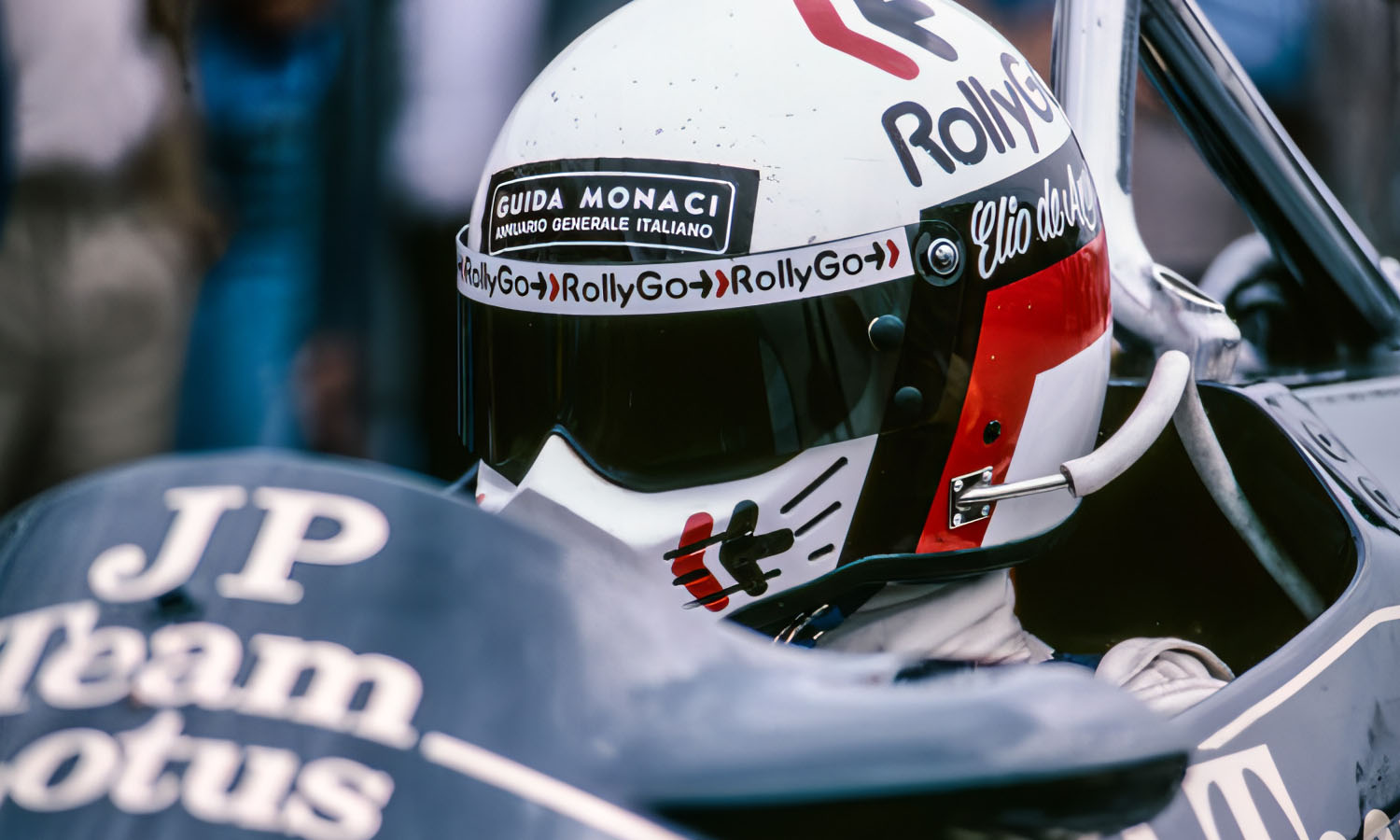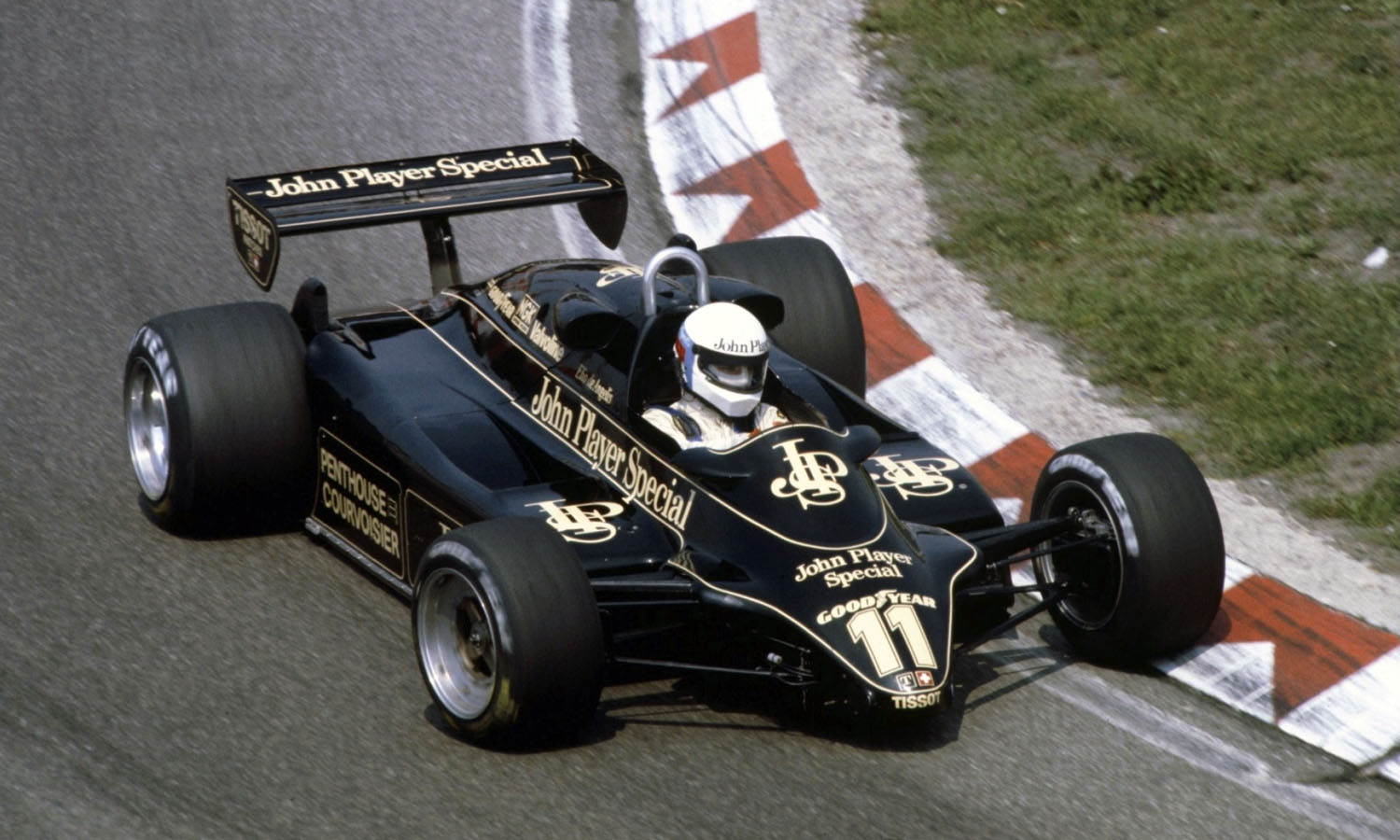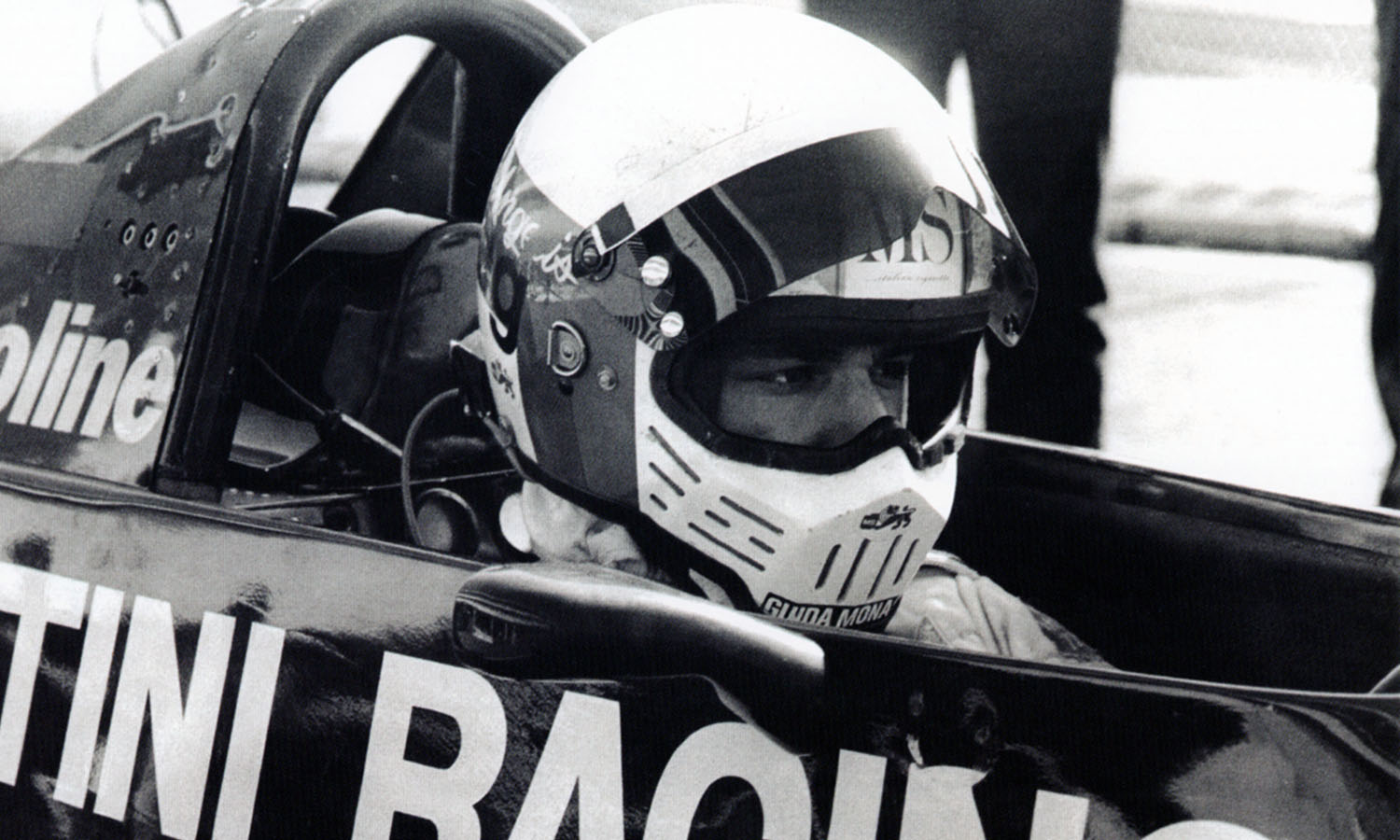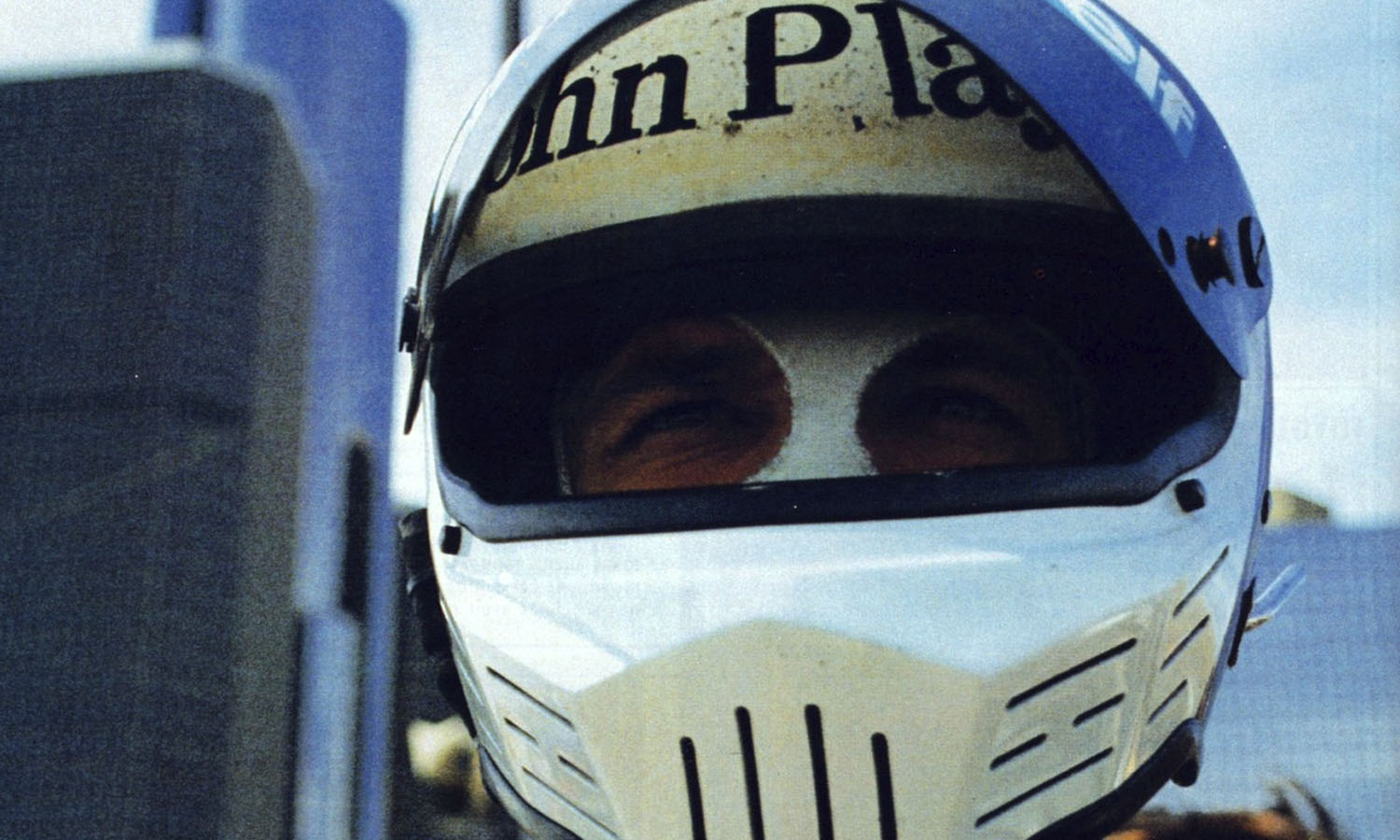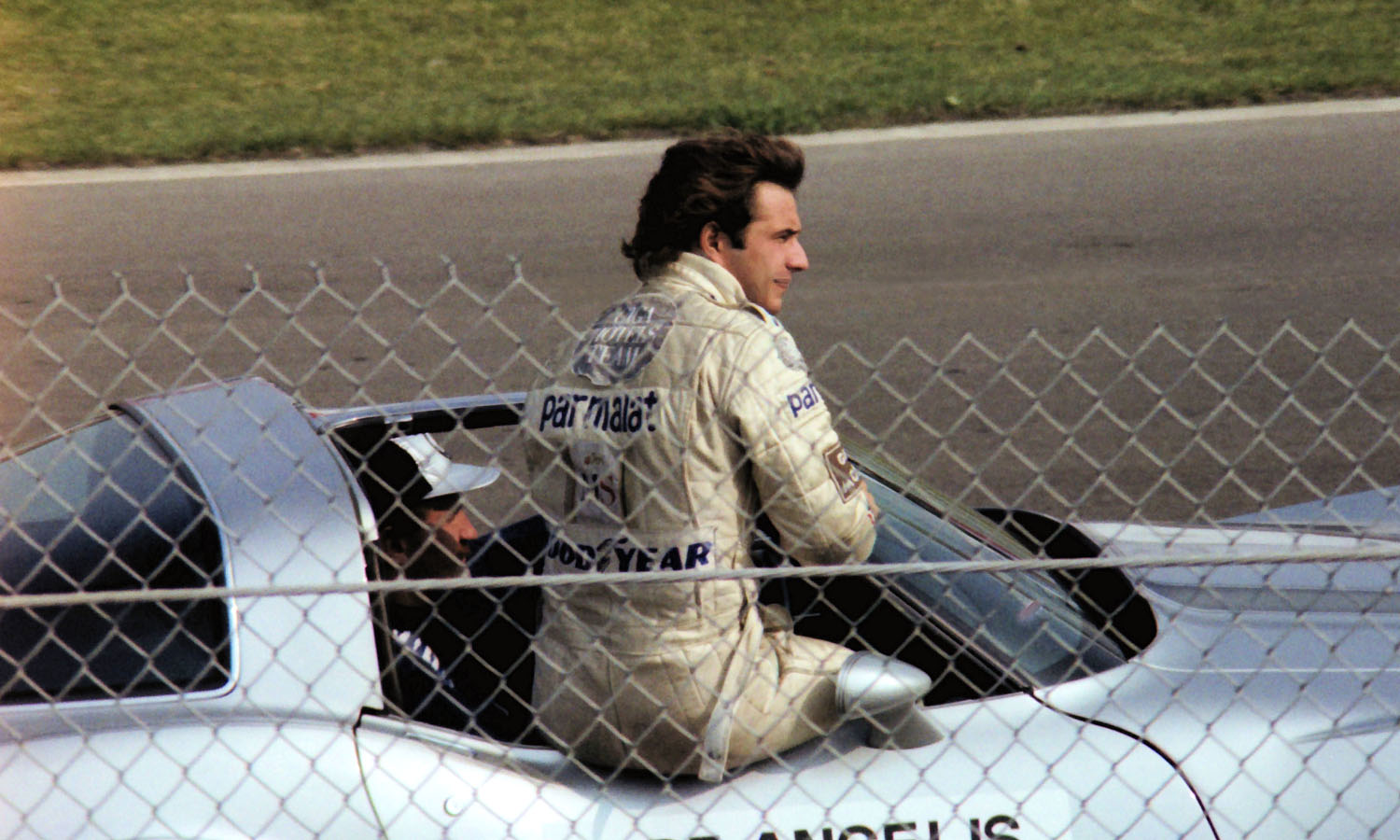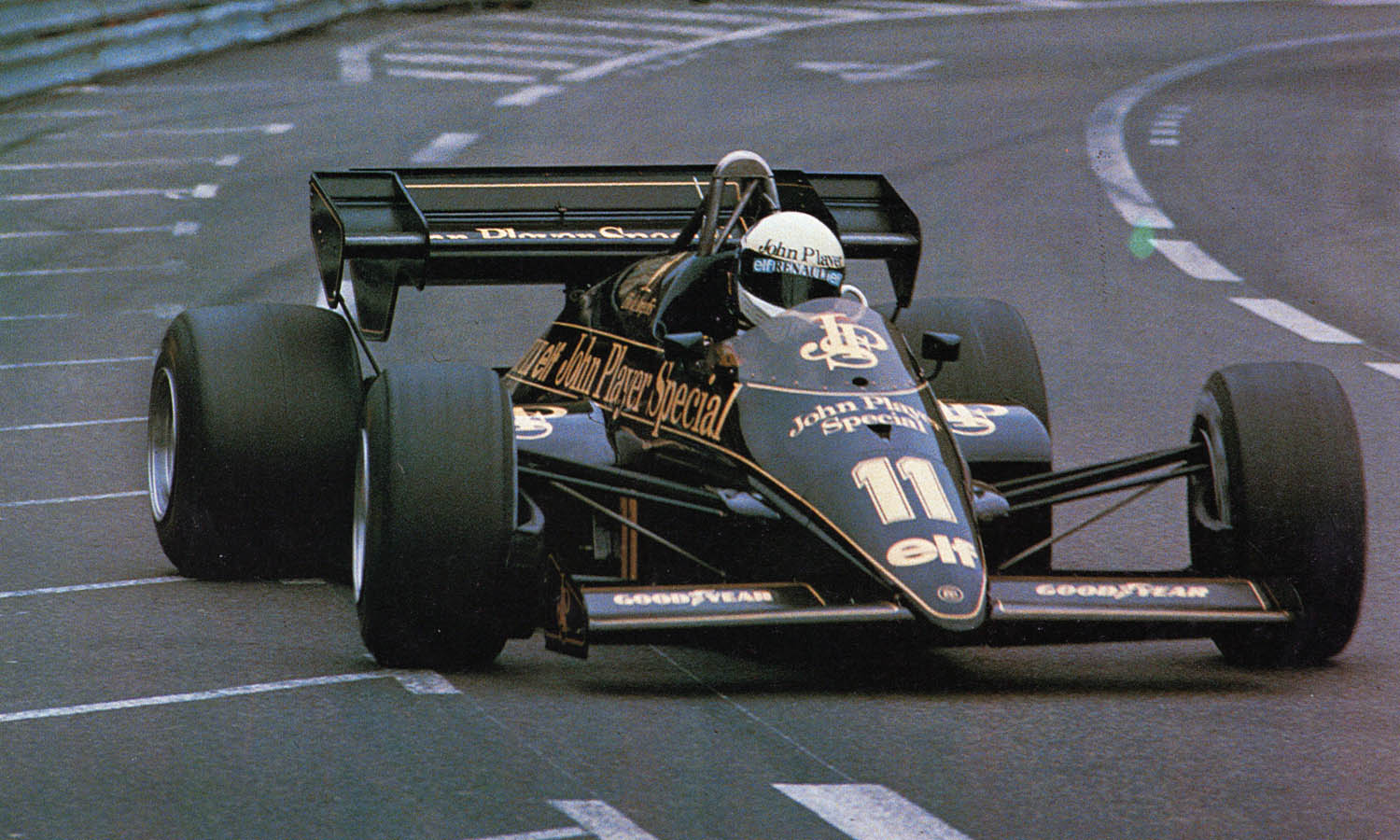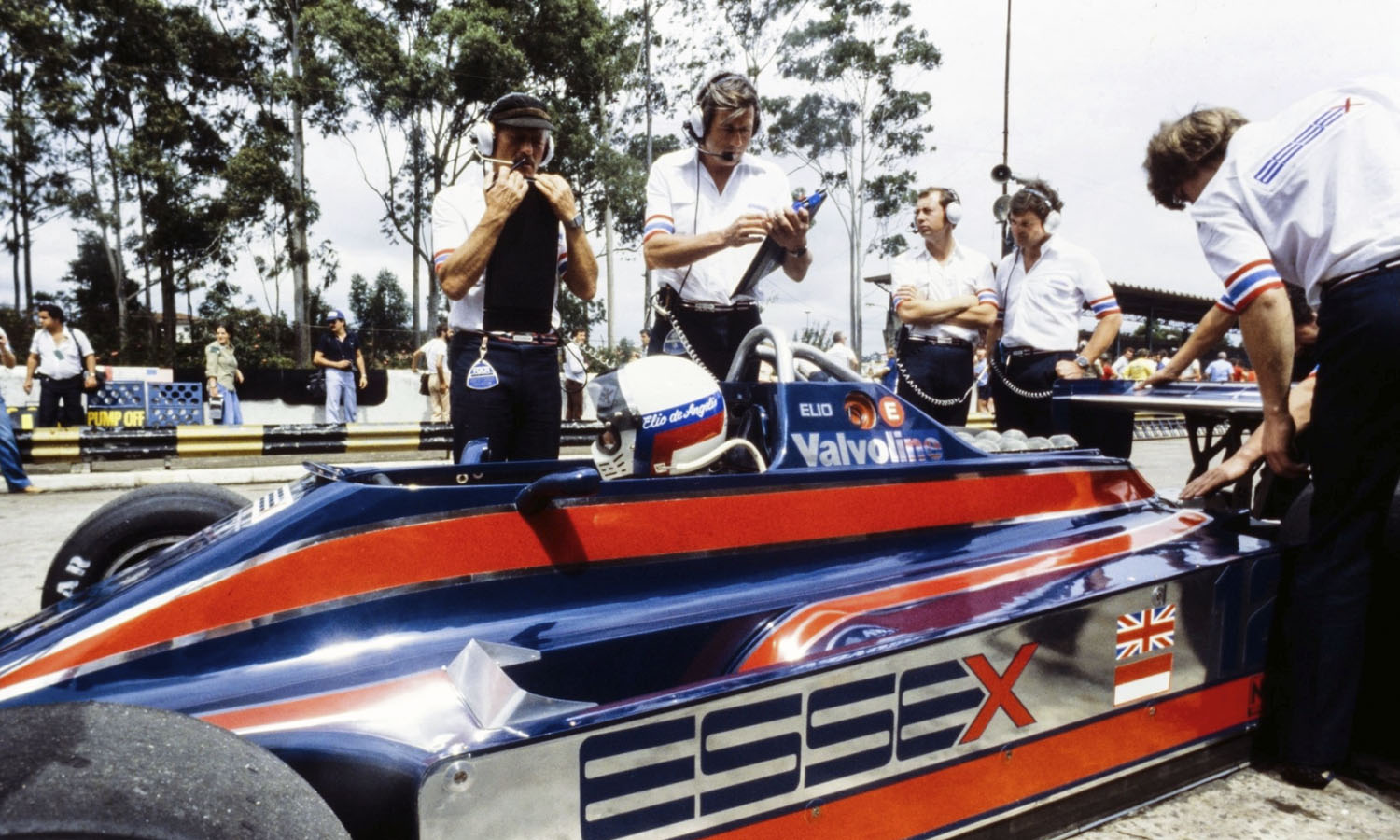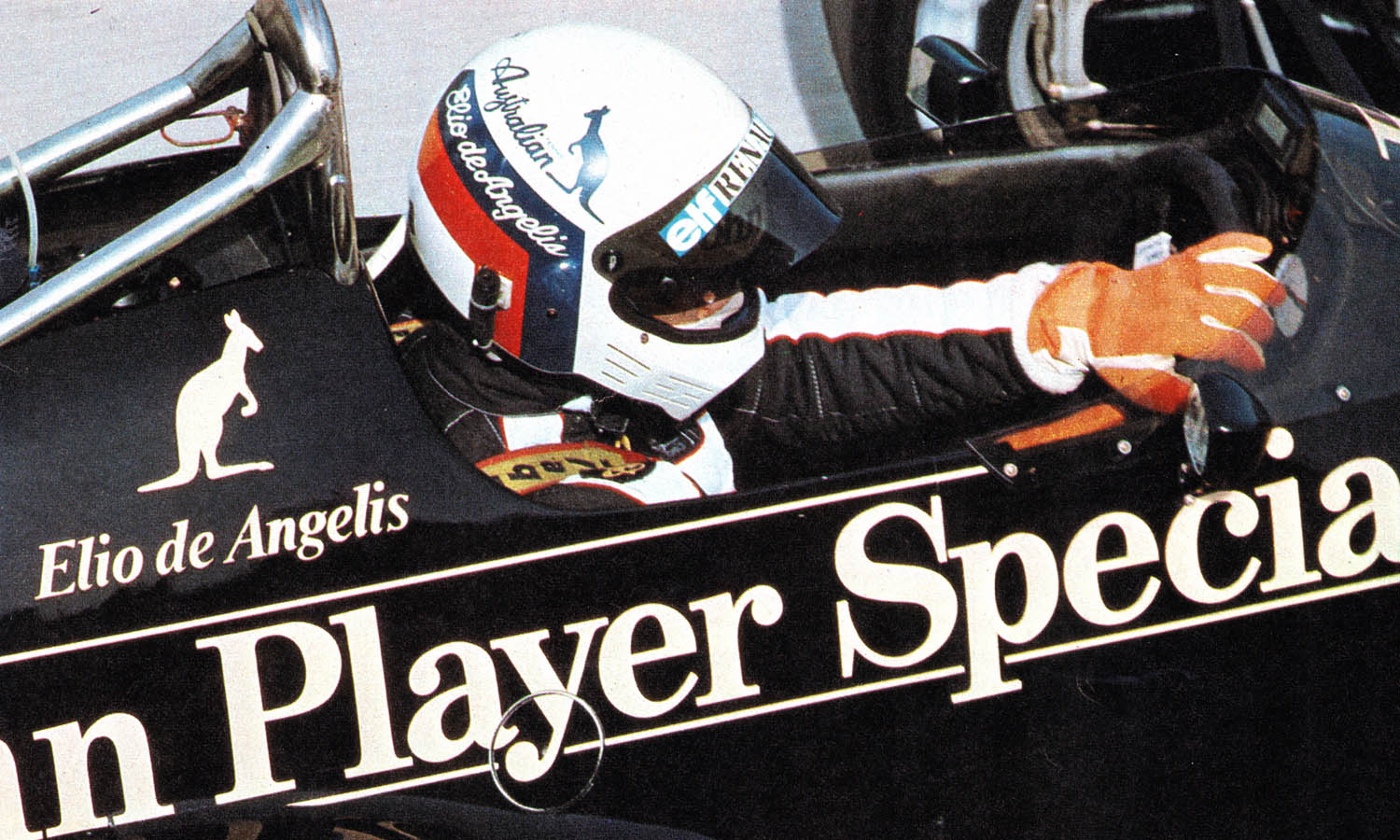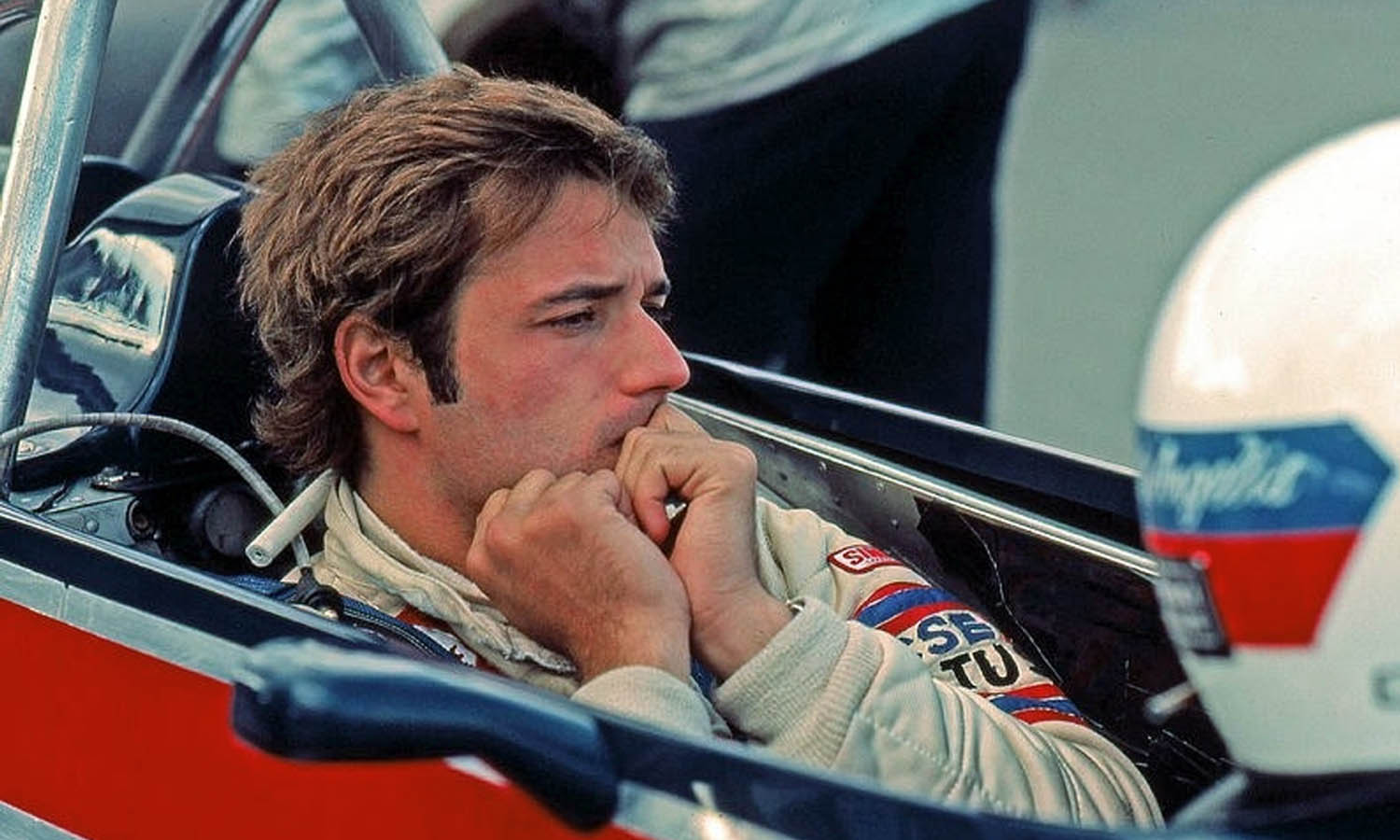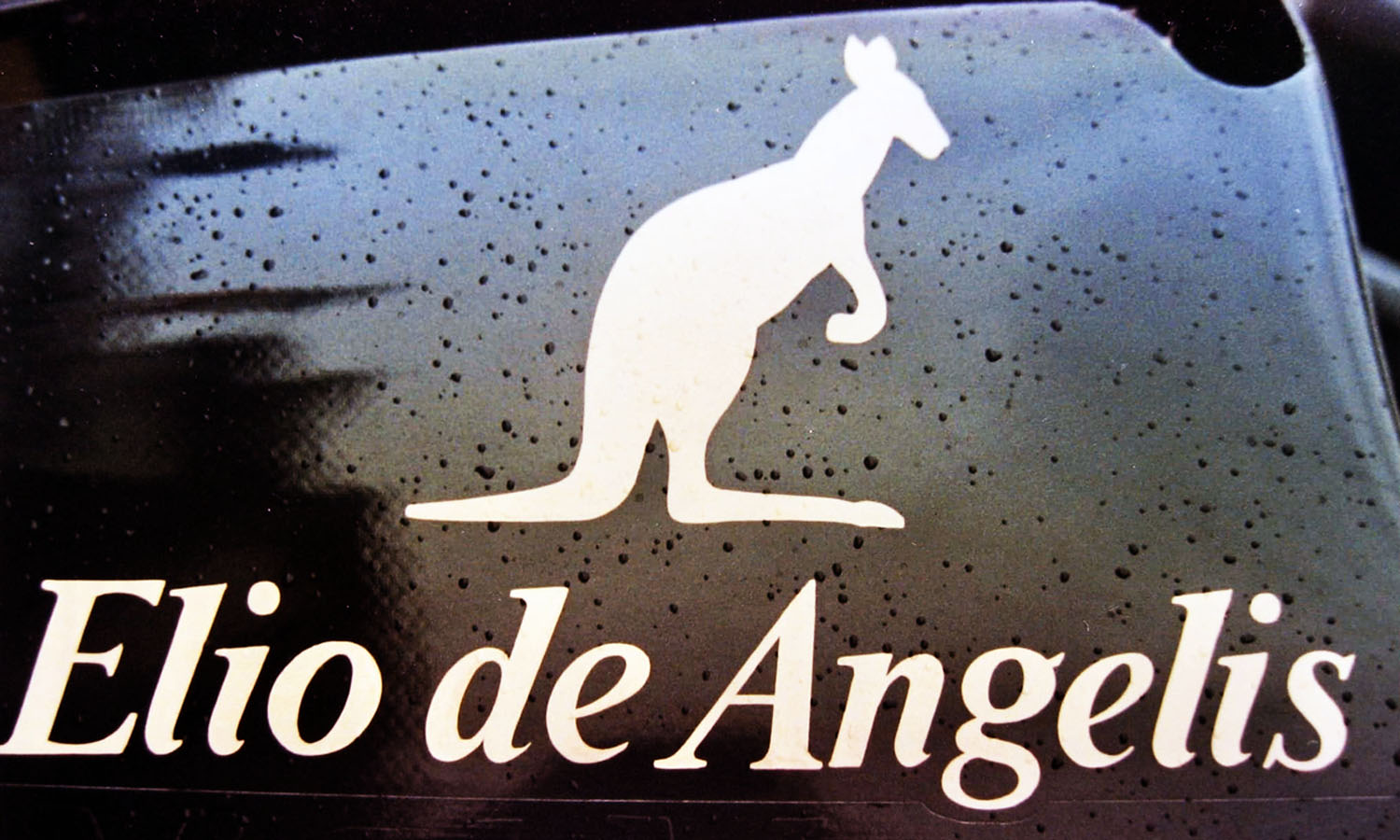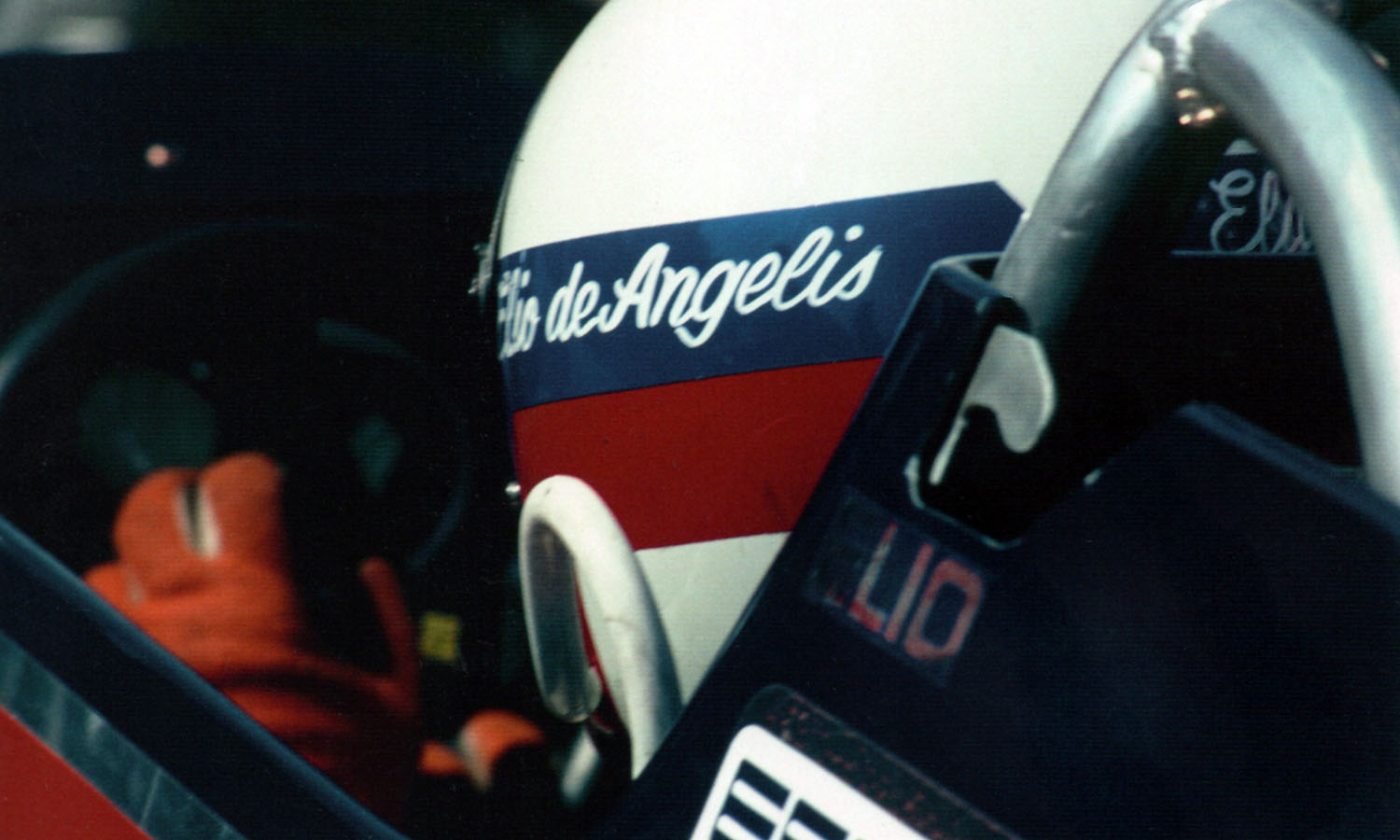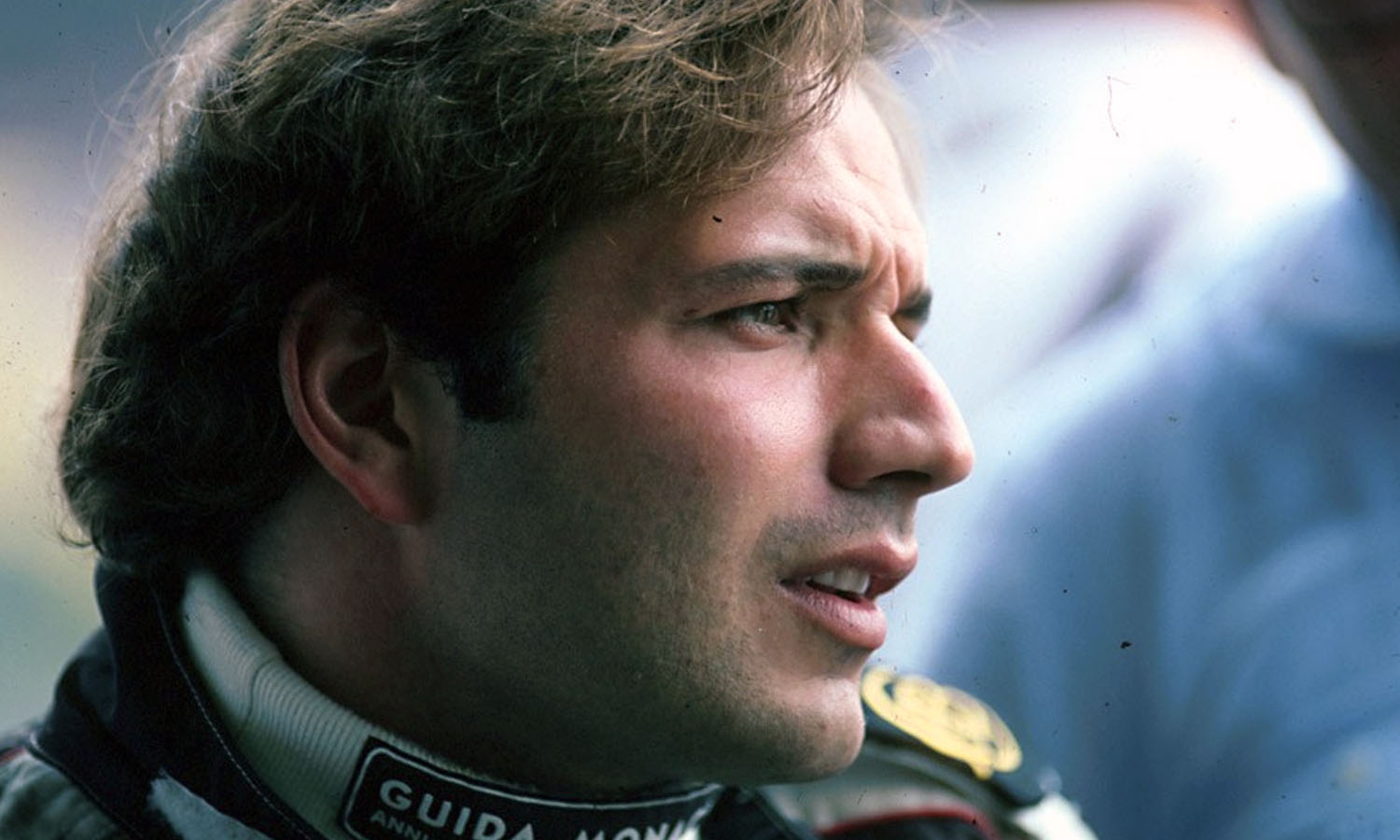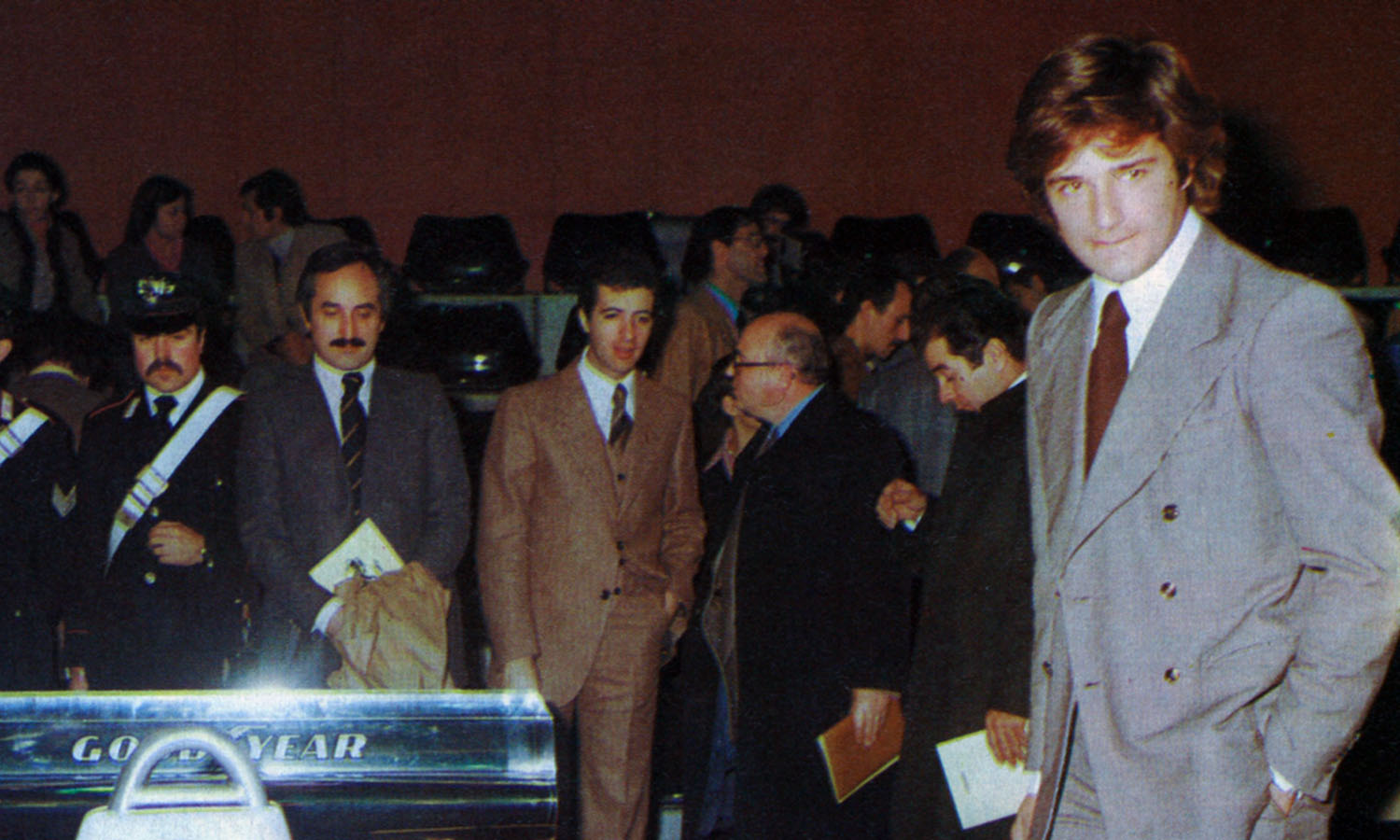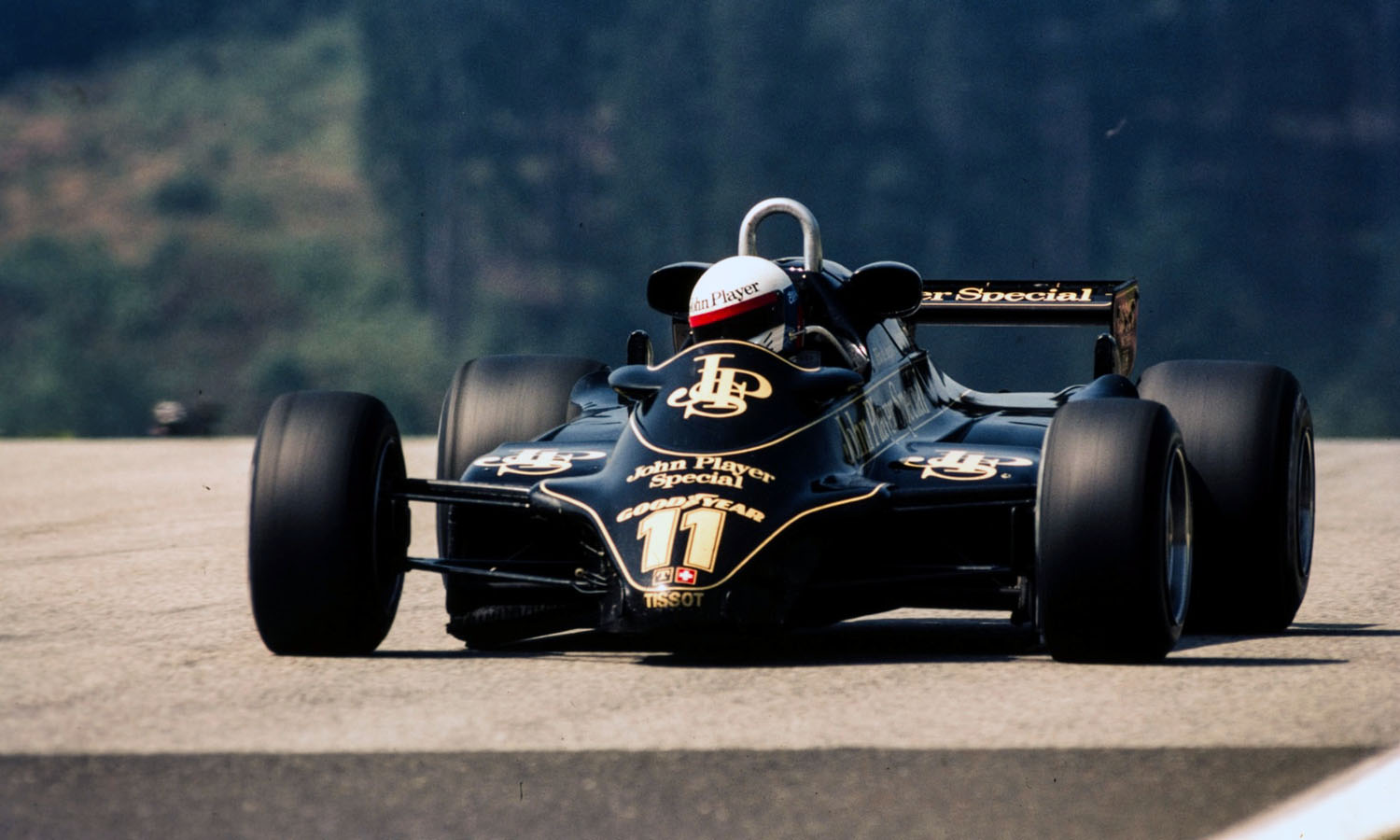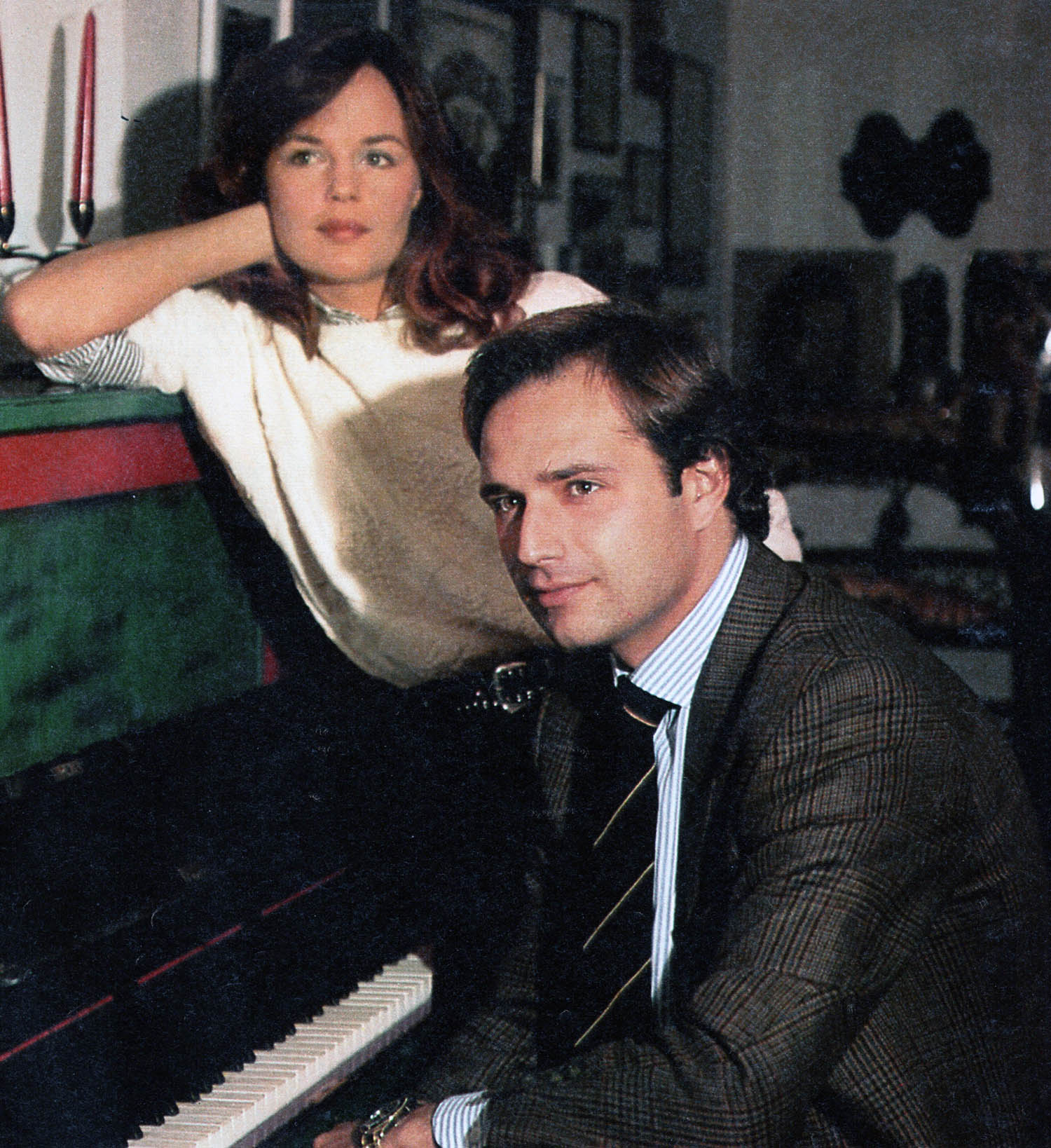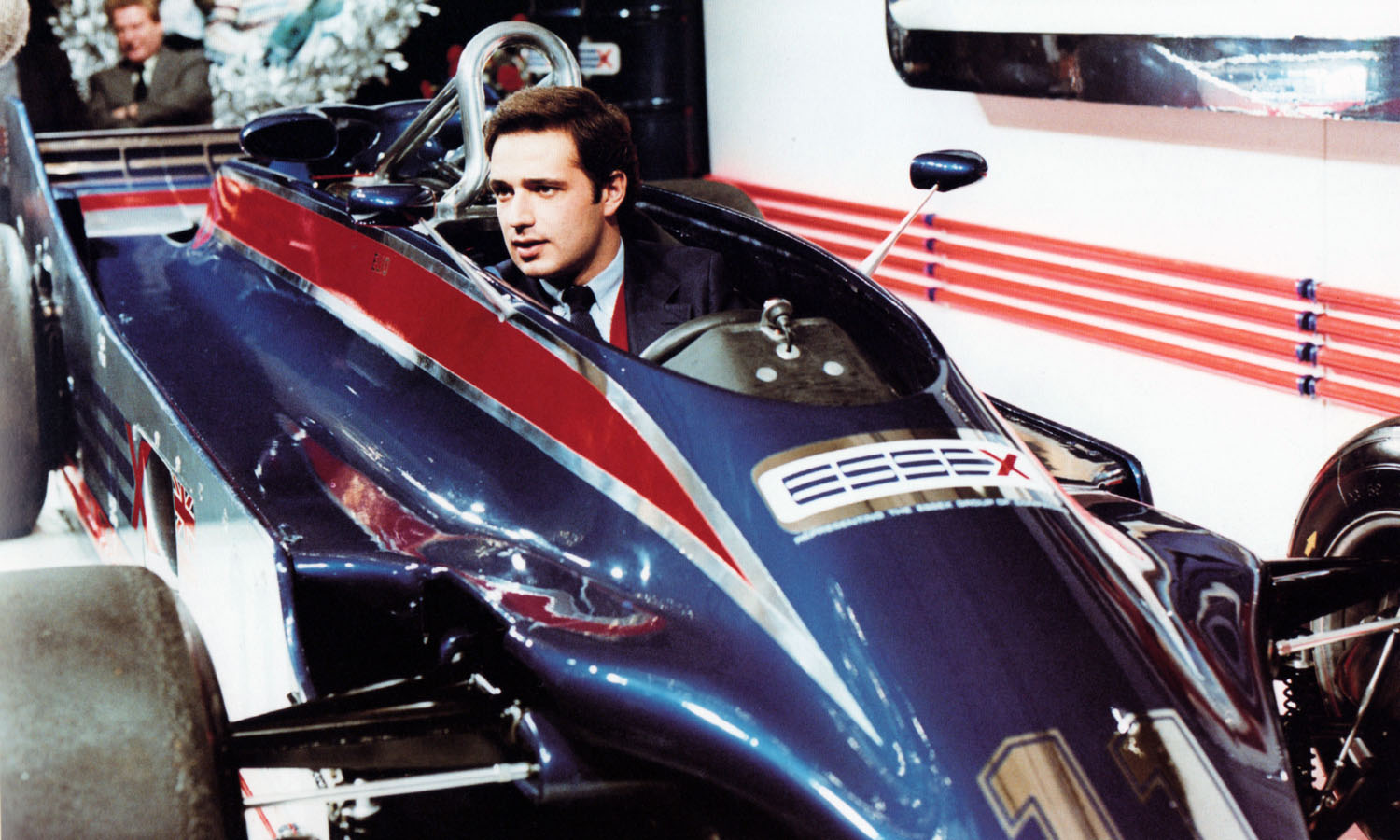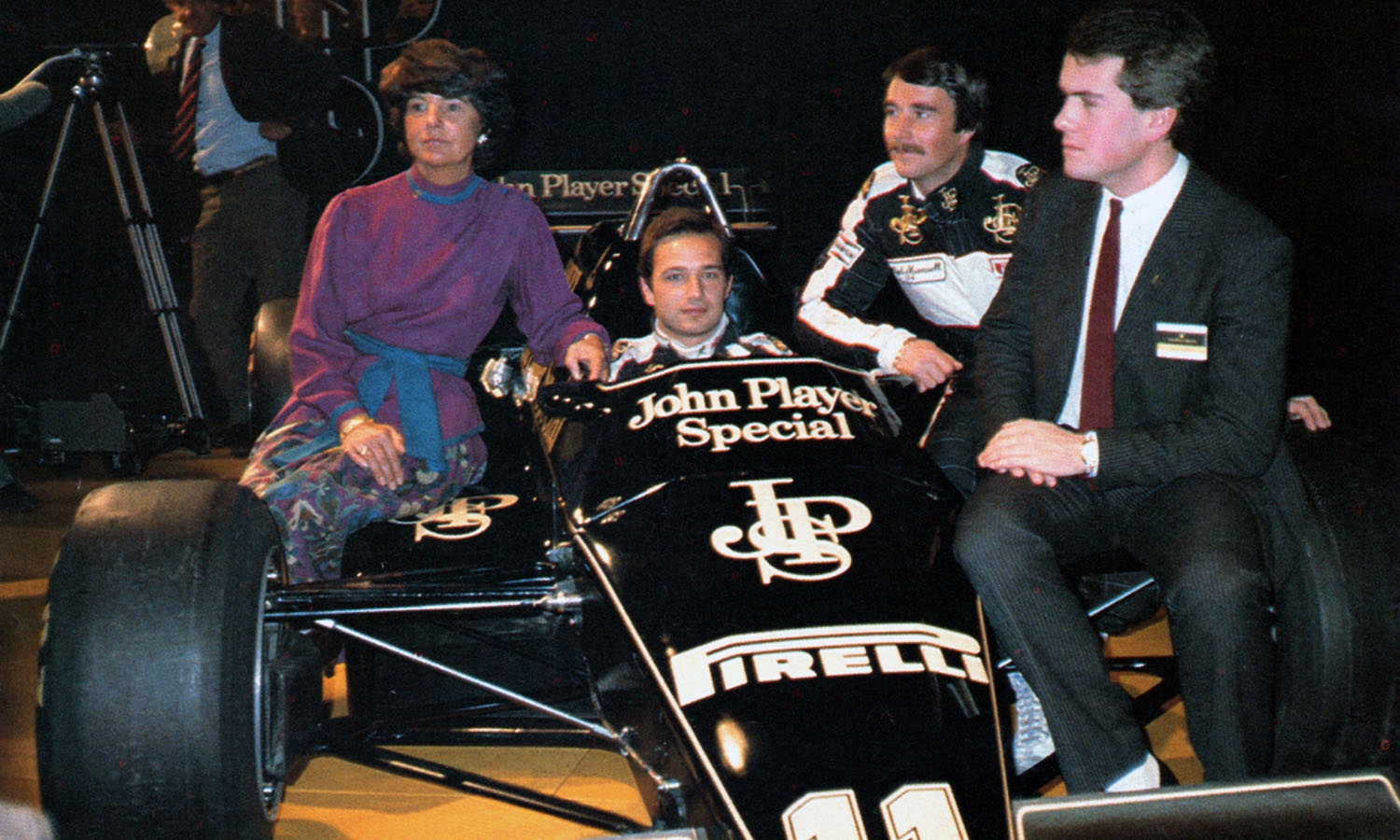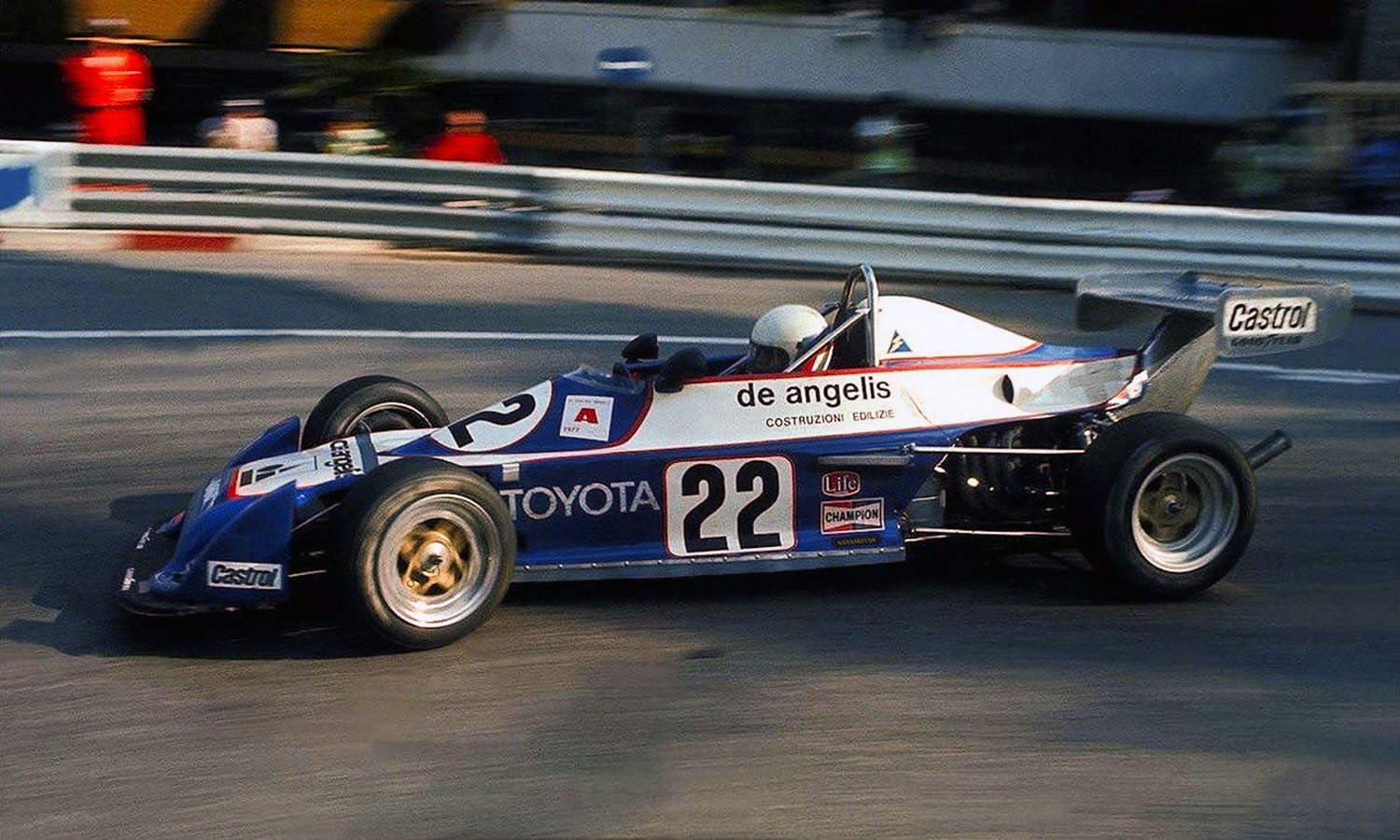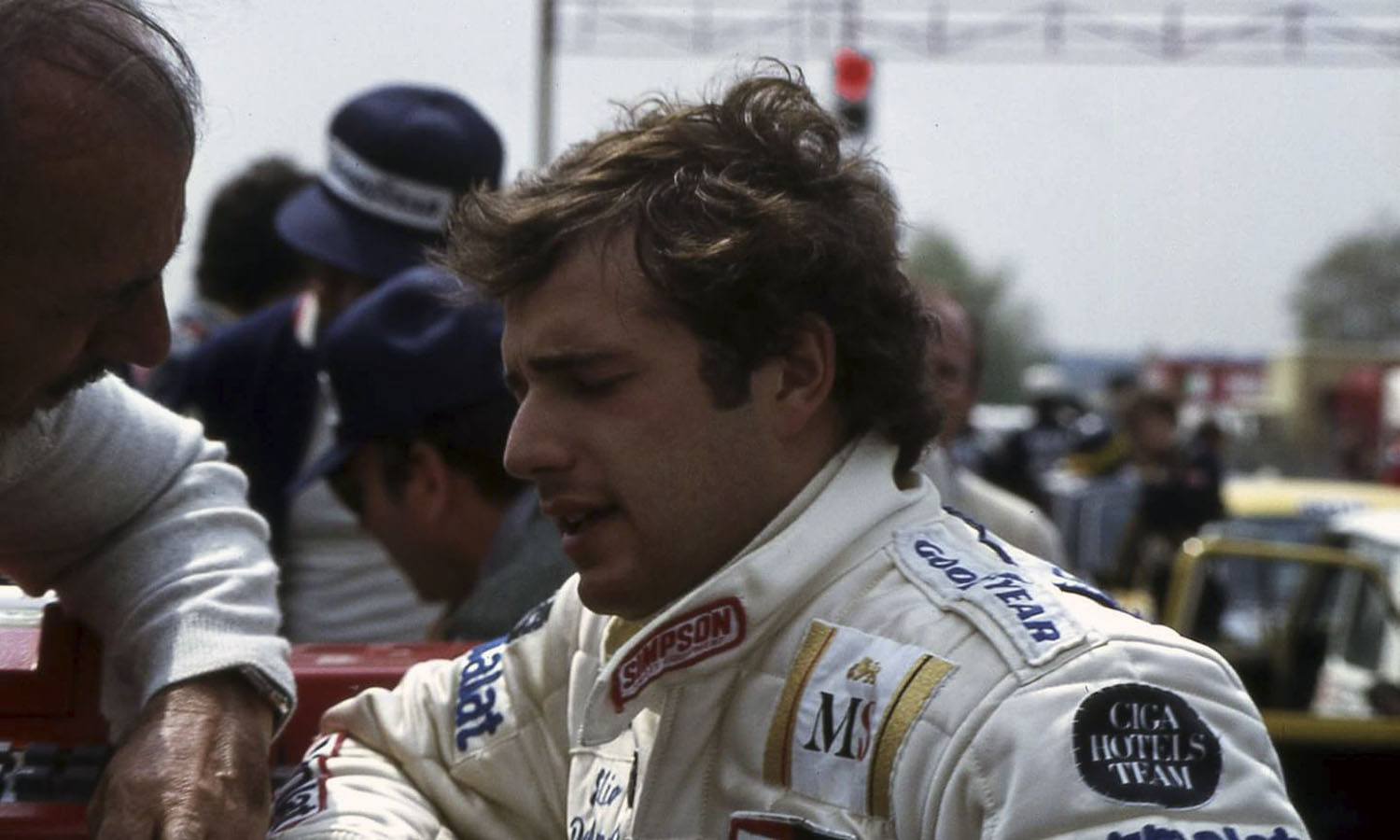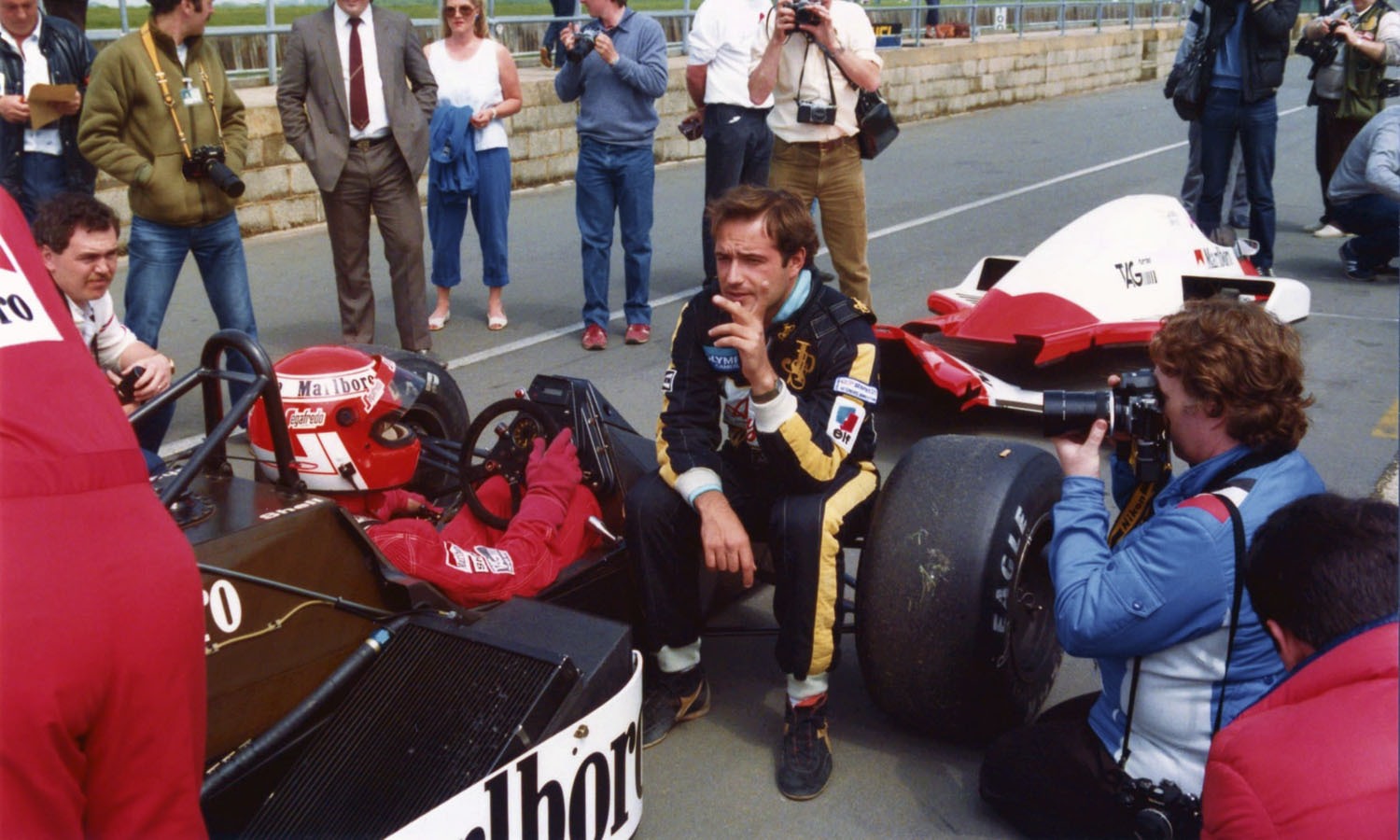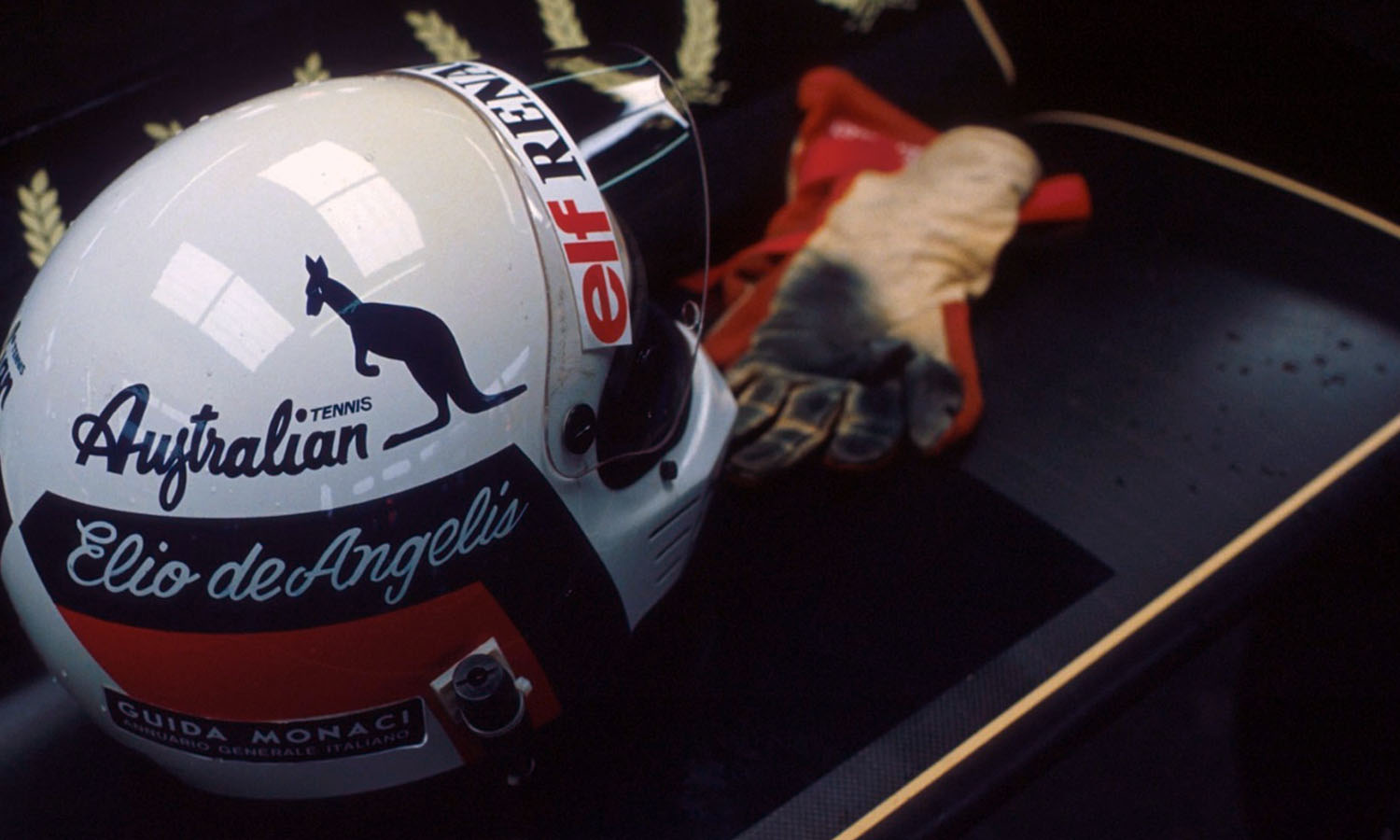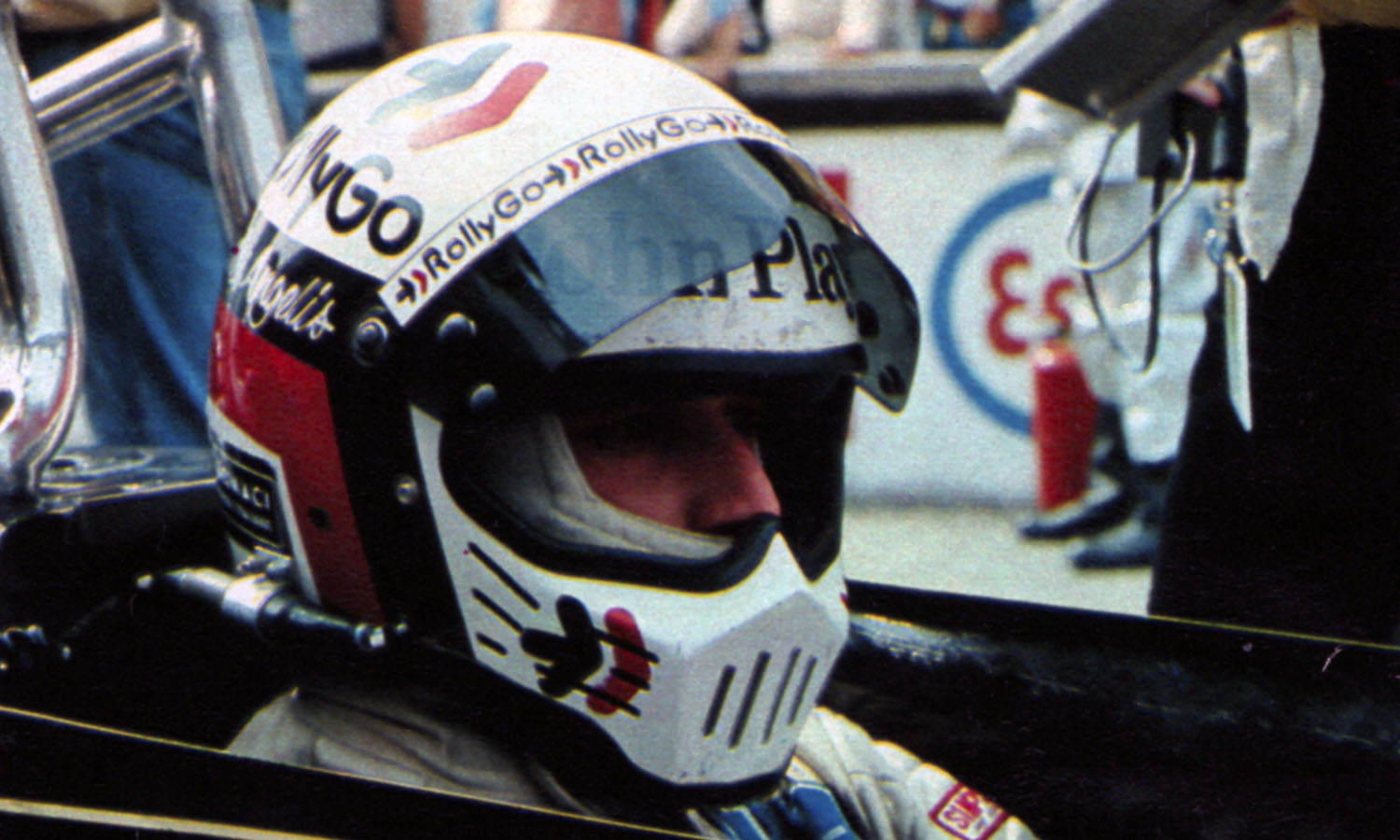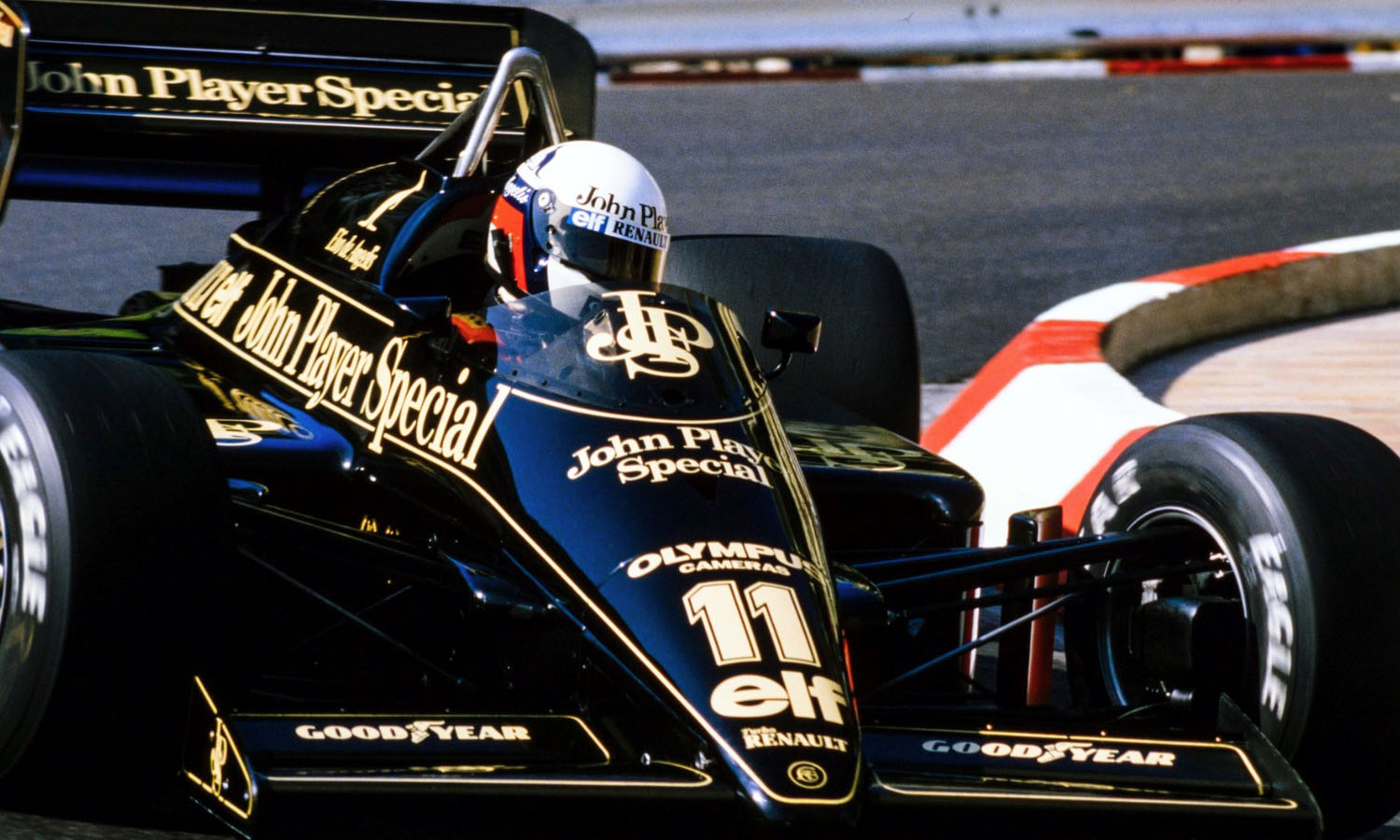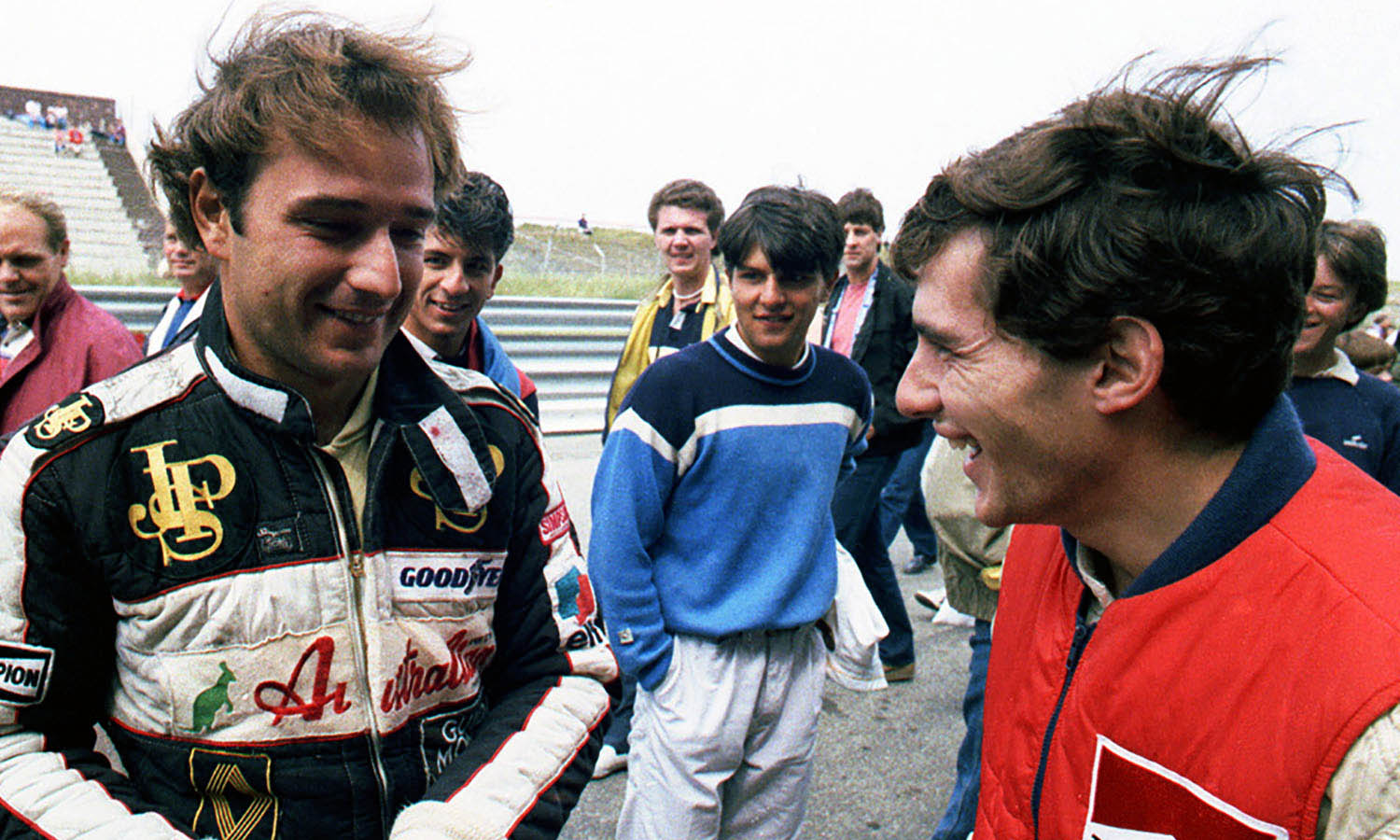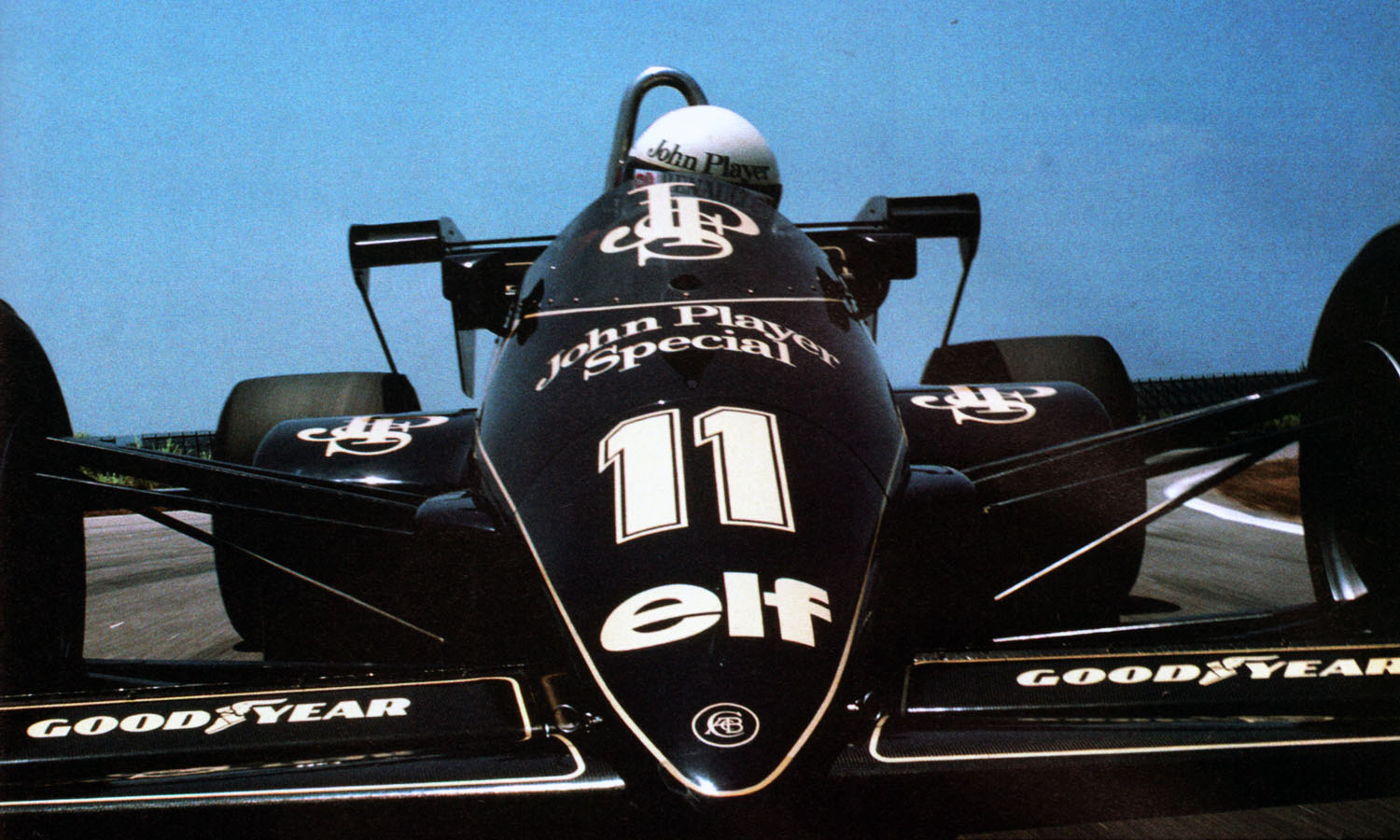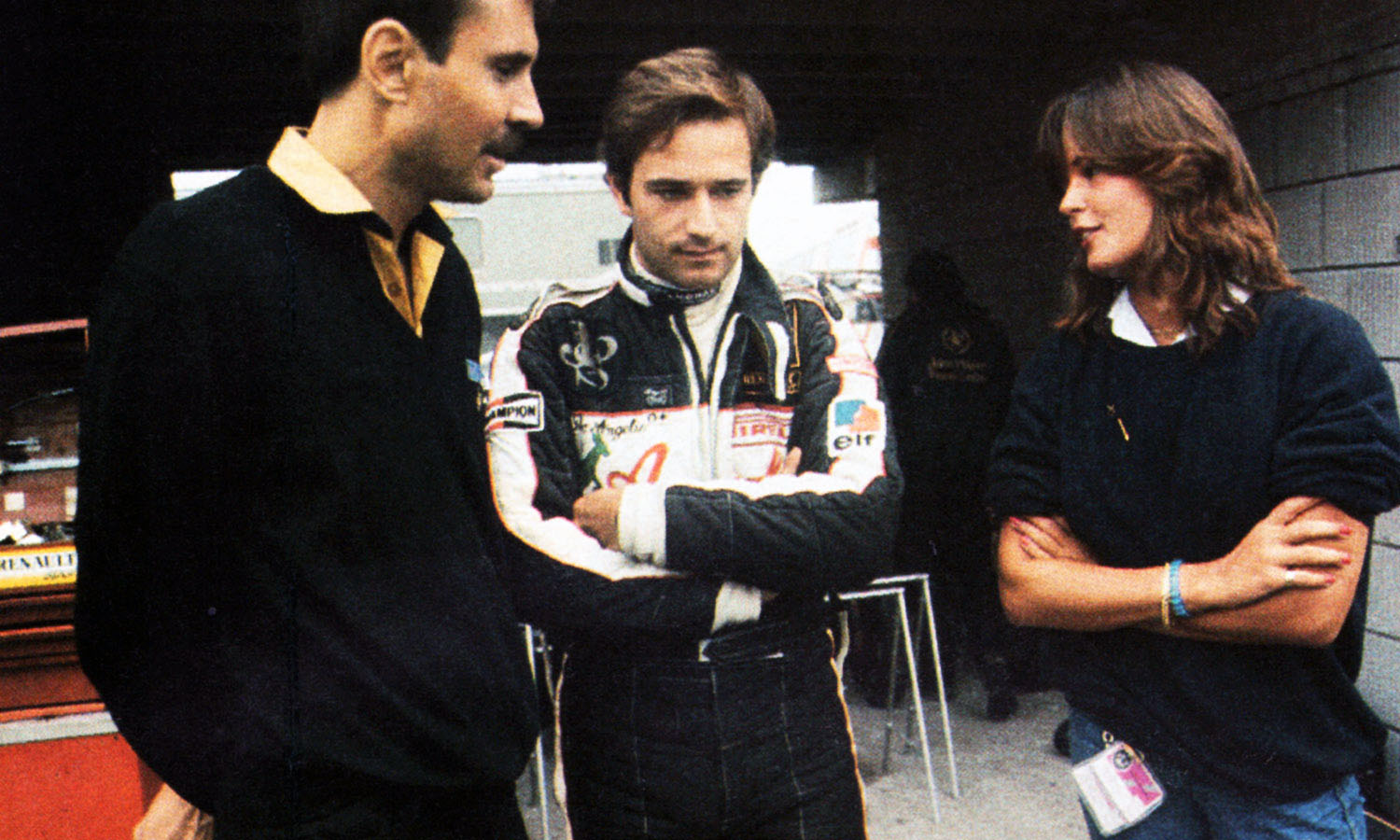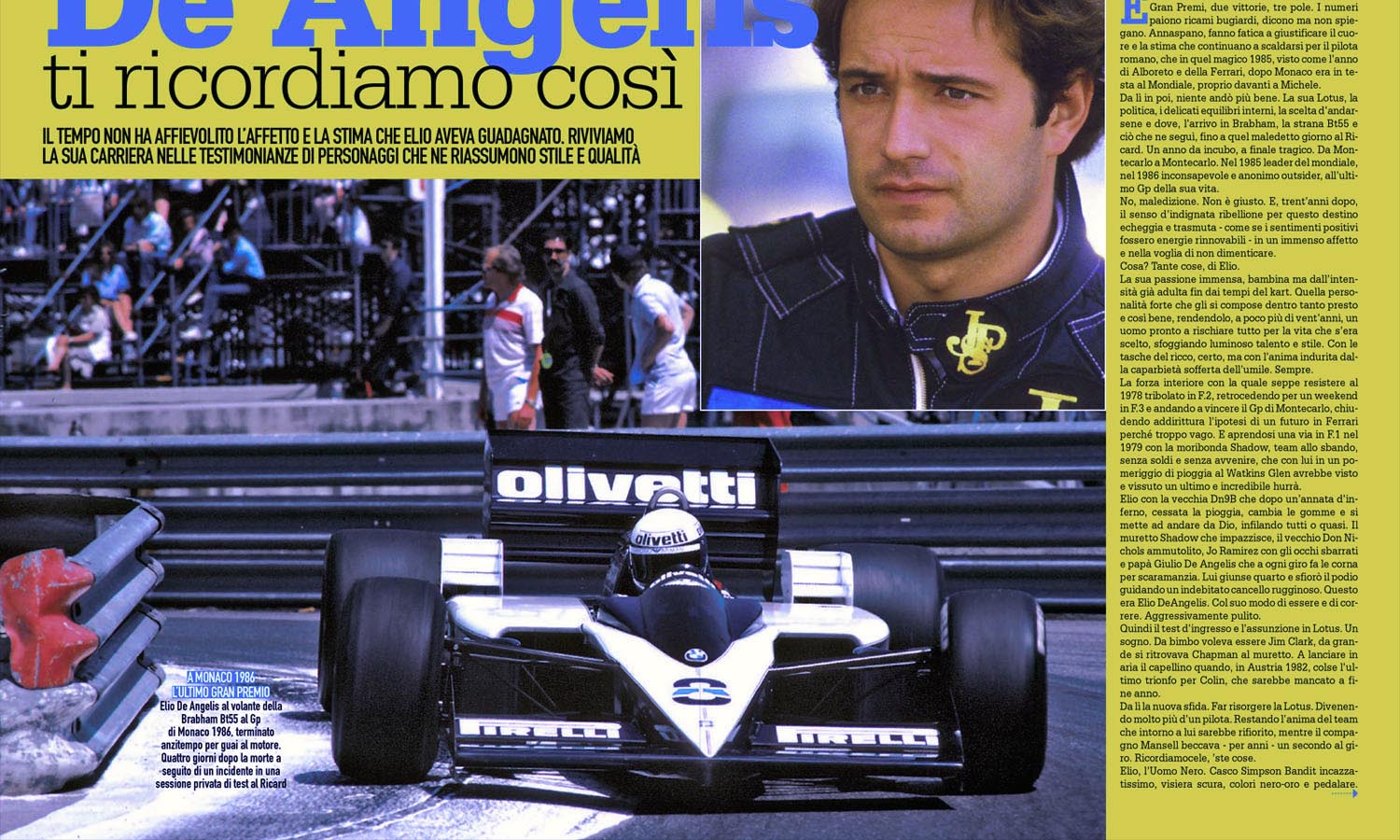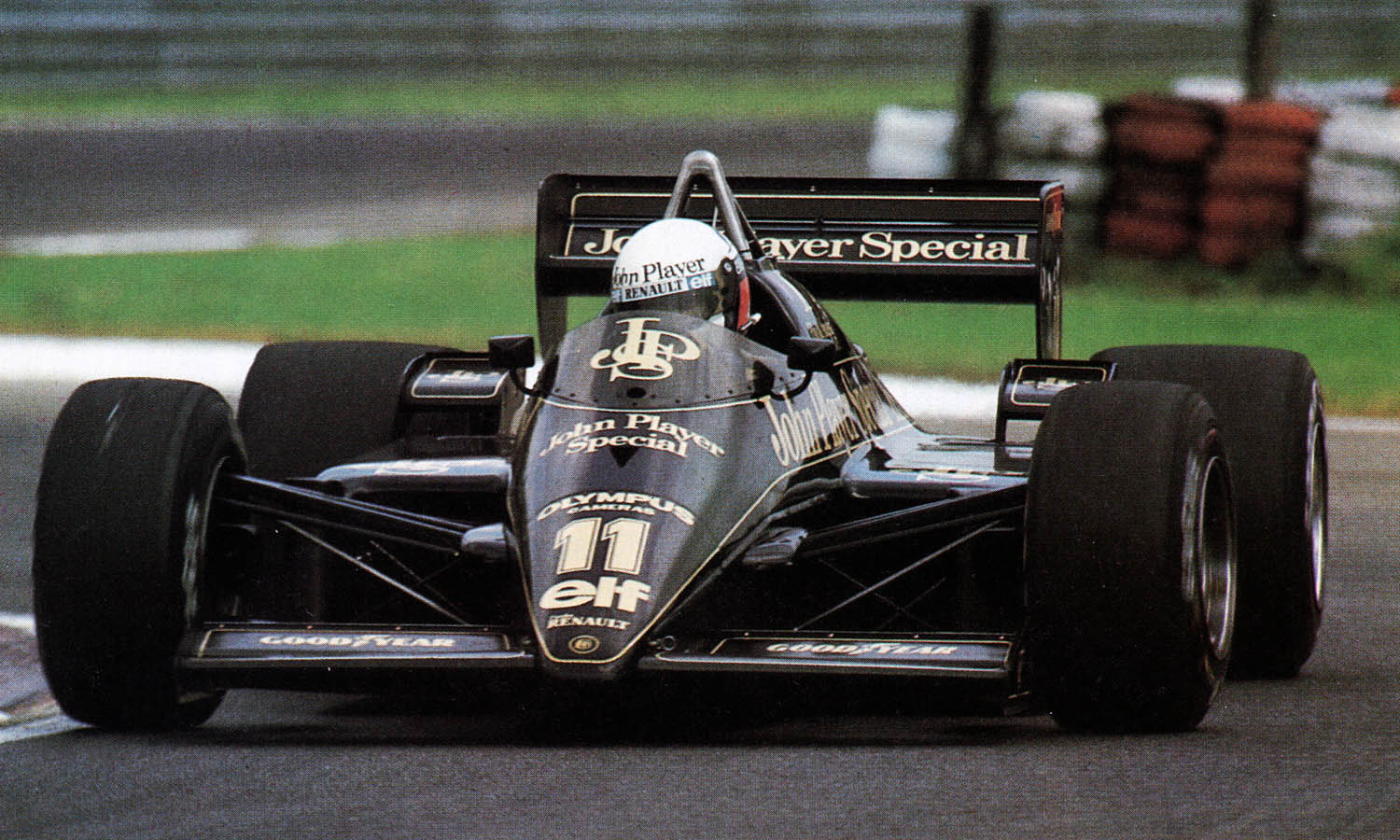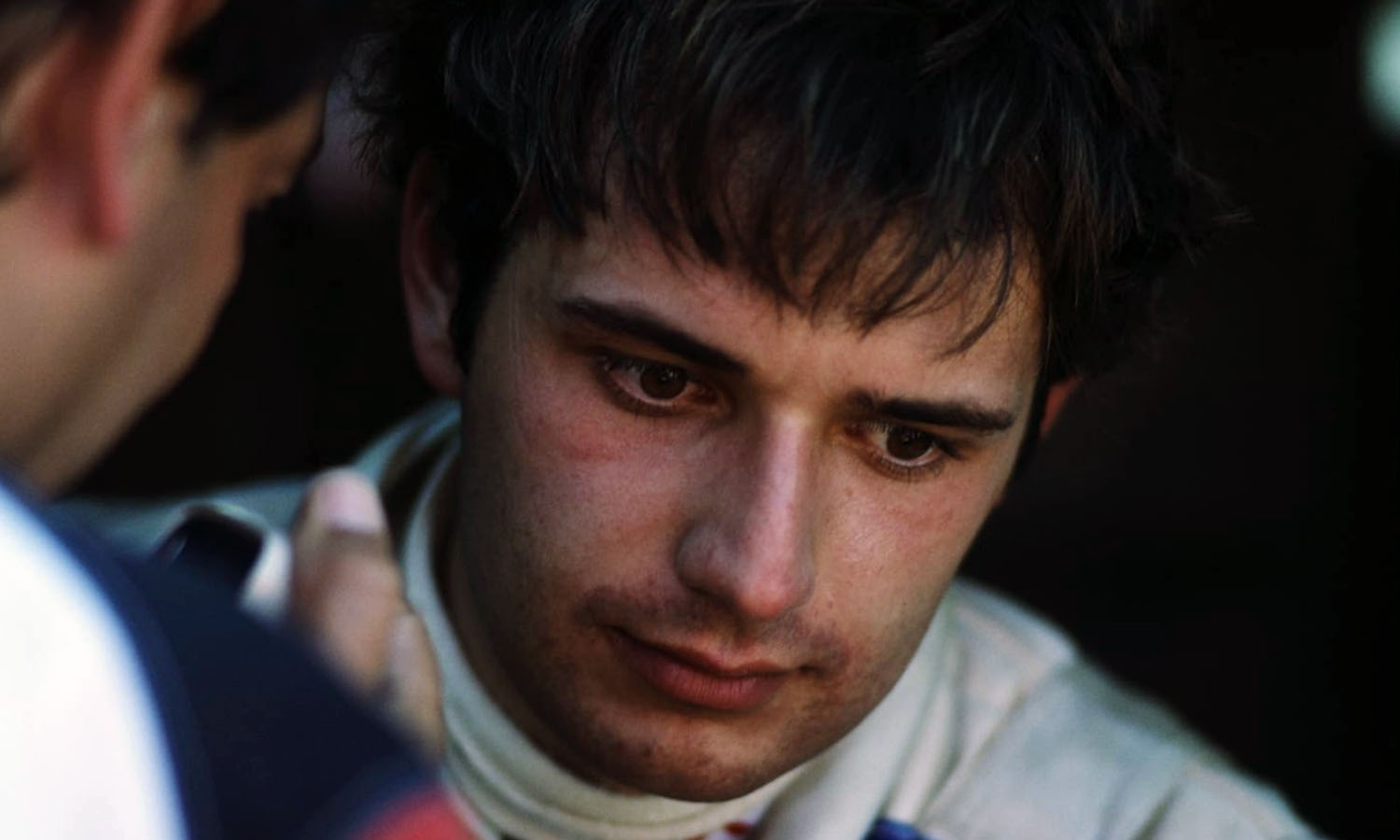In these pages you will discover a different De Angelis: also in his love for the Neighbor
Translated by this website
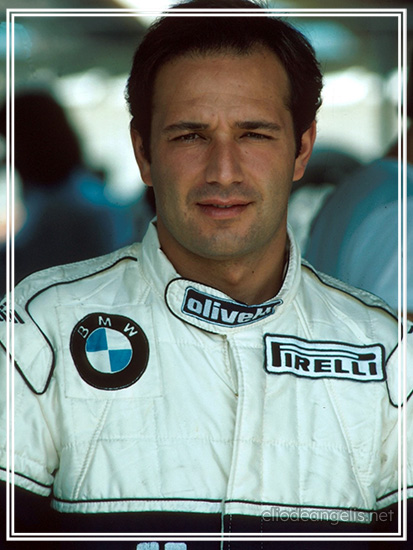
With emotion and pain Elio De Angelis was remembered in public and in private. Many have tried to trace the figure of a man, before that of a driver. Also because, in «Circus», Elio was an anomalous character. In the sense that on everyone – insiders and not – the Roman imposed his presence and his personality even before a reference to his undoubted professional qualities, due to the style and class of his behavior. A synthesis that can be found in a simple but nonetheless unanimous judgment: «A true gentleman».
Gentleman, let me be clear, not of wealth and substance (on the wealth behind Elio there had been too many jokes at the beginning and often not of the best taste) but “sir” of spirit. Certainly, it sounded strange to someone that a boy kissed by fortune in every sense, because he was rich, handsome, intelligent, famous, could withdraw into a private world tinged with melancholy alleviated perhaps only by the keyboard of a piano, instead of exploding in “jet-set”. But it was enough to know Elio just a little to know that these privileges that life had wanted to reserve for him, instead of offering him pride, were in a certain sense his complex. Perhaps for this very reason he angrily sought, without a moment’s respite, that true revenge that only a competitive spirit could offer him.
Among the many personal memories, a dinner in Faenza when he was still in F2 with Minardi, a birthday celebrated together in Long Beach, the Playboy Club party in Frankfurt where he met Ute, a shared overnight waiting list at the airport in Rio de Janeiro, a mid-August dinner at the Fossati di Canonica al Lambro. In the moment of the final farewell, it therefore seems to me a duty to reveal an aspect of Elio’s personality that probably few knew and which better than any other, in my opinion, encompasses that humanity (even before that refinement) which, as I said above, was the best quality of man. It was last February in Rio, during the last free tire practice. At dinner Elio, his inseparable friend Louis Ruzzi, Patrese, Umberto Grano and myself, at the restaurant “Le streghe”, one of the best in the Carioca capital. Talking about this and that I was made to say: “Basically we have to say thank you, even if we don’t know exactly to who, for being part of that small group of privileged people who can afford to spend an evening at dinner in this place where, in proportion to the Brazilian economic reality, one evening is spent what any of the waiters earns in a month’s work…”. An ordinary sentence and – why not? – even indifferent, which did not seem so, however, only to Elio. Instead of letting it fall on deaf ears as perhaps, given the atmosphere of the evening, it would have been logical to do, he wanted to deepen it. In the subsequent exchange of jokes which, going beyond the hallucinating reality of the millions of Brazilians economically reduced to the state of pure survival, led to single and sadly bitter considerations, I was made to say: “But do you realize, boys, that we are too privileged? Because we are part of a world that is already the elite of a society such as the industrial one which overall represents with its seven to eight hundred million people only the tip of an iceberg under which unfortunately there are the other four or five billion people who crowd the earth and who still have survival as their pure and simple objective”.
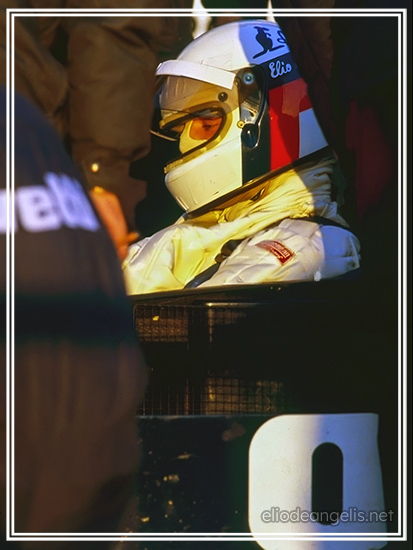
In view of the evening and the ambiance I was probably, as they say, one line over the page. And perhaps I would have noticed it immediately if Elio himself hadn’t interrupted me to say, perhaps in a reflection dedicated more to himself than to the audience:
“Things like this make me feel bad. I deeply feel the need to dedicate myself to others, especially to people who are suffering. Deep down I am and feel deeply Christian. Of course, I’m not a practitioner but I know that my position in society is such as to make me thank God every evening. My conscience always tells me that one cannot live without looking around. Precisely for this reason I would be happy to be able to give the publicity that the position of a F1 driver entails a context such as to be able to stand tall against anyone tomorrow. In other words, create the conditions to be able to help my neighbor and in the truest sense of the word. In other words, far from all the manipulations that often, taking advantage of our position as public men, they want to force us on. Unfortunately, we live in an environment where exhibitionism and, even worse, selfishness are the most rewarding values, and it is precisely for this reason that sometimes I find it hard to feel like a protagonist”.
“If there weren’t those moments in which, sitting at the wheel of my car, I’m alone against myself even before against my opponents, I would have fled from F1 a long time ago. However, since like it or not I’m in it up to my neck, well, I’d really like to use it to feel like a man of my time in the best sense of the term. I mean that rather than just signing autographs in the lobby of some hotel around the world, I’d like to be useful for someone”.
Today, after a few months, extracting these words from the archive of my memory costs me double the effort. Because in addition to the pain of putting them back in the mouth of a guy who perhaps wasn’t really a friend of mine in the strict sense of the word, but for whom I had deep esteem (and, I can swear, he was one of the few in the F1 world), I see beyond the value of testimony and confession also the moral and Christian testament of a true and sincere man.
Eugenio Zigliotto
Dedicated to those who didn't love him
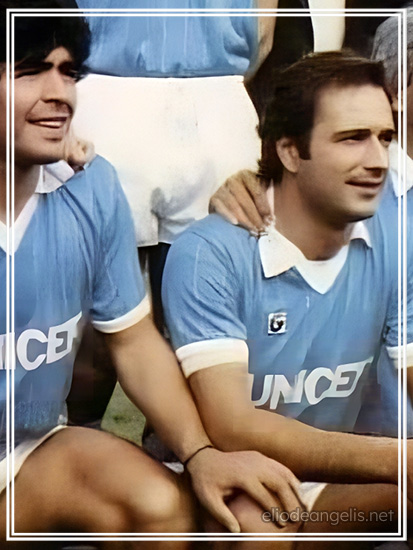
I remember Elio De Angelis’ first victory at Zeltweg, in ’82: a triumph in the final meters that made the many Italians present on the Austrian circuit quiver and dream. Dream that soon an Italian would triumph in the World Championship, dreaming and forgetting for a moment the still fresh disappearance, in the hearts of enthusiasts, of Gil.
I was curious to meet this Roman boy from a good family who had brought a breath of style to the noisy and colorful Formula 1. The opportunity was given to me by the pilot of his jet who offered, perhaps in the great euphoria of that moment, to give me a lift in Rome, after having left Elio in Olbia. Well – I remember thinking – I’ll take the opportunity to do an “almost private” interview with De Angelis and I also manage to return to Naples soon. However, he set off immediately, and I had to follow the Formula Ford race which took place after the GP, and which was won by Senna. I met De Angelis a few other times, bringing back a strange impression: I didn’t like him. I told him with my usual frankness. He seemed to me perhaps a bit snobbish, almost “detached” from the Circus. But after a chat at Imola and, above all, at S. Paolo with Maradona, I had to change my mind. Either I didn’t understand anything, or Elio had changed.
Kind, available, serene. Even when the car didn’t want to go, just like at Imola. He explained to me: “The fact is that we don’t know what the origin of the problems with the car is, we don’t know where to start”. But always with serenity. Like after the race, when he sat in the pits in front of the television to watch the race of his friend Riccardo, while he was forced to retire yet again. Always without complaining. Suffering certainly, but in silence. A single moment of bitterness, referring precisely to the former teammate, Senna: “What can we do? We are 3 seconds behind the top of the class…”. But with grace and elegance.
And in Naples, among the Azzurri with the Unicef shirt, to give a smile back to many children. Someone said on that occasion, not without a hint of irony mixed with envy: “he came by private plane”. “Yes, but he came,” answered a boy who had recognized him. “I’m happy to have played for these children – he told me in the locker room – there should be more initiatives like this”. Shortly before, on the field, he had pitched an idea to Diego Maradona: “why don’t we do something like this with F1?”. He scored. A goal.
Please remind your friends and colleagues who, like me, did not love Elio, Director.
Anna Maria Chiariello
A family with butterflies
Dear director,
Saturday I attended (unfortunately) the third funeral of a Roman driver. First Ludovico Scarfiotti, then Ignazio Giunti, and now Elio De Angelis. Even though I’ve seen so many young friends die, fighter pilots and car drivers, these are things you never get used to.
Entering the church, the first thing I heard was that beautiful wordless song by Elton John called “Song for Guy” dedicated to a young friend of his who died – if I remember correctly – in a motorcycle accident.
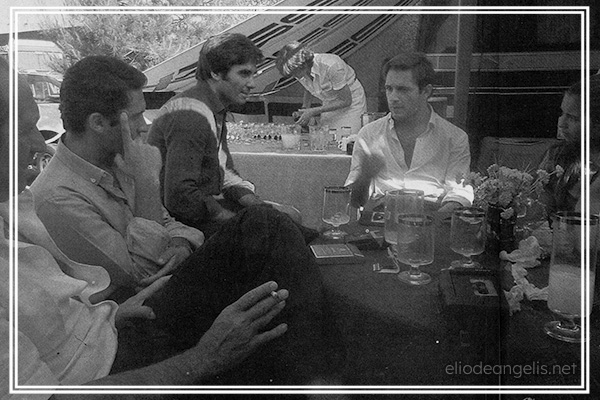
Trying to go on, I found a human wall, and finally I found a space next to Francesco Santovetti who was stationed there at the request of the family to act as a “filter”. This was followed by the notes of Tommaso Albinoni’s adagio for strings and organ in G minor, another piece of music that I love so much, which I heard for the first time in Italy many years ago (and then I immediately bought the cassette in Modena). It’s a music that always makes me cry.
I love music very much, and therefore I noticed other pieces, from Bach Gounod’s Ave Maria to Franz Liszt’s Liebestraum that you learn to play in piano lessons, and which Elio surely played too, to the final music, Ravel’s Bolero, which together with much applause accompanied the coffin to the exit of the church.
If home decor is a key to understanding a person’s personality, taste in music surely is too. They told me friends handled the funeral details for the heartbroken family, and that a friend had picked out Elio’s favorite tunes. Which indicate a sensitive, romantic, and even melancholic man, certainly not the qualities one expects from an F1 driver where a ruthless and aggressive soul is needed to win, at least in part.
Around me I saw so many faces torn by pain and I thought: how many friends do they have, Elio and his family, how many people, how many flowers, how many crowns! There were one thousand, perhaps one thousand five hundred people inside the church, and clearly among them there were not only friends and relatives but also onlookers and fans, but the emotion was very strong and it was felt shortly after the beginning of the mass, when there was an explosion of applause after the words of Father Michele Buro who had baptized him: “Let’s all ask Elio for the strength to continue running our lives to the very end”.
I was shocked because I had never heard applause inside a church during a funeral. In all I counted six applauses and an “Elio sei vivo” shouted by someone near the altar. They tell me that this custom began during the “years of lead.” Maybe. Perhaps applause in church is not appropriate, perhaps it should only occur when the coffin comes out of the church as they did for Anna Magnani, but I think Elio would have liked it this way, that he preferred the applause of the fans, friends, relatives, of his girlfriend, to the many tears shed for him.
Oh yeah, the family. When I returned to the F1 scene in 1981 after a few years’ absence, my first contact was with him, with Elio, through a dear friend, Maria Teresa Fendi Venturini, who at the time was engaged to Roberto, Elio’s brother. They invited me to dinner in a very “in” restaurant in the historic center of Rome, it was a very pleasant evening, but we talked about everything except racing.
In Montecarlo I saw them again, the De Angelis brothers; the family had rented a boat near the F1 garages and Maria Teresa invited me to have breakfast with them. So, I also met Giulio, the father, Pina, the mother, and Fabiana, the sister (I don’t think there was Andrea, the younger brother). I see the scene in my mind like in a film: everyone laughing and joking sitting under a tent on the stern of the boat, taking fruit from a huge basket on the table, other drivers who came to say hello, all happy, proud, the sense of a close-knit family.
I spoke for a moment with Elio with my recorder in my hand, but only for a moment, so as not to be intrusive. These days I’ve been listening to the tape. I asked him, “What did you do yesterday during the day?” Elio had replied: “I often came to take a shower, this is the convenience of having a boat, you can take a shower between one test and another. This is always a very difficult Grand Prix because there are so many people around! And you feel the pressure of this whole environment, and it’s very difficult to be alone and concentrate well without being rude to people.”
I managed to talk to Fabiana, Elio’s sister, in Madrid, in the Lotus area where they had offered breakfast in the open air, with many tables under the tents. She was then 15 years old, a blonde girl, nice and pretty, completely at ease with her in this world. “I’ve always followed Elio, – she told me, – since he raced as a child. We are a family of mechanics and fans, my father, my grandfather. I like to follow my brother, but school will start again soon. I push, I’m like a mechanic. I’m not afraid. I just want to make Elio go fast. I don’t think about the danger, the important thing is that it goes. I think that for him the whole family is a moral help. The only thing that bothers him is that everyone wants to give him advice. The thing he can’t stand is if others blame him, then he gets nervous and he’s no longer lucid. I’d like to run, but I think dad couldn’t bear two emotions”.
And here, on the tape, is the conversation I had with Papa De Angelis. I then intended to interview Roberto and his mother, to get a sort of complete picture of this family so united in their passion for motoring, but then I had to do other things and the interviews remained on the tape. Even if it’s five years ago, I think it’s worth telling you what Giulio De Angelis, a powerboating champion, had told me: “When I was racing, I didn’t realize that a family member who attends the races could feel certain emotions. As I raced, I thought I would accept the fact that my son races without problems; however, when the opportunity presented itself, the proof of the facts proved me wrong”.
“Elio has been racing for years, but as far as karts were concerned, albeit with great fear, and then F.3, I thought: ‘the cars don’t go very fast and they’re quite safe’. F1 is emotionally stressful because the competitive spirit joins the thrill of danger, because one would always like to see him win or fight for the top positions. So, it’s a significant commitment for a father”.
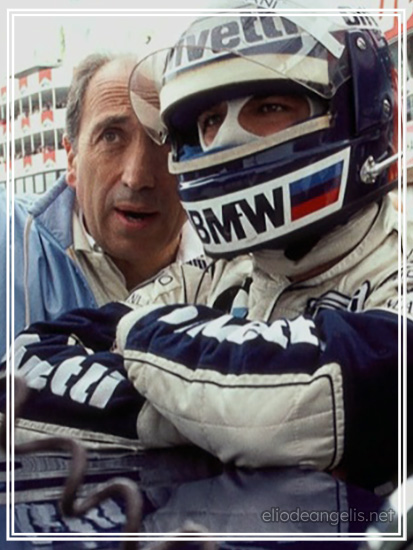
“We have discussions, I try to make him understand things that can only be understood with a lot of racing experience. He lacks this news, this experience. But he doesn’t listen to me because the experience of others isn’t valid. I see young people, whom I know personally, who started karting professionally as kids. I notice that today’s young people are very modest and that they don’t have the stimulus for exhibitionism as they did in my time, twenty years ago. They focus on technical issues that they understand very well. There are seven-eight Italian drivers in F1, so the Italian school is valid”.
At that point I had asked a slightly mean question, but De Angelis didn’t get upset. I asked if the presence of so many Italian drivers in F1 is because the Italian school is good or because Italian drivers are richer. Giulio replied: “Nobody spends on their own in Italy, it’s just that there are more companies willing to sponsor. There are many enthusiasts among the industrialists who go to see the minor races, so they follow a driver, first with a few million, then the results come, and thus this advertising discourse is born. Then F2 and F1. Here is the testing ground: after seven/eight races a driver either stays forever or never comes back”.
So, I asked, what emotion do you feel seeing your son racing in F1? “I feel much more emotion than when I was racing”.
But, I asked, do you really get butterflies in your stomach, as we Americans say? “I feel it physically, morally. During the races I try to follow the car at every point and see if it has any problems. Sometimes I’m in the pits, other times in the grandstand, it depends on where I can see better”.
To my question if he had ever cried with emotion, De Angelis hesitated, there was a small consultation with his daughter, like “can we say it, can’t we say it?”, and in the end he replied: “Every now and then some little tear escapes us. For example, in Brazil when Elio finished second, and because he was called up by Lotus, something so important for a twenty-year-old young man”.
Director, I must tell you something. The day after the funeral, Sunday, May 18, I became the mother of an adult, because my daughter Barbara turned 18. As you know, we are a family literally born into motor racing, I met her father at the Targa Florio, she announced her imminent arrival at the Monza Grand Prix practice sessions (I passed out in the pits), my father was a great aircraft pilot and has also raced motorcycles, and therefore there is not a person in this world who understands the passion for motoring as I do. However, I must be very honest. If Barbara had a lot of passion and a lot of talent, if she wanted to race, if she asked me help for racing, my acquaintances, money, I wouldn’t know how to answer. I’m not sure I would say yes, that I would do anything to help her.
Yesterday, when I listened to my interview with Giulio De Angelis, I got goosebumps. Because, at the end of the interview, when he told me of his tears (of joy) for his son’s successes, I heard my voice saying: “So, I wish you many more tears”.
But not like this, dear De Angelis, not like this. With many kind regards,
Logan Bentley Lessona
Dear Rombo, For a De Angelis Memorial
I got to know Elio De Angelis personally and appreciate his moral qualities as well as his qualities as a driver. Now I have a great sense of emptiness inside, especially at the thought that not everyone got to know him well because, unlike Gil, Elio was a thoughtful driver, not impetuous and a smasher, and never aroused popular enthusiasm; therefore, will soon be forgotten by many people. It’s a real shame because a man of his sensitivity and generosity will be hard to find. To remember him and worthily honor his memory, I promoted among my colleagues (I work at Guida Monaci that Elio frequented having been sponsored by this company) a collection of funds to be sent to UNICEF in his name. I ask ROMBO to launch from his columns the idea of the demonstration in Imola that he would have liked to do, as reported in the article by Anna Maria Chiariello on the match in Naples with Maradona. It will be very nice to be able to do something in Rome (politicians permitting) with the participation of F1 drivers and possibly other champions of all sports disciplines (perhaps with karts as in the Evening of Honor) and donate the proceeds to UNICEF: Elio from up there would be happy! By the way is there a free star close to Gil’s?
Giancarlo Raspa – Roma
A new black page for auto sport. I am faced and defeated, more than by the imponderable event of physical death, by the death of reasonableness and of the international sports management spirit. Elio De Angelis was an honest, generous, loyal young man, a sportsman from “another era”, a true gentleman. Never a word too many, never a comment less than courteous. And besides, what a driver! But what does this matter now? Now it only counts to operate at every practicable level, drivers, organizers, and sincere enthusiasts, to change this shameful state of legislative abandonment. PS. Why not set up a “Gentleman Driver” award dedicated to Elio?
Vincenzo Estatico – Genova
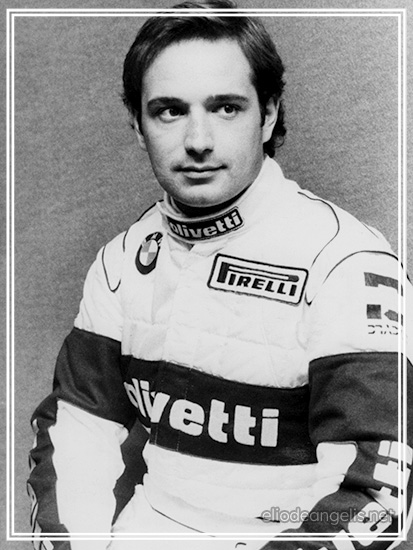
It’s sad that to be known and appreciated, certain human aspects have to come out in tragic circumstances. Elio De Angelis was one of those characters whose public image probably didn’t give him credit. We want to draw inspiration from his richness of mind – as evidenced by the moral testament of which Eugenio Zigliotto speaks in the “mixer” – to remember him. And at the heart of our initiatives are precisely those characteristics of Elio that you have come to know and effectively described. Regarding the initiatives in memory of him, we don’t want to disperse in a thousand streams what we want to do for Elio and in Elio’s name. ROMBO is working on it precisely bearing in mind the great humanity of the missing pilot. For him, a man of sports and a sponsor of UNICEF, it can be said that it was sponsored by him, and it will be nice to support this sponsorship. In agreement with the family, we will give life to an event in which we hope to have Maradona participate as well. It will therefore be necessary to wait for the return to Italy of the Argentine champion, a friend of De Angelis and sensitive to the problems of poor childhood. And then the memory is more right to make it live far in time rather than in the days of the tragedy. What will it be about? An initiative like the one organized last summer at Misano with the participation of Niki Lauda, naturally for charitable purposes.
The necessary agreements with Fiat are also well advanced. Meanwhile, ROMBO will collaborate for the initiatives of the karting federation whose president Pirro immediately wanted to remember Elio, who began his competitive activity in karting, with a stele and an annual trophy.
In memory of Elio De Angelis there were many letters that simply wanted to remember him, with great affection. We have chosen a few that seem to us to represent the feelings of those who have written, postponing the publication of the other letters to the next issue.
But twists are needed
But why does it always have to come to a tragedy to see the regulations renewed? Why does it take so many human sacrifices to see the extremely dangerous conditions in which that precious cannon fodder known as the drivers lives improve? The various Ecclestones and Balestres play on the fact that centaurs cannot live without racing, and thanks to this they bend them to their most sinister commercial interests and then make them die in the concrete, to fatally condemn them to death at the slightest mistake in driving or the minimum mechanical failure of the vehicle. But my appeal is now addressed to the drivers: please do something to stop this absurd carnage. Carry out a real wild strike, agree in great secrecy and at the green light, instead of starting off, silence all the engines, get out of the cars in protest. Only then will the world listen to you. Do it for Elio and for all those who have paid a heavy price for their love for competitions, do it so that we no longer have to see changes to the regulations only after the bitter sacrifice of one of you, the only true greats in the racing world.
Enzo Carlucci – Varese
But why must there be a need for the big twist? Problems are addressed openly and clearly, without initiatives seeking clamor to give strength to one’s opinions. The reality of the organization of the world of F1 leads us to think rather that the moment in which the drivers must forcefully make their opinion heard is long before the start. And that is why it is very difficult for everyone to agree.
The only important "consolation"
Dear Elio, by now you will have started your eternal journey into outer space together with Gilles, Ronnie, Jim, Jochen, Lorenzo and many other champions who gave their lives for this magnificent sport they believed in. We mere mortals are left with the “consolation” of also knowing that you were snatched away too early and cruelly from this earthly life, running at 300 km/h, with the wind in your face and, what’s more, doing what you liked best. It’s not little. Rest in peace, we will not forget you.
Anna Merini – Milano
It’s true. Doing what you like is no small thing. However, on racing cars as elsewhere this does not mean tolerating situations where the danger goes beyond the risk which is part of this sport and of every human activity in general.
The fascination in his history
Dear Elio, you represented everything a young man could wish for: birth in a beautiful city, the wealth of a good family, the kindness and measure of a higher education, beauty, and unostentatious intelligence. You had everything; you could have done nothing. You preferred to choose the beauty of the risk, looking for the ever-new limits of the driver’s and the car’s abilities, knowing the risk that you were running an intense life for a wonderful sport. I hope that your wonderful memory remains longer for your loved ones rather than the immense pain. Sometimes the saying of a very ancient Greek poet comes to mind: “Those who are dear to heaven die young…” And it seems to me more and more true. Goodbye, Elio.
Ugo Bernes – San Daniele del Friuli
Indeed, the disappearance of Elio has also greatly affected the character who was the Roman driver, who you photographed well. And probably De Angelis will be remembered above all for his human story rather than the sporting one, even if – paradoxically – this was a sort of worry he carried with him.
© 1986 Rombo • Published for entertainment and educational purposes, no copyright infringement is intended • Kindly sent to us by Steve Chase (eliodeangelis.info)


